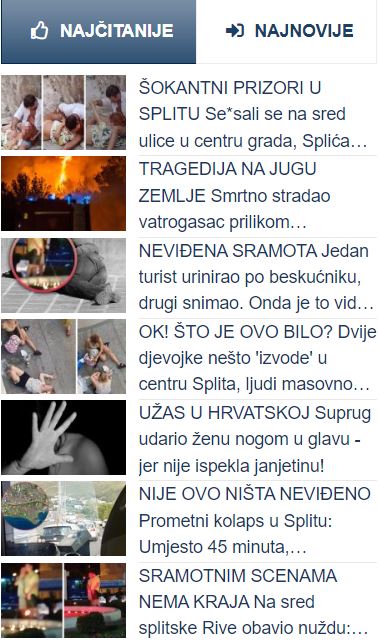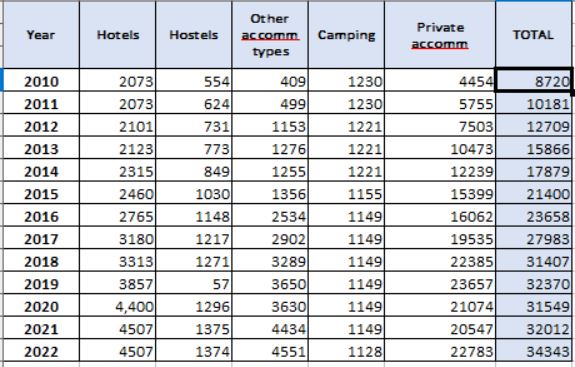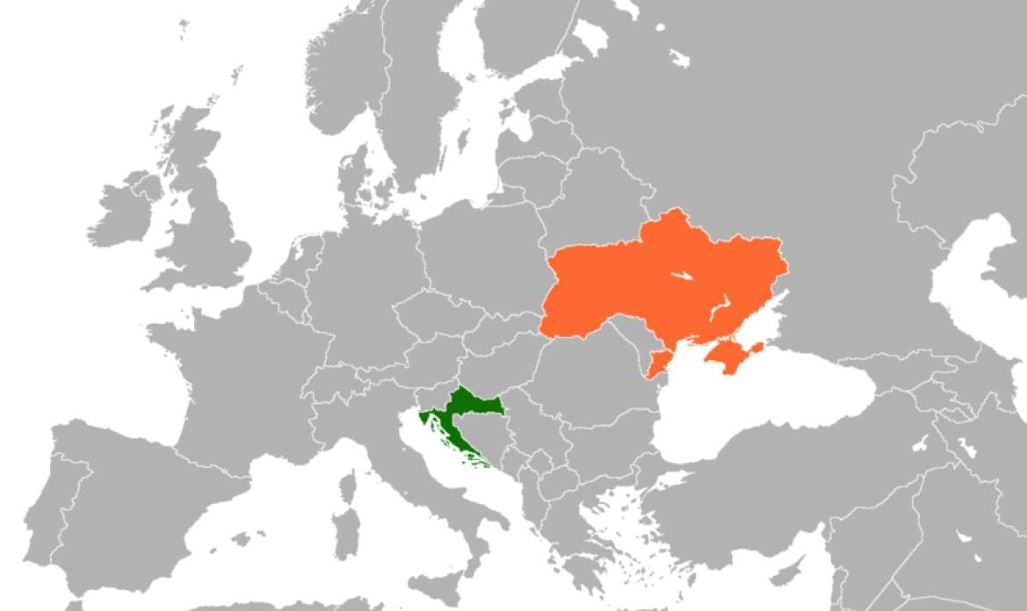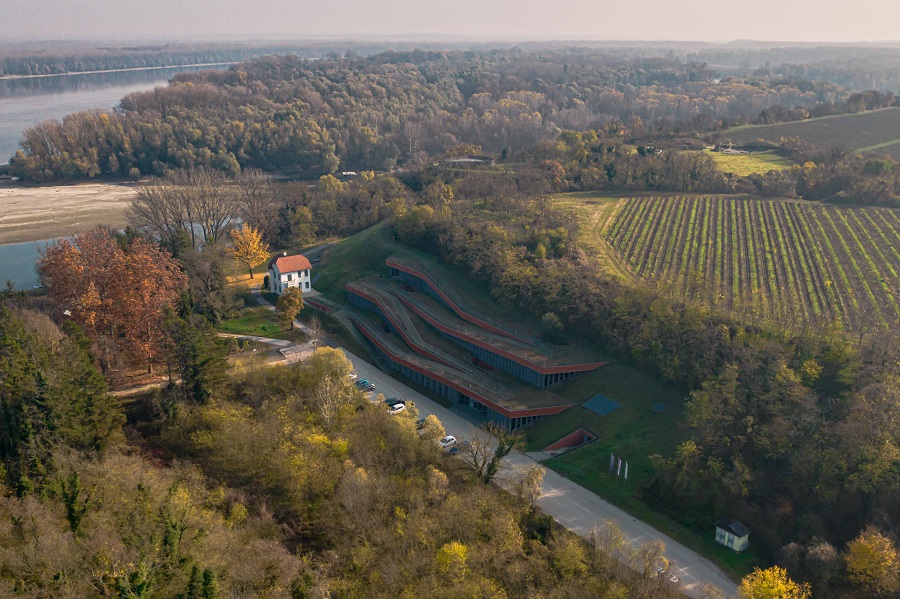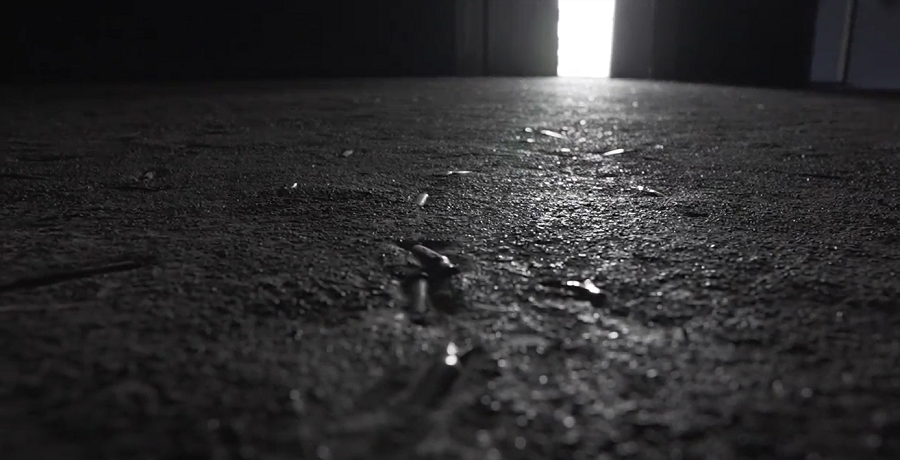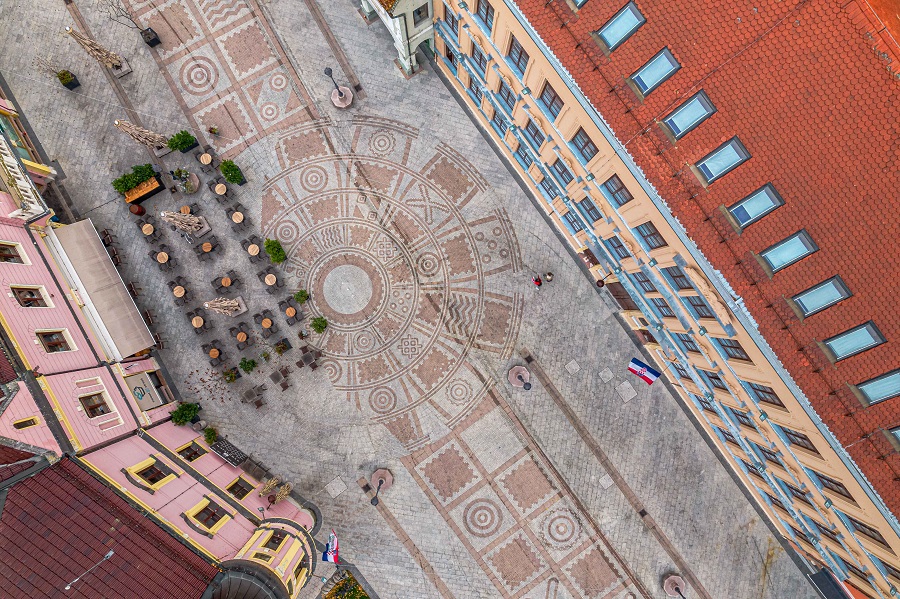Is Split Tourism 'Strategy' Killing the Goose with the Golden Eggs?
August 4, 2022 - It has all the ingredients to become one of the top destinations on the Adriatic, but is the lack of a Split tourism strategy killing the goose that lays the golden eggs?
And on the Seventh Day, God created Dalmatia.
It really is one of the finest places on the planet.
Some time later, a retiring Roman Emperor decided to embrace the fjaka lifestyle in his declining years and built a retirement home. Diocletian's Palace became a UNESCO World Heritage Site and is one of the finest attractions on the Adriatic Coast.
And slowly, over the centuries, a magnificent city started to emerge around Diocletian's final home, which was constructed over 1700 years ago.
Fast-forward to the 21st century, and Split had all the ingredients to be a world-class tourist destination. Just consider.
Diocletian's Palace and the magnificent riva as centre stage; the majesty of Marjan, the lungs of Split, for greenery and escape into nature (where else can you rock climb past ancient churches carved into the rock just outside the city centre); a vibrant arts and culture scene with museums galore, including world champion exhibits, such as the celebrated sculptor Ivan Mestrovic museum; island hopping heaven to Hvar, Brac, Solta, Vis; a diverse gastro scene including the gateway to Croatia's 130 indigenous wine varieties (the original Zinfandal comes from right next to Split Airport, a modern airport connecting to 100 destinations in the season); the de facto digital nomad capital of Croatia with a vibrant remote work community.
I could go on. Split is a destination which has EVERYTHING. Both God and Diocletian chose well.
So how, in 2022, did we come to this?
(Screenshot of most-read articles on Dalmacija Danas portal)
One tourist urinated on a homeless man, another filmed. Then a man from Split saw it.
How I stopped an idiot urinating on a homeless person while his friend was filming.
2022 was the year I stopped focusing on Croatian tourism. There is only so much you can say about the country's one-dimensional strategy of sun, sea, and numbers, numbers, numbers. Besides, there is nothing really new to write about Croatian tourism after 10 years, and the Croatia away from tourism is WAY more interesting, fun and positive - Enjoying a Croatian Summer with No Tourism or Coast: Bliss!
But the inbox will not let me be, and I have had a steady stream (increasing a LOT in the last week) from locals, expats and tourists, all writing about one topic, and one topic alone. Could I research and write an article?
The decline of quality in tourism in Split.
Numbers, numbers, numbers. While the Kingdom of Accidental Tourism talks about the importance of sustainable tourism, it all comes back to numbers, numbers, numbers.
I spend little time in Split these days, but it is a city I know quite well, having started the Total Split portal back in 2012 and co-written the first modern guidebook for city back in 2013 with Mila Hvilshoj - Split, An Insider's Guide. There has been an uncontrolled explosion of tourism in that decade, but the profile of tourism has also changed. As has the tourism offer.
I was quite shocked to see the rise in pub crawls around the Roman Emperor's final resting place. The once majestic and upmarket Marmontovaarea has been transformed into a drinking, urinating and vomiting hot spot, with one big club just off it, a huge one about to open on Marmontova itself, fast food and booze shops now dominating the shops where more exclusive shopping used to roam.
I have been sent videos of a couple openly having sex in a club, as well as THAT 6-minute video on the streets of the palace, of a couple pleasuring each other, she by performing oral sex, he manually to the girl naked from the waist down. In public and in broad daylight.
This is the first in a series of articles on the issue, and this one will be 95% in the words of those directly involved. This includes voices from my inbox, Split tourism expert, Mario Seric, Director of the Split Tourist Board, Alijana Vuksic, and the Mayor of Split, Ivica Puljak.
The aim of this article is to highlight the issues and to show the decision-makers that change is possible. The situation might look terrible, but actually some firm and decision action now can get Split back on track relatively easily.
Voices from the inbox and Facebook groups.
From what we see around, the groups of 20 yr olds that came to party and are disrespecting the town (loud, leaving trash everywhere, drunk, throwing beers on the floor, leaving glasses on windows during the night) are heavily replacing our pre-pandemic type of tourists over 30 with middle to high income that were coming to relax and enjoy Split. The lack of attitude from the City is what brought us here, we have rules but nobody to enforce them, I doubt inspectors fined even ONE tourist walking around almost naked in the old town or for drinking in public. We rarely see local police patroling at night...we are truly genuinely worried that we need to pack up and move somewhere else entirely or find a business model that caters to 20 yr olds, because I do not see this getting better with literally no action from the authorities, and although I read the deputy mayor saying we do not need more tourists, we need better quality ones, so far it is just an empty statement and if no signal is being sent NOW, the next season will be even worse. We had better sales in June than we do in July (makes sense, youngsters were still in school and did not yet fill our town to full capacity). We had worse sales days in July this year than in 2021 and about 50% less than in 2019.
The change in and around Marmontova is terrible. You have 305 club on Trogirska. Total nightmare already. Many articles written already about youngsters peeing and pooing and vomiting around. From 9 pm all we see around us are youngsters some already intoxicated. And the huge space that was the Bershka shop on Marmontova is being transformed into the biggest club in the old town. I am afraid the new Marmontova club will be the straw that broke the camel's back. Marmontova itself that was a classy charming street with higher-end or at least ok quality shops, is now full of fast food and booze shops.
Meanwhile more bars are catering/encouraging drunkenness, 1L "Cocktail Buckets" and ` Happy Hours`. Hostel owners bemoan the drunken idiotic behavior of their guests.
I have been living in Split since May 2021 and came for a visit in fall 2020. So all to say I don’t know what tourism looked like pre-pandemic. I truly love it here but July and August put that in question particularly this year. Though I love the city coming to life, I question the type of tourism that Split is going for as I see rather high numbers of tourists still drinking at 5 am from the night before on the streets. The lack of respect and clothing in the old city. And the amount of trash. Luckily Split has some of the most amazing cleaning crews and by 8…. But this morning, was a whole other level of disgust. Besides the 50+ people from the night before… I was approached and almost sought out (as I was trying hard to steer away from the tourists out) while out with my dog. This person then proceeded to pull out 200 Kuna and asked me for a sexual favor. I was horrified and livid. Feeling almost assaulted at 6 am. There is no good time to enjoy Split right now and it’s sad. I am happy I am here, but the tourists and the direction Split is going give me pause as I look to applying for a second digital nomad permit.
The downtown had a soul but it's dead or dying. Many things changed and mostly in a bad way. We're more like a big hotel than a town. I used to bring my kids for a walk, at least once a week. Now maybe once a month or even less.
As an expat, I don’t find it attractive in summer. We came to Split in winter and not for holidays but to make it home for a year (at least) but it’s incredible how it changes in summer. Suddenly everything is more expensive, restaurants don’t take cards anymore, only cash, noisy and busy as hell, can’t help but feeling like a walking wallet… If I could choose again I don’t think I’ll pick Split.
It's a complex problem. As a home-owner / expat / part-time resident I run away for summer while still wishing I could enjoy the city all year.
The profile of tourists changed as well. Split was always just a day or two transit hub for island hopping, serving all kinds of tourists. The ferry, train and bus station are all next to each other for that reason. Meanwhile, it became a festival spot and tourists are frequently T-shirtless, drunk, puking and pissing around youngsters (bcs they don't understand the Palace is a 1900 y/o monument to respect).
Oh, and another thing we hate this year...because of the dispute on who should charge for the yachts parking on west riva, all spring and summer nobody has been charged for parking there and nobody could use water or electricity. That meant no big yachts came, west riva became the wild wild west with all the local charter boats parking as they pleased....and west riva used to be a beautiful place for superyacht watching
The most interesting (and concerning) part of Split&tourism is how the city center lost its famous and vibrant lifestyle and became a ghost town out of the season (locals also avoid approaching the palace area in the season). It would be a great case study of what tourism should not bring.
And my favourite - ah, Hrvatska...
The reason why “communal officers” can’t charge fines for pissing and other things is that foreigners don’t have a Croatian OIB (personal ID number). Their system can’t recognize the payment. So that’s why they call the police. Then the whole procedure until they take them in front of the judge, if there’s a reason to do that, and only there can they pay the fine.
I asked a friend to list some specific incidents.
Guy wanting to pee on a homeless man.
Guy peeing in the fountain.
Girl pooing in the street vase.
Girl peeing on the street.
Girl giving blowjob on the street.
Couple having sex at Matejuska.
Guy peeing on the street (these must be a normal occurrence, a couple of metres from us where there is a dark spot that smells like a urinal...also last night, I had a Canadian couple tell me they were appalled to see a guy peeing on a monument). I personally saw a very drunk young man touching women's breasts on Marmontova...him and all his friends laughing.
How did we get here from where we were, a stunning cultural destination, with a UNESCO World Heritage Site and Roman Emperor's retirement home at its core?
Rather than give my own thoughts, I turned to a tourism expert who knows the city intimately. Mario Seric is an international tourism expert with a Split address, who has undertaken 169 projects in 16 countries. His knowledge and expertise on Split and destination management were key factors in the launch of the TCN Split Winter Tourism Roundtable initiative earlier this year.
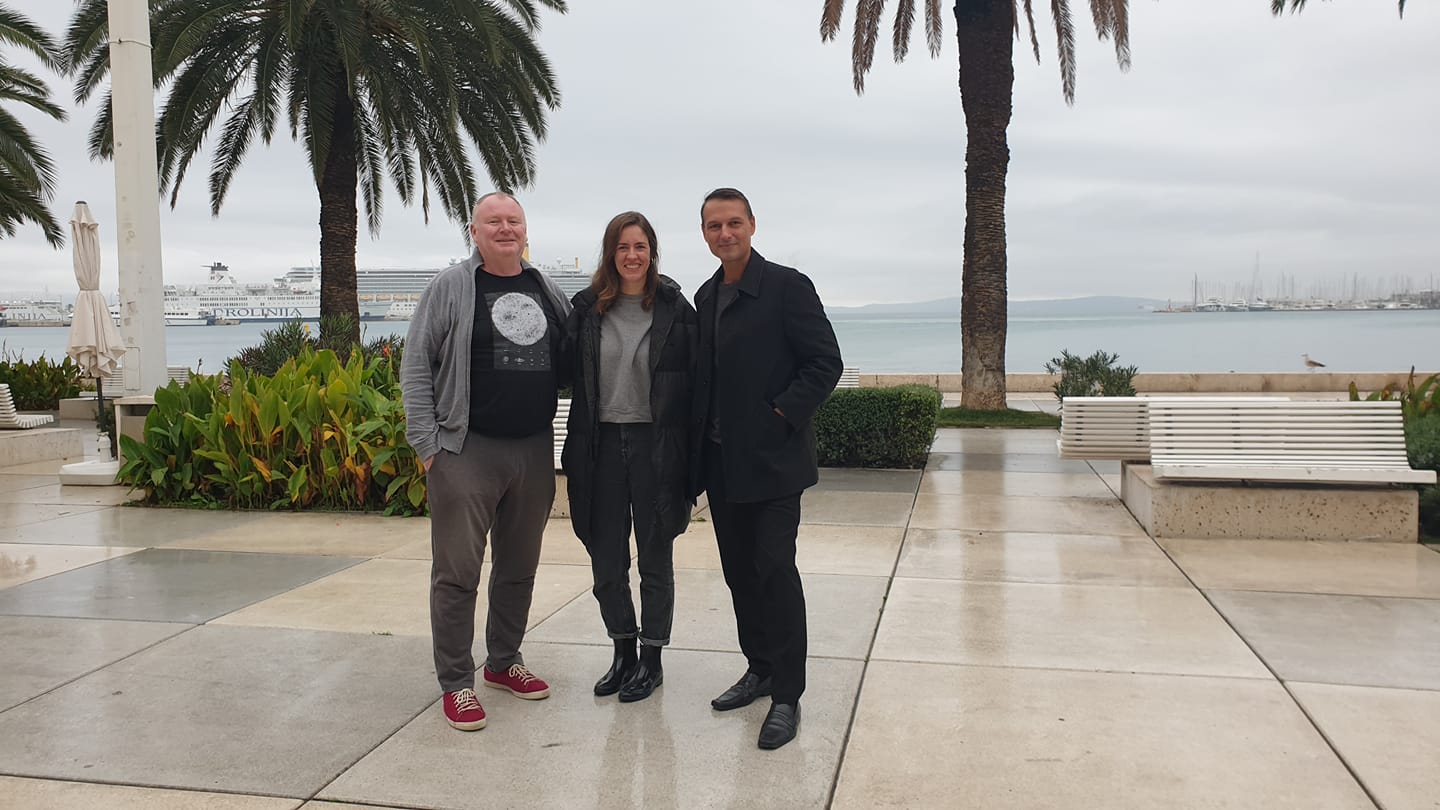
(With Mario Seric earlier this year for the initial planning of the Split Winter Tourism Roundtable)
The situation we have now is the consequence of five factors: no professional destination marķeting, almost no destinaton management, an abundance of relatively affordable apartments and rooms to rent, an abundance of liquor stores (working longer than the bars), imbecile behavior of generation Z as compared to other generations when they were their age.
Split is one of the cities that do not have any professionally done strategic document for tourism, be it a strategic development plan, strategic investment plan, strategic management plan or strategic marketing plan, nor any operational plans that should follow previously defined strategies.
Some documents are done but with limited scope, poor quality, and by persons without the required know-how to do them. The current tourism situation of Split is the result of a lack of the above-mentioned documents and responsibilities to perform the tasks stemming from them.
In conclusion, nobody has ever done anything serious, nor were there people responsible for any kind of execution.
The areas of development and investments (preparation of investments) should primarily be the responsibility of the city government while the areas of management and marketing the responsibility of the tourist board... with strong cooperation between the two and some more parties involved.
No mayor has done anything related to the development and investments, and even if he wanted to, he was soon out of office (constantly changing mayors). The tourist board has been doing more or less standard activities inherited from the 1990s with some modifications, yet tourism has been exploding, but not due to their efforts.
So how is that? It is quite simple. The 2000s were marked by the following factors on the European market: low-cost airlines, interest in visiting city seaside destinations, and interest in discovering Croatia by visiting several destinations relatively quickly. So, in addition to Dubrovnik and Hvar, Split was the one that was filling this hole: it is on the sea, it had some heritage, and it had its airport. So it was a logical choice, and that this how this "golden triangle" was formed (Dubrovnik - Hvar - Split).
More or less the same airlines were flying to both Dubrovnik and Split, thus allowing customers to organize their trips easily; three destinations were a great choice for 5 / 7 / 10 days, usually including Mostar / Krka / Plitvice... And it all started exploding, first with European markets and then with overseas markets. This was Croatia's playcard for the world... Zagreb later benefitted from this as well.. all the same as already experienced in other Mediterranean countries.
And then local entrepreneurs started understanding what was going on and started investing in boutique hotels, hostels, restaurants... this trend then spread to rooms, apartments, clubs... big events started, and the market principles of supply and demand were in overdrive.
And all these with only two big hotels in place (Le Meridien and Radisson)
So there was a tourism explosion without strategic documents and without a critical mass of big hotels. It is actually an interesting phenomenon, but the lack of strategies and hotels have led us to where we are now. More than 80% of beds are in relatively affordable rooms and apartments, while less than 20% in relatively expensive hotels and similar establishments. And that is why we have two very different markets creating a bipolar destination... those who want to have cheap accommodation and eat cheap (fast foods, buying in markets over restaurants) and those who stay in hotels and eat in relatively expensive restaurants.
And the first market segment is dominating the market, especially in July and August when, of course, young people can travel.
And naturally they choose Split... regardless of the music prohibition after 11pm (since 2019) and regardless of the early closing of the bars (since recently), which is actually amazing... Not to mention that these prohibitions do not make any sense... as evidenced by the fact that now we have even more young people creating chaos despite the prohibitions. If they by any chance prohibit alcohol consumption in bars (which will never happen of course) I think we will have even more young tourists as they always find ways to get drunk. Anyway, the youth are not the problem... they are the way they are, but the question is why Split has allowed itself to come to this situation, especially with the cultural heritage that it has.
Ultra Europe is a great event, and it is not the one responsible for this. Ultra contributes a really tiny percentage of guest nights, and it has loyal followers, but is just one of numerous big party organizers.
You have the same parties elsewhere in Europe as well, but they do not necessarily position a certain destination in one direction.
And a few more things I would like to add which I think are important.
Similar things are also happening in other cities in the Mediterranean, even though not to this extent, but with the same market (young people, which is generation Z, i.e. those born after 1996, drinking heavily, behaving without any manners, so some things are actually even generation specific).
Second, here in Croatia, you can easily categorize apartments in residential buildings for tourism purposes, which, for example, in Spain is legally not possible!!! So for example, in Croatia, if we want, we can legally convert the whole of Split into a holiday resort, which, in my opinion is insane.
Give me 5 quick wins for Split tourism.
Quick win 1. Get involved in the 2023 Split Tourist Board budget to clean it up as much as possible.
Quick win 2. Get the financing for airlines for Spring 2023 and November 2023 (at least one airline for 2 or 3 destinations with minimum 3 to 5 flights weekly for each).
Quick win 3. Get the financing for global events for Spring and November (at least one for now).
Quick win 4. Embrace the advice of expats and digital nomads on what should be done.
Quick win 5. Announce the preparation of big investments (for new tourism offerings) and strict yet just regulations (for managing the destination, from stimulating the entrepreneurs, setting up the max number of tourist beds in the city, etc.).
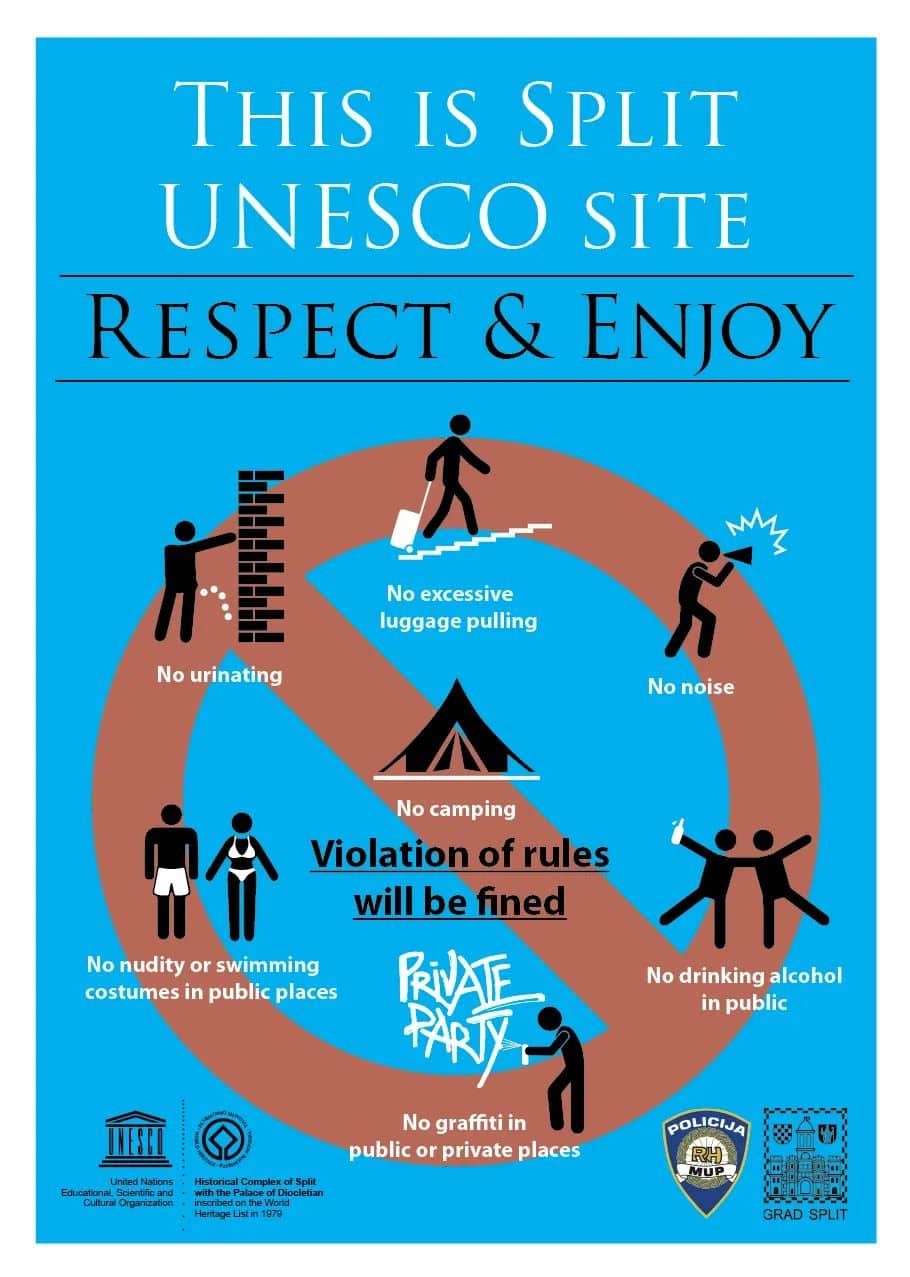
I emailed the Split Tourist Board with some questions on the subject.
Dear TZ Split team,
TCN has received dozens of complaints, mostly from residents of Split, about the decline in quality of tourism in the city, particularly in peak season.
We are currently researching for an article which we plan to publish on Wednesday called
Is Split Tourism 'Strategy' Killing the Goose that Lays the Golden Eggs?
Rather than publish it without your knowledge, I would prefer to get your input. I have the following requests/questions - if you could please send by Tuesday evening, so that I can include?
1. Could you please send the breakdown of beds by year from 2010 - 2022 for private accomm, hotels and hostels, similar to the one attached that you kindly sent me a few years ago?
2. Could you please define what is the strategy of Split tourism in a sentence/paragraph?
3. How would you describe the season so far? Are you happy with the results?
4. Residents are telling us that there has been an explosion of party tourism, with lots more drunkenness, pub crawls through the palace. Is this something that you have noticed?
5. Several residents and expats have told us that they have to leave the city this peak season (unlike previous ones) as it has become unbearable. What message do you have for them?
6. Locals also tell us that they rarely go to the palace these days, as it has become a tourism zoo in the season, and a ghost town out of season, with little local life. Have you noticed anything similar, and what strategies do you have to reinvigorate local life?
7. Marmonotova used to be a prestigious address in the city, and now it is slowly being turned into a bar and club area, with the accompanying debauched behaviour. Do you support this new direction?
8. Recently, new signs have appeared around the centre, see attached - urging people, among other things, not to urinate in the street. Why is this necessary? Surely the type of tourists you are targeting know how to behave and not to urinate in the street?
9. The same signs talk about proper dress and no drinking alcohol in public, or there will be fines. There are many cases of inappropriate dress and people drinking in public. How much are the fines, and how many people have been fined so far?
I will publish your answers in full and would be happy to include a statement from the Split Tourist Board director.
I look forward to your response.
Kind regards,
Paul Bradbury
The Split Tourist Board was kind enough to respond within the deadline. The response in full:
Dear Paul,
thank you for your queries. Attached you can find the requested data, and below in this message are answers to your questions, by Tourist Board director Alijana Vukšić.
Regarding your claim that the number of beds dropped from 2010 to 2022, the data that we sent you before shows the annual rise in the number of beds before 2020. In 2020, due to insecurity caused by the pandemic some rentals were cancelled.
(How accommodation units have increased in Split from 2010 to 2022 - the rise of hotel beds, already under representative for a balanced destination, has not kept pace with the explosion in private accommodation. Read more in How Croatia's Tourism 'Strategy' Created Tax-Free Paradise for Private Renters).
All accommodations and permits have to be approved by the County Tourism office. We can say that number of beds declined during the COVID-19 pandemic, but this year brought a large number of newly registered accommodations.
As you know, most of the questions you asked are the responsibility of the City of Split, and its departments, and not of the Tourist Board. We in the Tourist Board neither have legal possibilities, nor authority to make a difference with the issues you mentioned. However, as an important part of the tourism market, we will use all our knowledge to meet those problems and to assist in regulating the local situation for the benefit of the citizens of Split, and to the satisfaction of our guests.
Tourism brings negative impacts, and many famed destinations in Europe and the world have that experience. We are all aware of it, especially with the fact that with returning to pre-pandemic numbers we have to deal with increased problems of public order violations.
There is a global trend of mass travel among young adults (18 to 24 years of age). However, they are just one of the segments of the tourism market, mostly members of Generation Z who grow up in times of big global changes. They have their patterns of behaviour which don't include the violation of public order. On the other hand, there are always individuals who can create a false image of young tourists. This age group is only one of the guest populations in Split, but they are important visitors who are extremely satisfied with Split, and who will probably return to Split with their families.
During this week, the City of Split will have several meetings with all relevant players about the issue of public order violations in Split. Every single service or organization will have to undertake their share of activities to find a solution for the problem. We hope that the City will bring its Public order rules as soon as possible, to make sanctions against offenders possible.
Regarding this year's season, the satisfaction of our visitors and Split citizens is way more important than the number of arrivals and bed nights. That includes both those who are pleased with the season, as well as those who express dissatisfaction.
Nevertheless, here are some numbers. Split recorded 1.4 million bed nights this year. That is 93 per cent of bed nights in 2019 as the record year.
Since you write an investigative piece, it would be good if you include the City's institutions. We all live off tourism, and everyone intends to make it sustainable and responsible and blended into a local community.
All institutions in charge are aware of those problems, and we all work together to decrease the negative side effects of tourism, and emphasize those positive ones. It's our goal to direct all activities in one direction, to create Split as a desirable host to its citizens and visitors, 365 days a year.
Our many activities are directed toward sustainable tourism. This is why we emphasise support and development of events and tourism products dislocated from the historical centre. Further, we continue to encourage and launch events taking place in different seasons. For example, this autumn we will promote Split gastronomy with several activities.
All our marketing activities are also directed toward sustainability. A good example is our Respect & Enjoy campaign, but we also prepare a campaign that will promote a closer connection between tourists and Split as their destination. That includes learning about the traditional habits of the local population, and the rise of awareness that they visited a city with exquisite cultural, historical and natural beauty.
We think that only the cooperation of all local shareholders, led by the City and its departments will bring "better tourism", responsible for the local population, and the rich natural and cultural heritage of Split.
In the end, you commented that "Surely the type of tourists you are targeting know how to behave and not urinate in the street?“. We take that remark as benevolent since we believe that you should realize that nobody has "urinating tourists" as a target.
Best regards,
TZ Split team
Not all my questions were answered.
Dear TZ Team,
Many thanks for your response, appreciated, I know how busy you are in the season. Your answers, while comprehensive, do not answer some of my questions. Perhaps I was not clear enough. Some comments on the unanswered questions to maybe help below:
1. Could you please send the breakdown of beds by year from 2010 - 2022 for private accomm, hotels and hostels, similar to the one attached that you kindly sent me a few years ago? ALL I AM LOOKING FOR IS THE SAME SPREADSHEET OF DATA YOU SENT LAST TIME, BUT UPDATED TO 2022 (OR 2021 IF YOU DONT HAVE THIS YEAR). I WILL DO MY OWN ANALYSIS.
2. Could you please define what is the strategy of Split tourism in a sentence/paragraph? A SIMPLE STANDALONE SENTENCE OR PARAGRAPH PLEASE
7. Marmonotova used to be a prestigious address in the city, and now it is slowly being turned into a bar and club area, with the accompanying debauched behaviour. Do you support this new direction? IS IT PART OF YOUR STRATEGY TO HAVE NIGHTCLUBS IN AND AROUND MARMONTOVA? DO YOU SUPPORT THIS CHANGE?
9. The same signs talk about proper dress and no drinking alcohol in public, or there will be fines. There are many cases of inappropriate dress and people drinking in public. How much are the fines, and how many people have been fined so far?
VERY SIMPLE QUESTIONS
1. HOW MUCH ARE THE FINES?
2. HOW MANY PEOPLE HAVE BEEN FINED SO FAR?
3. IS THE LEGISLATION ACTUALLY IN PLACE TO IMPOSE FINES?
Thanks for your anticipated quick response. If you were able at least to send the spreadsheet in Question 1 this evening, it would allow me time to analyse. And if you could get the answers to the rest by midday tomorrow, that would be very helpful.
Cheers Paul
And a very typical response, which says nothing, apart from sending the data. Would it have been too much to expect a tourism board to be able to say what its tourism strategy was in a sentence?
Dear Paul,
Thank you for your queries.
1. Attached you can find the requested data.
2. The values of the further development of tourism in the city of Split are defined by the Strategic Marketing Plan - which includes year-round tourism, a significant multiplier effect and responsibility towards heritage – as well as total resources and the local population.
Other issues are the responsibility of the administration of the City of Split, so please contact them directly.
Best regards,
I reached out to the Mayor of Split, Ivica Puljak.
Reelected a few weeks ago with a much stronger showing in the town council after calling a snap election earlier this year, Mayor Ivica Puljak, an eminent scientist, is new to the political scene, and tourism is not his strongest area of expertise. Having said that, he has shown his willingness to engage in the issues, and to take action. I have personal experience of this, due to his enthusiastic support and engagement in the ongoing TCN Split Winter Tourism initiative, which is moving forward steadily.
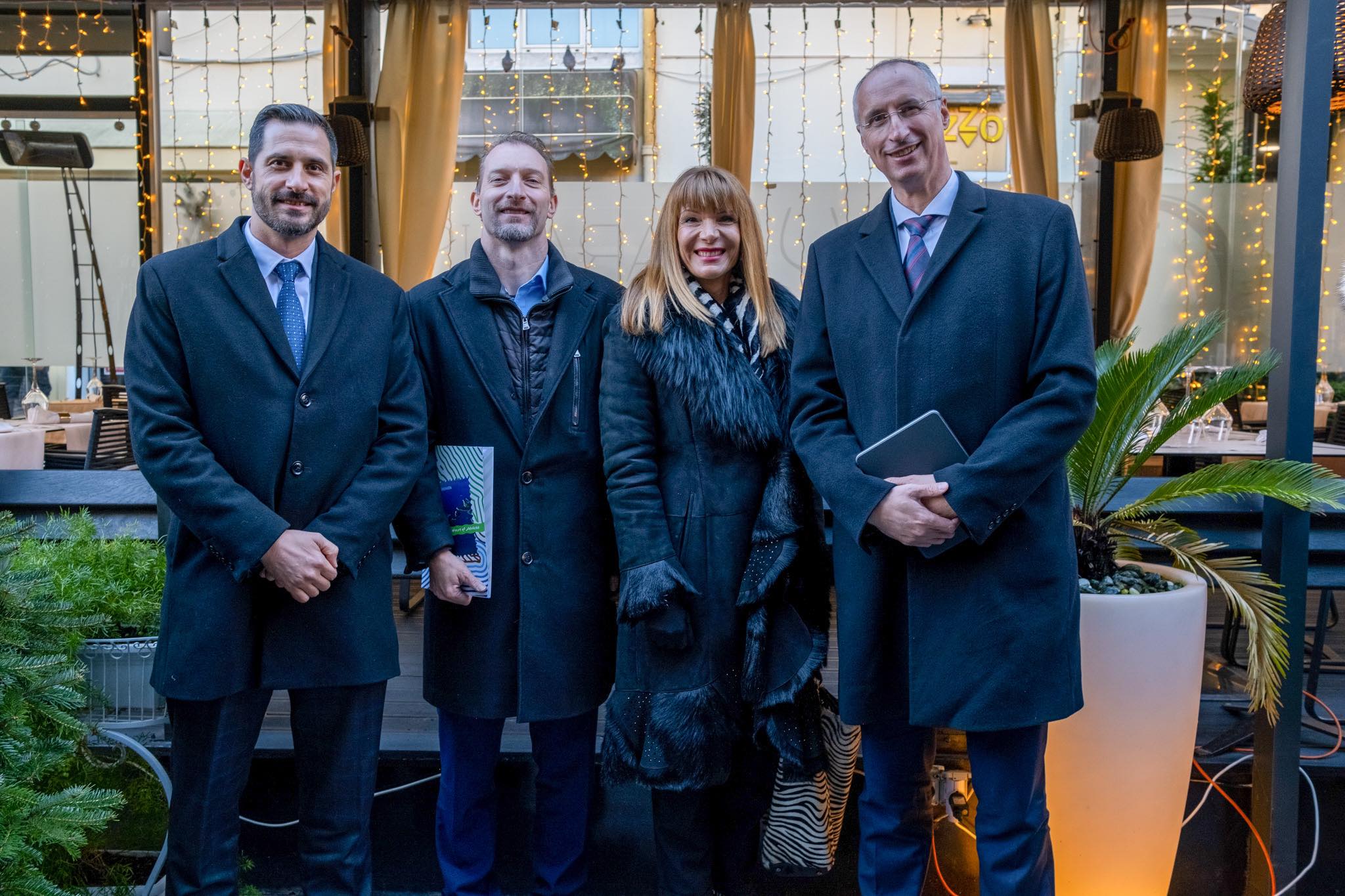
(TCN Split Winter Tourism Roundtable: State Secretary for Tourism, Tonci Glavina, Former Central Dalmatia Tourist Board Director Josko Stella, Split Tourist Board Director Alijana Vuksic, and Mayor of Split Ivica Puljak)
In the last ten years, Split has experienced a large increase in the number of tourists. From a transit city, it became a tourist destination. Today, a large number of citizens of Split live from tourism, which has become an important part of our economy and everyday life. Such a sudden increase in tourism brought with it many challenges, from overstretched infrastructure to problems with maintaining public order and peace. I think that Split is now entering a new phase, in which tourism should be seen as an opportunity for further development, connect it with the modern economy and use its full potential. Therefore, it is necessary to make a comprehensive tourism development strategy and harmonize it with the city development strategy. It is a very important process, which will define the future of the city in the long term.
This year, a special challenge is the fact that the structure of the guests is dominated by young people who want to have fun. Part of the tourist offer, which developed somewhat spontaneously, includes the widely and easily available consumption of alcohol, which produces frequent violations of public order and peace. Due to inherited rules and procedures, which do not foresee punishments for many forms of indecent behavior, the introduction of public order and peace is difficult. Therefore, we have prepared short-term and long-term measures to improve the situation in tourism.
Short-term measures include increased controls of the most frequented locations, along with synchronized actions of city, county and state authorities, police and inspectorates, as well as increased cleaning and beautification of the city.
Long-term measures are based on creating a tourism development strategy, changing the structure of guests, making a new decision on communal order, which will incorporate all the observed shortcomings and take over the best practices of cities that have encountered similar problems, then increasing the number and scope of operations of the order services, the inspectorate and the police, limiting and demotivating the sale and consumption of alcohol, up to incentive measures for the development of cultural, scientific, health, sports and congress tourism.
In the end, our view of tourism and its role in the development of the city is positive. Tourism can be an engine for the development of a modern economy, and as an instrument for the modernization of society and integration into world social and economic trends. On the other hand, in the development of the city, we will always put the interests of the citizens of Split first. When a city is good for its citizens, it will also be good for its guests.
Encouraging words. Let's hope they will soon be backed up with actions.
Rather than add my own thoughts to all this (which had been the original intention), I will stop here, as you don't need me to interpret the direct words of some of the major stakeholders.
But TCN will be exploring this topic in more detail, and we are reaching out to other key stakeholders for their points of view. I am very grateful to the founder of Ultra Europe, Joe Basic, for agreeing to an interview on this topic and the Ultra factor, as well as Zoran Pejovic, a renowned, Split-based luxury tourism consultant, whose many achievements include introducing the first wine bar, Paradox Wine and Cheese Bar, to Split a decade ago (when Split was a different city), as well as delivering the excellent 5-star Maslina Resort on Hvar.
If you have some expertise to contribute to the debate, please contact me on This email address is being protected from spambots. You need JavaScript enabled to view it. Subject Split Tourism.
Discussions like these are always painful, but often necessary. I am confident that with the right approach, we can fix a lot of these problems relatively quickly and get Split back to being the world-class destination that it fundamentally is.
ULTRA Europe Festival founder Joe Basic was kind enough to give me an interview on the subject, and he had some GREAT analysis and suggestions. ULTRA Europe Festival's Joe Basic Talks Split Tourism .
****
What is it like to live in Croatia? An expat for 20 years, you can follow my series, 20 Ways Croatia Changed Me in 20 Years, starting at the beginning - Business and Dalmatia.
Follow Paul Bradbury on LinkedIn.
20 Ways Croatia Changed Me in 20 Years: the Insider Guide to Surviving Croatia will be out by Christmas. If you would like to reserve a copy, email This email address is being protected from spambots. You need JavaScript enabled to view it. Subject 20 Years Book
Enjoying a Croatian Summer with No Tourism or Coast: Bliss!
A Croatian summer has always been inextricably linked to tourism, as the hordes head to the Adriatic coast and islands. But what if the coast and tourism were not part of the equation? A very satisfying experiment so far.
My inbox is full of invitations to hotel openings, restaurant openings, festivals.
I have declined them all.
My social media is full of heavenly images of beaches, coffees on the water, swimming in the Adriatic, with accompanying captions such as Ko ovo more platit, which roughly translates as 'priceless.'
I smile at them all, and I wish them well. I have posted thousands of similar posts over the years, many with the hashtag Why aren't you here?
And I am not here - or rather there - this year, completely of my own free will. Lots of great nights and parties that will go unattended. Indeed, were it not for the opening of the Peljesac Bridge this week, I might not see the coast at all this summer.
For I am rather enjoying a different Croatia at the moment - a Croatia that has nothing to do with the coast or tourism in general. The world of the Croatian entrepreneur and startup.
It is a world that is fascinating, and having made the decision to ignore most of this tourist season, apart from client needs and special interest topics, I am seeing Croatia in an entirely new light. Yes, once again, as I approach my 20-year anniversary in Croatia next month.
Having written about Croatian tourism for over a decade, I realised that my passion for the subject is waning, and there are plenty of other fabulous things to explore in this beautiful country that have little or nothing to do with tourism.
Let's face it, when you have a 'strategy' that relies on the sun and the sea each year, with very little innovation, there comes a time when there is very little to report on. One can almost predict the stories, as the cycle is the same year after year (assuming no pandemic) - record numbers, celebrity arrivals, employment crisis due to no staff, restaurant rip-off stories, motorway queues, heatwaves, storms, accommodation horror stories, more record numbers, hotel openings, cruise ships, overtourism, party tourism, inspections harassing peak season business, more record numbers. And suddenly, all is over, the end of another season in this jolly land. Not a word (or very little) about the environmental damage this approach to tourism is causing to the coast, and how unsustainable it all is in the long run.
What if - just for once - I ignored it all and focused my time and energy on a Croatia which had nothing to do with tourism whatsoever. After 13 years full-time on Hvar, as well as 7 years of reporting on tourism for TCN, it might feel strange not being on the coast with everyone else on the planet, but I have had more than my fair share of priceless coastal moments over the years. How would it feel to miss one entire summer?
In truth, it feels FANTASTIC.
Zagreb is truly a joy in the summer, particularly if you are busy with projects, as I am. The city is emptying (indeed many bars and restaurants will shut for the first half of August, as everyone heads to the coast. The ratio between tourist and local seems to go 1 to 1, and there is so much space.
Those locals who remain are usually there for a reason, as they may be working on projects too. It almost feels like we are keeping a guilty secret. Everyone is on the coast, but the real fun is happening here.
I am in the process of moving TCN's strategic direction away from tourism into a much more interesting space - business and entrepreneurship. And there really is not enough time to keep up with the amazing stuff taking place all over this city.
In the last few days, for example, a sample of the meetings I have had (all of which will be featured on TCN in due course)
- the reopening of Croatia's oldest coworking space in a fantastic new location, as Impact Hub Reopens in Famous Central Zagreb Film Location. A wonderful networking opportunity.
- great brainstorming over beer with a consultant who is offering kayak consultancies in an obscure river, starting from central Zagreb. How cool is that?
- a couple who responded to their teenage daughter's desire to have a $700 pair of sneakers by working with the daughter to develop a fabulous financial literacy app for teenagers. The daughter got so good at financial planning that she is now the proud owner of those sneakers.
- and speaking of sneakers, a meeting and update with a very exciting Croatian startup, who officially have the most sustainable sneakers in the world, and who are on the verge of a major announcement.
- lunch with a leading light in the NFT space (already featured by Forbes), taking me on a journey to a place I was a little scared to enter - the Metaverse.
- lunch with the Indian ambassador, followed by a visit to the Chinese ambassador's residence for an interview about the opening of the Peljesac Bridge.
And when work is done, an evening stroll through Zagreb's parks before a little liquid refreshment to reflect on another perfect summer's day.
I see lots of complaints about the hot weather, which has not been a problem for me so far (but suspect it will be with the Peljesac Bridge opening). There is a nice gentle breeze through the window, with the melodic sounds of the piano from the nearby music school providing the perfect backdrop.
Working with these entrepreneurs has been very stimulating, with not an uhljeb in sight. Croatia's tourism revenues are in the region of 9 billion euro from memory. I wonder how long it will be before this new breed of entrepreneur (if they are allowed to breathe) will be generating that, and more.
Croatia is a fantastic tourism country, of that there is no doubt, and I heartily encourage you to explore the magic of the coast (and continental Croatia).
But Croatia is also a fantastic country if you take the tourism factor out of if. Arguably even more so.
You heard it here first...
What is it like to live in Croatia? An expat for 20 years, you can follow my series, 20 Ways Croatia Changed Me in 20 Years, starting at the beginning - Business and Dalmatia.
Travel and Emotions: TCN Photographer Slobodan Kadić Wins FIJET Slovakia Award
July 7, 2022 - The second prize at the FIJET Slovakia international exhibition called 'Travel and Emotions' went to Slobodan Kadić, photojournalist of Total Croatia News and Glas Slavonia, for the photo "The wall is our witness," taken at the beginning of the year in Jerusalem (Israel).
The Slovakian Travel Journalists and Writers Association organized the international exhibition 'Travels and Emotions', which this year received 213 works from 13 countries (Austria, Belgium, Bulgaria, Burkina Faso, Canada, Czech Republic, Croatia, Cyprus, Hungary, Romania, Slovakia, Great Britain, and Ukraine).
This year's theme was "Life is not black and white," and the exhibition host was the Slovak town of Piešťany. The international jury, led by the exhibition curator, photographer, journalist, and writer Marián Pauer, evaluated the photographs in two categories: a set of photographs and a separate photograph, selecting 54 photographs for the exhibition. Voljen Grbac from Croatia represented FIJET in the international jury and participated in the exhibition in Piešťany. The winner of the first prize is Juka Jurica Galić (Croatia) for the series of photos 'Fisherman'.
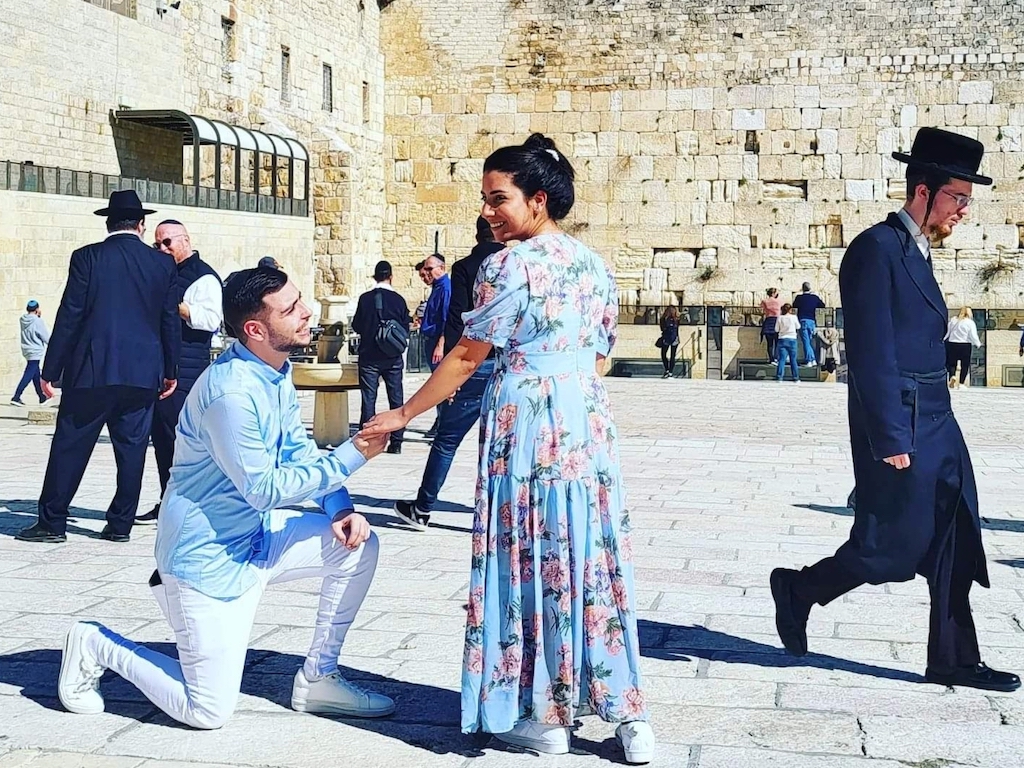
Slobodan Kadic
"As a representative of the Croatian FIJET, I am particularly proud of the success of my colleagues Jurica Galić-Juka and the versatile Slobodan Kadić, whose works deservedly won awards at this prestigious competition by unanimous decision of the jury. I hope that this will motivate them to dedicate themselves even more wholeheartedly to the great and beautiful art of photography, and I wish the exhibition a long life and as many visitors as possible on its way to Europe," says Voljen Grbac, emphasizing that this year's exhibition is the best in terms of quality.
The first prize for an individual photo went to Ivan Kenez from Slovakia (Tatra impressions). In previous years, FIJET Slovakia exhibited photos abroad, in Budapest and Kuwait. This year's exhibitions are planned to be held in October in Vienna and Slovak Poprad (High Tatras). Tina Eterović Čubrilo, the president of the Croatian FIJET, congratulated the Croatian photographers, who praised the exceptional work of her members.
"We are especially proud of the awards of Slobodan Kadić and Jurica Galić Juka. And this photo award proves the activity of our members who follow all the actions of the FIJET world association and their professionalism, which is recognized at the world level. In addition, our journalists and photographers have a special feeling for the attractiveness and beauty of details," concluded Čubrilo.
To read more about sports in Croatia, follow TCN’s dedicated page.
Croatia Full of Lifestyle & Safety, Croatia's Tourism Jewels
Several years ago, a friend of mine on Hvar who runs a luxury tourism agency on Hvar told me about the moment he discovered the secret of Croatian tourism.
"I was in an olive grove with a group of rich New York clients," he explained. "Olive tasting, peka lunch, the standard. One of the guests came over to me and motioned to a lemon tree and its abundant fruit nearby. He asked if it would be ok to pick one. Pick ten, I replied, and off he went. At the end of the week, he came up to me to thank me for an incredible week, but he just wanted me to know what the highlight had been for him."
"Picking those lemons," he said. "I grew up in New York and have only seen lemons in a store or on a dinner plate. To pick one as nature intended was just wow."
The secret of quality tourism, my friend concluded, was understanding the things we take for granted but that have a high value for others, and then putting the two together.
A lot of lemons have been picked for tidy sums over the last 10 years on Hvar. A fair exchange for the authentic experience.
Growing up on Hvar, there is no reason to think that picking a lemon from a tree could be an exceptional experience for someone else. It is human nature for people to take their surroundings for granted and to assume that others are aware of them too. But I have always found that listening to visitors and tourists helps to show where the gaps in knowledge and understanding are. And if we are aware of those gaps and can address them, then there is benefit all round.
It is natural for people in Croatia to assume that tourists coming to visit know where Croatia is on the map, but many really have no clue. After the World Cup heroics of 2018 in Russia, 'Where is Croatia' was one of the most-searched terms out there. People knew that it was over 'in eastern Europe' somewhere, but many could not pin it on the map.
Croatia's geography has been looming large in Google Search again recently, with one of the most-searched terms finding TCN in recent weeks - Is Croatia near Ukraine?
The reality is that what was the former socialist bloc in Central and Eastern Europe still confuses many in the West, and a bit more clarity on Croatia's geographical position would be useful, plugging one of those gaps in knowledge by potential tourists and assumed knowledge by locals.
I decided to write an article on the subject earlier this month - Is Croatia Near Ukraine? Some Answers to Tourist Google Searches. It was one of the most popular of the year so far. So how to plug that information gap? A simple message, reinforced often, to pinpoint Croatia's Central European location, could be done with a combination of these two facts:
Croatia, just 25 km from Italy, and with a capital city which lies west of Vienna.
The assumption that Croatia is somewhere vague in eastern Europe is gone, as is the tantalising prospect of adding it to western European itineraries.
This article was prompted by a phone call from Croatian television last week, inviting me to appear on the national evening news to comment on a new campaign from the Croatian National Tourist Board, in particular its new slogan, Croatia - Your life, Your time, Your experience. The accompanying byline on the official YouTube channel is Our Life is defined by the memories we create, and our life goal should be to indulge ourselves and the people around us.
I politely declined the invitation, given that I currently have two ongoing lawsuits from the Croatian National Tourist Board (new episode coming soon, but you can catch up on the first two years in Diary of a Croatian Lawsuit), including one for satirical comment on their slogan.
A little like the current Croatia, Full of Life, I am not sure how this new slogan applies to Croatia or showcases its USP or strengths and attributes. You could replace the word Croatia for pretty much any country on the planet and they would come up with a version of the same thing.
I thought back to the episode of the lemon tree. What were the things that we take for granted here that surprise and impress our visitors?
I have spoken to a LOT of tourists, digital nomads, and expats over the years here. They all have their reasons for visiting - and staying in some cases - but there are a number of factors which are key to them, several of which are a surprise, as they were not aware of them before they visited. And a little like the lemon tree example, if we can listen and plug those information gaps, the brand of Croatia and what it really offers will be all the stronger. And the good news is that, unlike Full of Life and Your Life, Your Time, Your Experiences, they cannot be applied everywhere. They include:
Safety. Croatia is one of the safest countries in the world. I am not talking about COVID-safe (or any associated campaigns claiming that with one of the lowest vaccination rates in the EU), but safety from a security perspective. I have met so many expats and diaspora who are here because it is a safe place to bring up families. My own personal experience raising two little ones on Hvar was magical. Many are stunned at the safety at night in the big cities, where young women walk home alone and unhindered. In an increasingly uncertain world, the safety of Croatia compared to other countries, is a great marketing tool, especially when coupled with everything else on offer.
Lifestyle. Croatia really does have about the best lifestyle in Europe, and there is a lot more to it than 2-hour coffees on the riva. As more people are going down the remote work route, lifestyle is one of the key factors in choosing a destination. Imagine how popular a beautiful destination which had the best lifestyle and was one of the safest places in Europe might be. I am not a fan of the Croatia, Full of Life slogan, but one of its advantages is its flexible usage - Croatia, Full of Culture, Croatia, Full of Wine etc. And yet - according to Google - Croatia, Full of Lifestyle has never been used. Until this article. It could and should be a cornerstone of Croatia's message to the world.
Croats speak excellent English. This was a real surprise to me, but I have lost count of the number of visitors who have been stunned by the level of spoken English in Croatia (I just assumed people knew). Croats speak English as well as any country I have lived in (and significantly better than in Newcastle and Glasgow...), and much better than other tourism competitors, according to the many tourists I have talked to about this. Knowing that there is no language barrier to overcome is a definite factor in destination decision-making, particularly for those looking to stay a bit longer.
The WiFi is great. This is more regarding feedback from digital nomads, but many have expressed surprise at how good the WiFi is in general in Croatia. Of course, there are more remote places where it is patchy, but the knowledge that getting online is not going to be an issue is reassuring.
Authentic experiences. It feels like the West as it once was, with so many local traditions and authentic experiences. I hear a version of this sentence a lot. For the very simple reason that it is true. Croatia is arguably the authentic experience capital of Europe, with something happening 365 days a year, all over the country. I have never experienced so many weird and wonderful festivals and traditions elsewhere in the world as I have in Croatia, one of the reasons we are creating our new CROMADS platform. In an increasingly standardised world, destinations known for authentic experiences will become more attractive.
How about a message of Croatia, Your Safe, Authentic, Lifestyle Destination, with a byline including English spoken, fast WiFi, just 25 km from Italy sound?
Read more: 10 Things Croatia Does Better than Anywhere Else
Happy Birthday Osijek: Time to Tell the Truth about Slavonia Full of Life
December 2, 2021 - Happy Birthday to Osijek! Enough of Zagreb ignoring eastern Croatia, it is time to tell the world the truth about Slavonia Full of Life.
One of the many paradoxes of this wonderful country - for me at least - is the relationship Zagreb and the rest of the country has with Slavonia and eastern Croatia (for ease of reading purposes, I will use Slavonia to refer to Osijek - Baranja, and Vukovar - Srijem counties in this article).
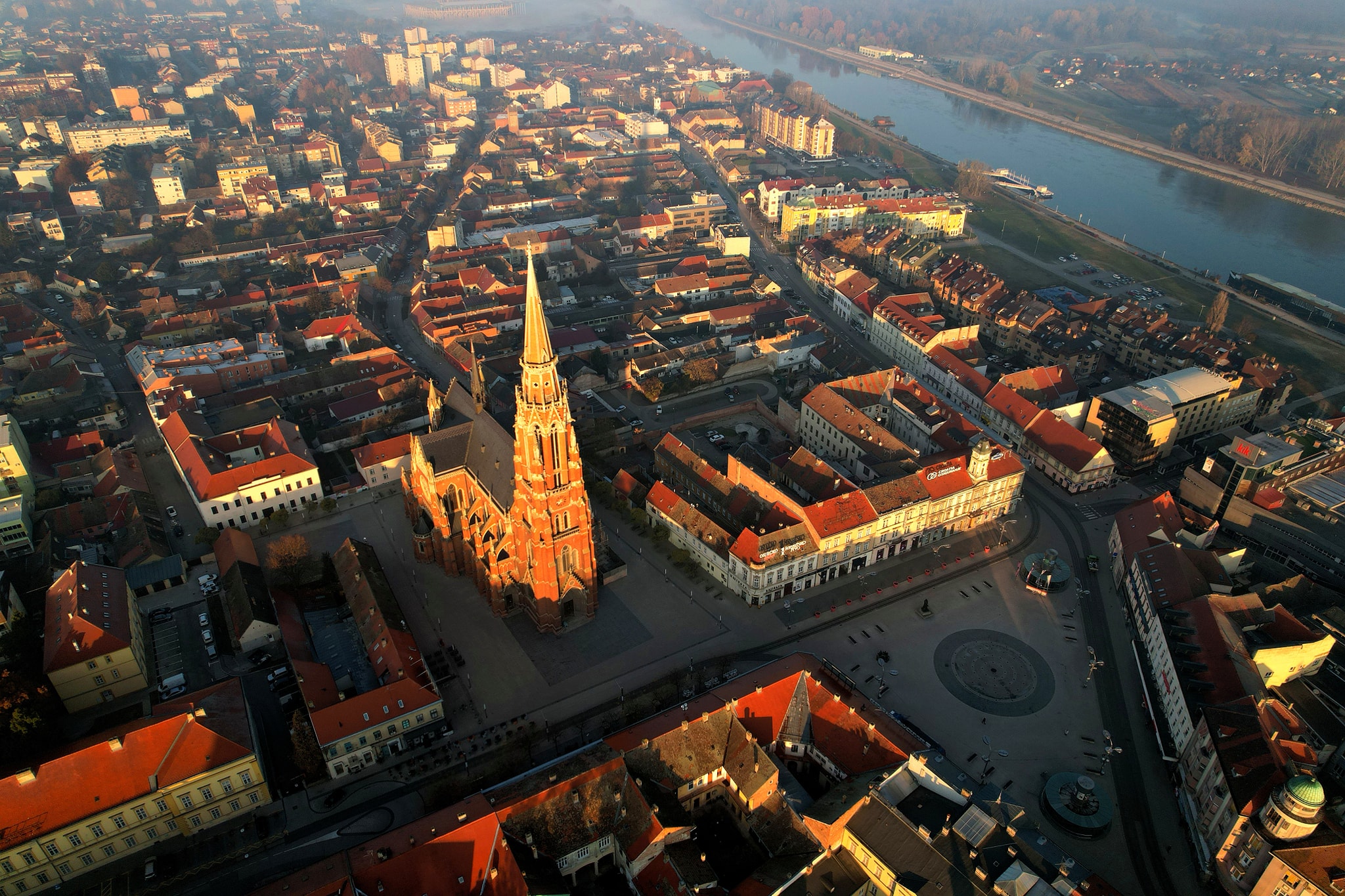
Every November 18, Facebook profile photos all over the country and the diaspora are changed to remember and honour those who made the ultimate sacrifice on the anniversary of the fall of Vukovar. All the politicians and thousands of Croats from all over the country head to the Hero City to pay their respects. It is an intense and emotional day, one which I documented in 2019 in Vukovar Remembrance Day Through the Eyes of a Foreign Resident.
But come November 19 and Vukovar - and the east - is forgotten for another 364 days until November 18 comes around again.
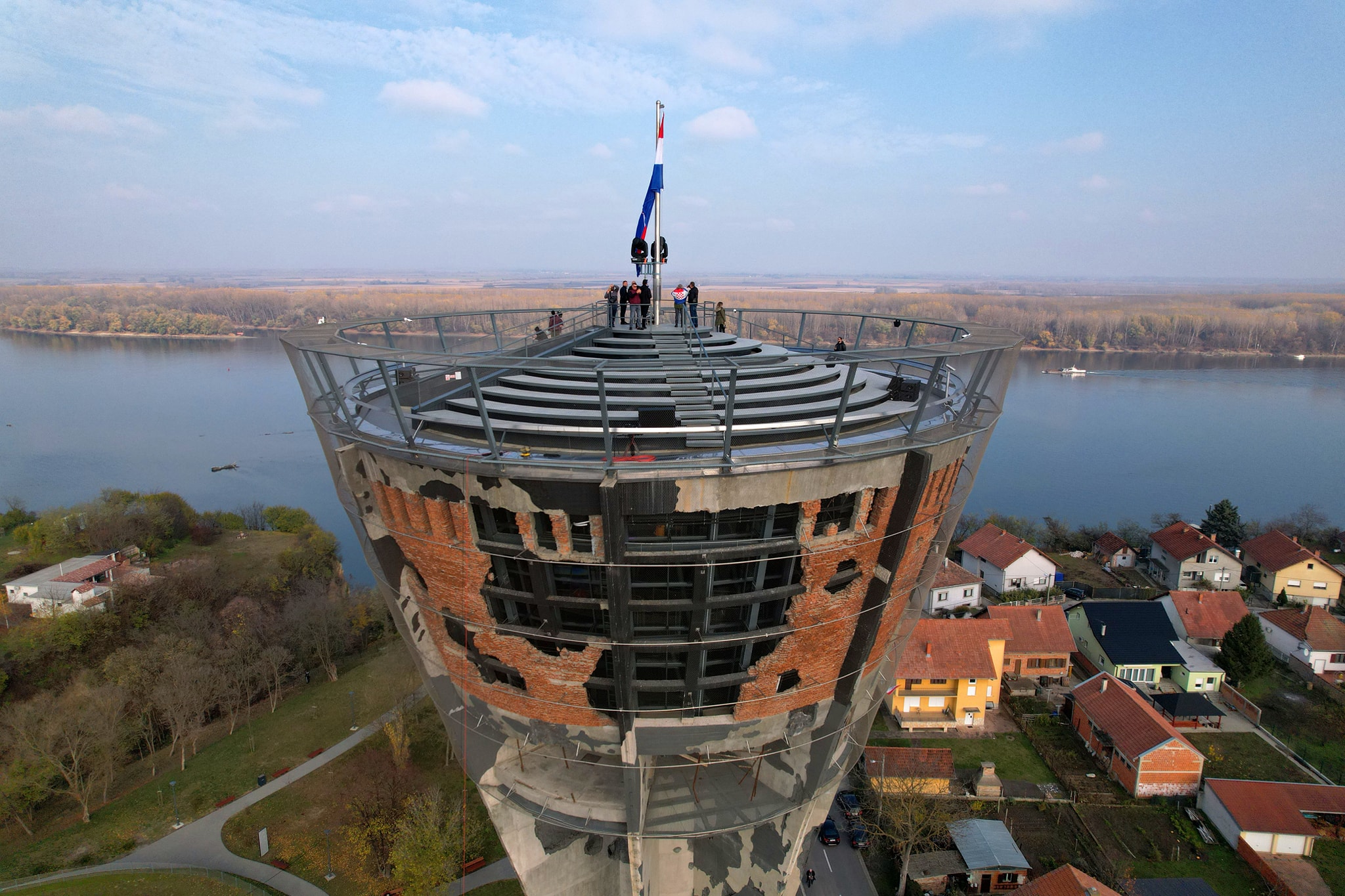
Despite bearing the brunt of the Serb onslaught in the Homeland War, and despite so many promises from politicians over the years, it seems to me that Slavonia has been treated like an embarrassing handicapped cousin that is best kept out of the limelight and gently ignored. Acknowledged only when necessary.
And not just by the politicians.
I have been genuinely shocked at how few of my Croatian friends have ever been to Slavonia, including those among the 200,000 Croats who go skiing abroad each year (the point here is not about skiing, but having the income to travel). And I am even more shocked at how little many of them know about eastern Croatia. Simple questions such as...
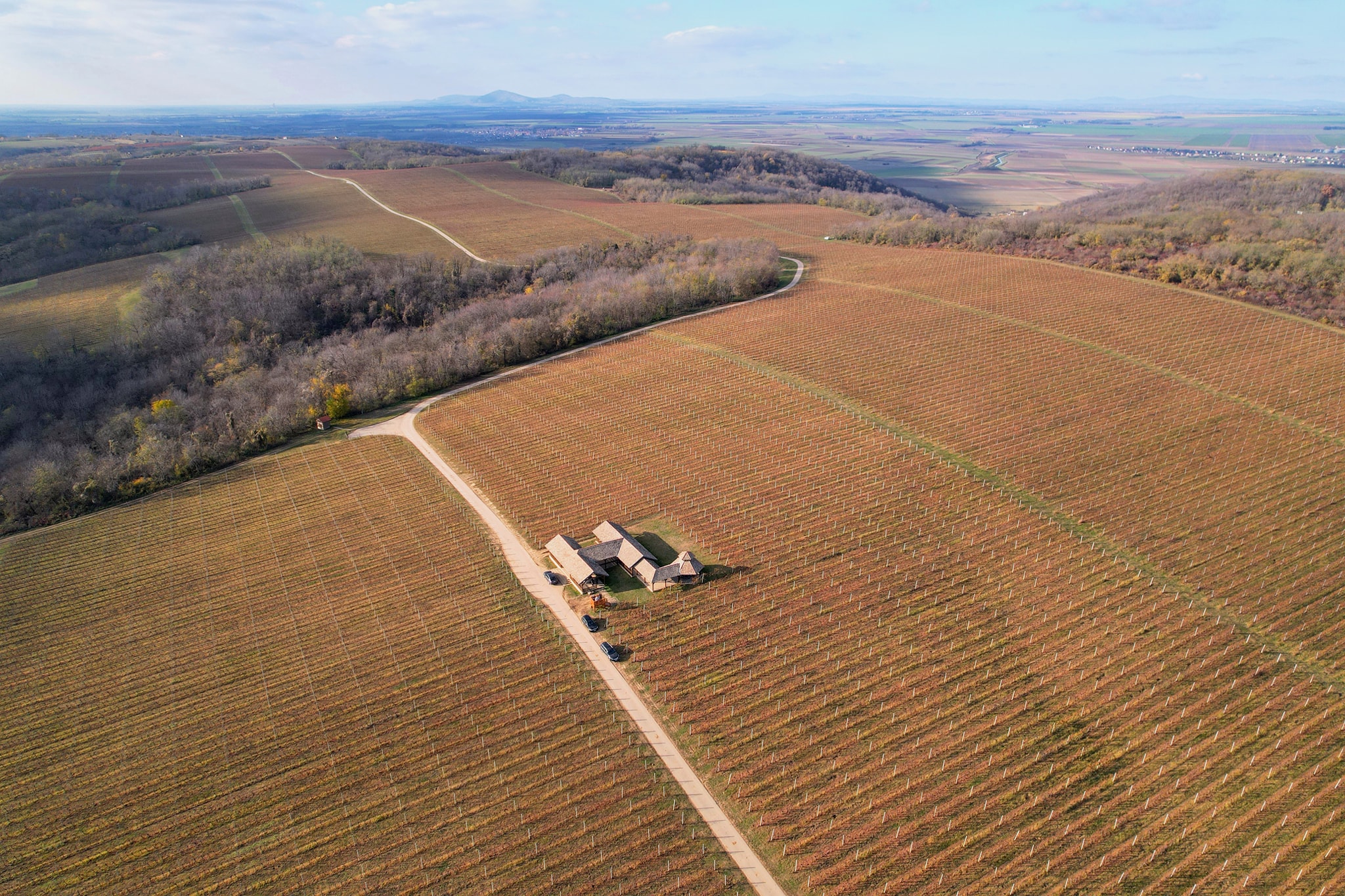
What is the capital of Baranja?
Can you name three famous buildings in eastern Croatia, not including the Vukovar Water Tower?
Where is the cradle of Indo-European civilisation?
Which Croatian wine was served at the Coronation of Queen Elizabeth, as well as the weddings of Princes Willliam and Harry?
... have been met with largely blank stares when I asked friends in Zagreb.
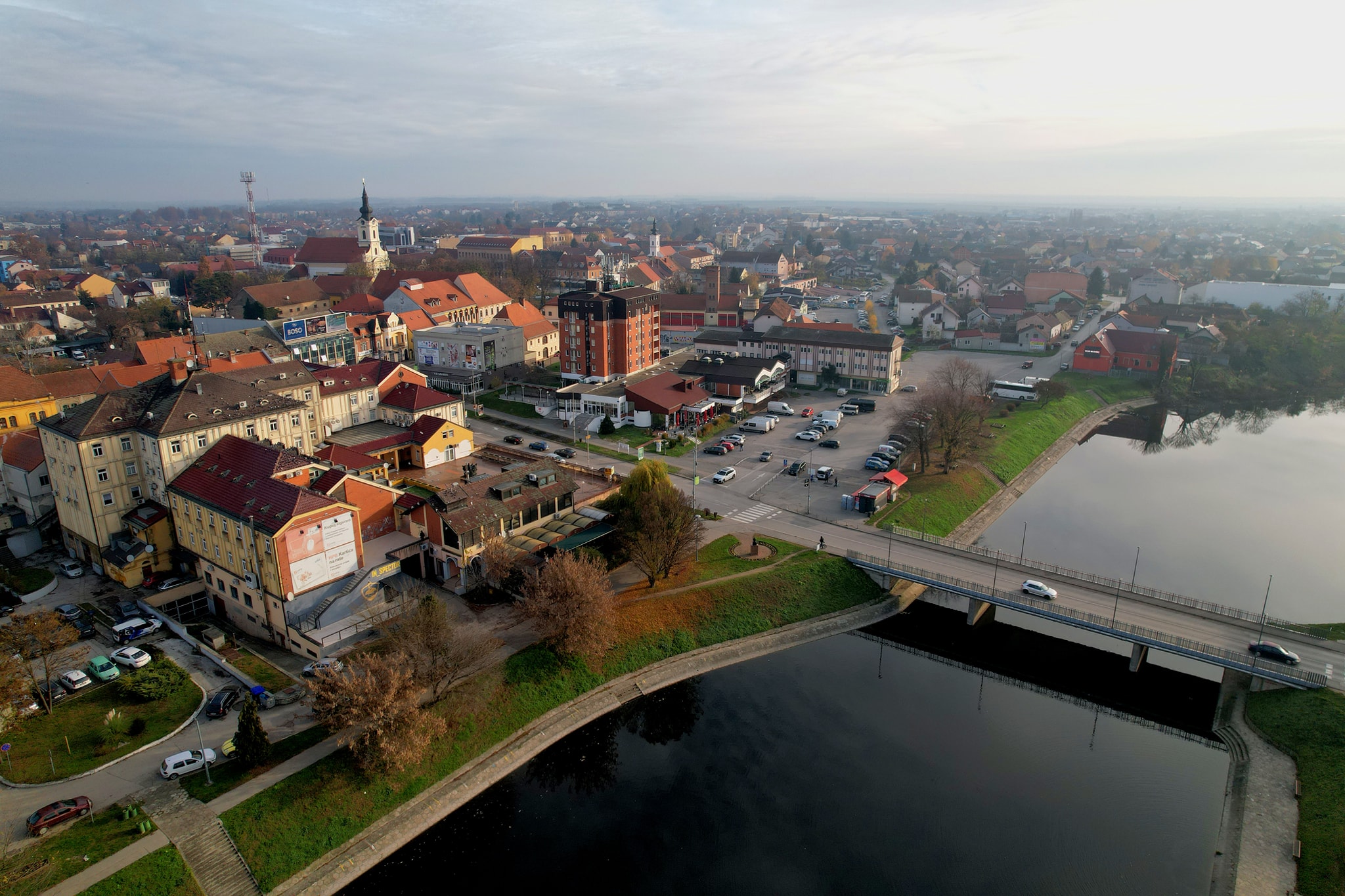
Slavonia is portrayed in the media as a sad place of mass emigration, struggling to move on from the war, where good news rarely exists. For many Croats, the whole of eastern Croatia is a blur associated with the aftermath of war, emigration, and economic stagnation.
Next week, during my panel discussion, Storytelling and the Nomad Movement, at Digital Nomad Week based out of Bali, I will be announcing the launch of our new CROMADS platform, which connects Croatia's limitless authentic experiences to digital nomads and tourists, all over Croatia, 12 months a year. As part of the preparations for the CROMADS platform, I took Steve Tsentserensky to eastern Croatia for a 6-day tour of Croatia's two most easternmost counties.
Steve is a very talented American writer and videographer who was one of the first to receive the Croatian digital nomad permit. His promotion of Croatia has been relentless ever since, including this viral video on the digital nomad lifestyle in Croatia on CNBC News, which has already attracted over 300,000 views. He has also just been announced as the Zagreb Special Guest Digital Nomad Ambassador for 2021. Steve had absolutely no clue about eastern Croatia and so was in a similar position as many locals here in Croatia.
I contacted the tourist board directors of Osijek-Baranja and Vukovar-Srijem counties, Ivana Juric and Rujana Busic Srpak, and explained the mission to film the very best of the east for CROMADS. They kindly agreed to organise a 6-day itinerary for us. Steve will have a video report of the trip, including some truly epic drone footage, later in the month. But as today is Osijek's special day, let's take a tour of Slavonia Full of Life, the reality.
Day 1 - Zagreb to Ilok
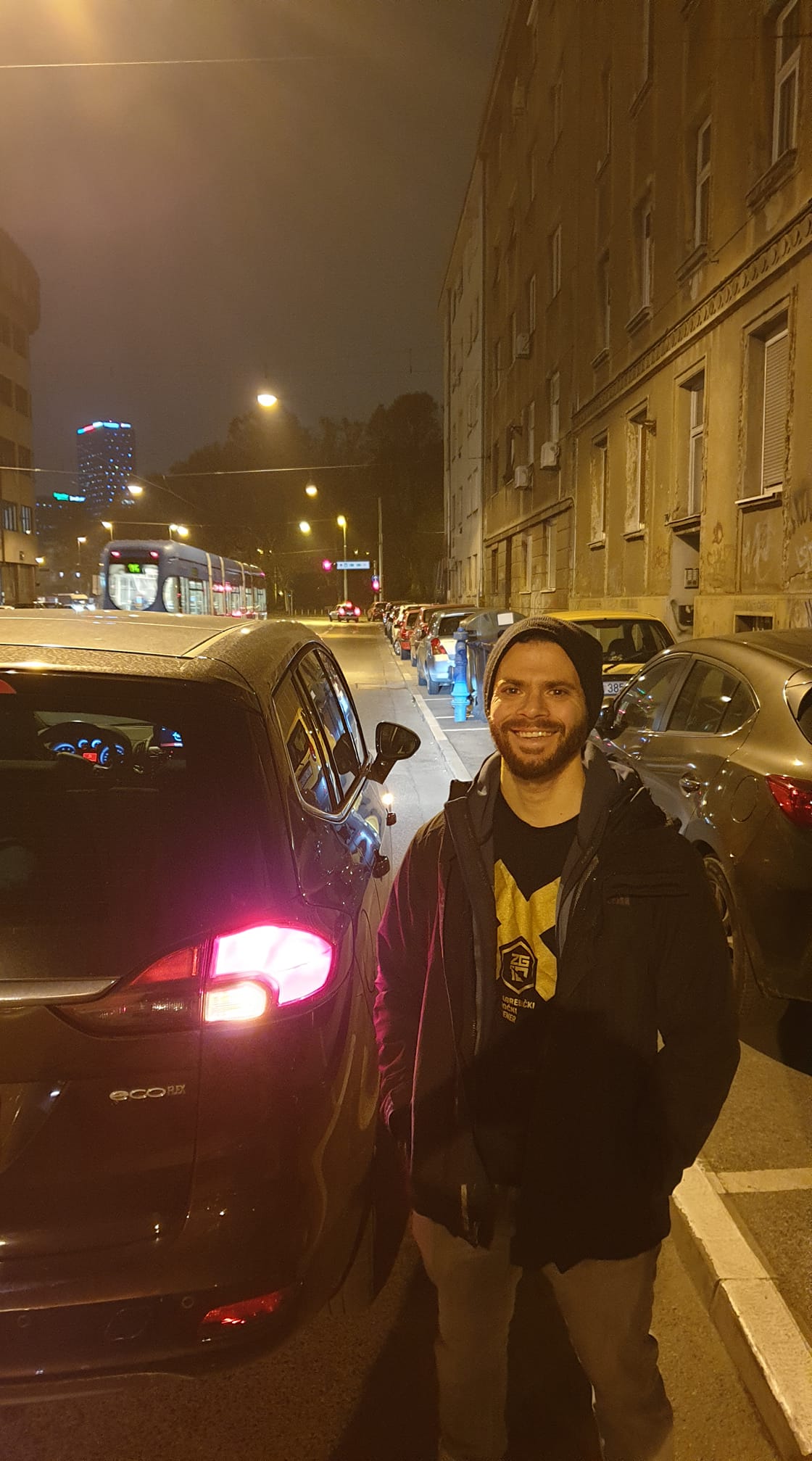
06:13 Zagreb, Day One. 6 days, 1 Yank, 1 camera. The mission - to discover if there is life in Eastern Croatia in November. #Ajmo Slavonia, make me proud and show us what you've got. With Steve Tsentserensky #CROMADS
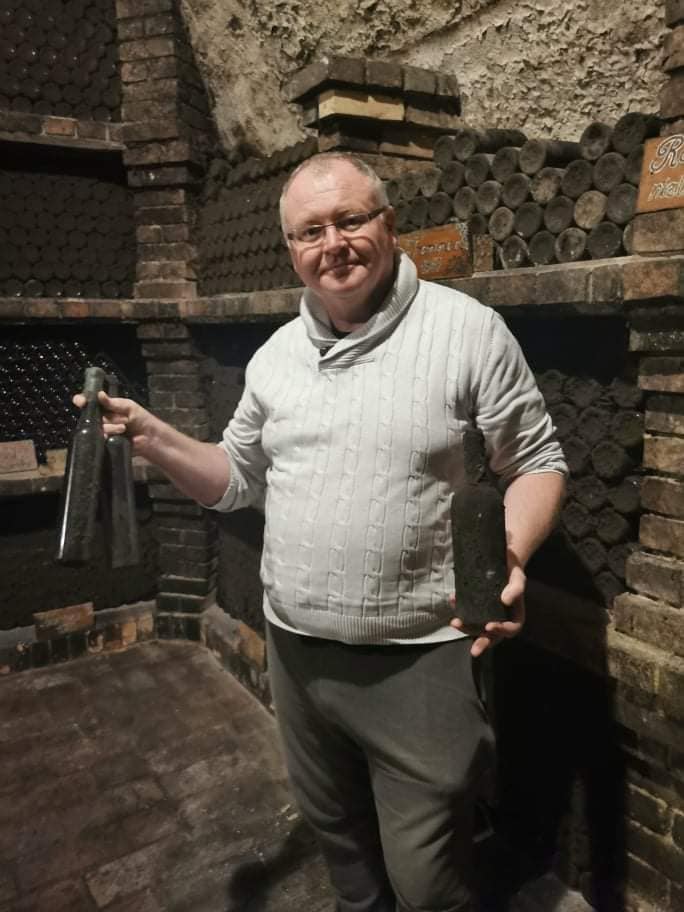
Our first stop was the easternmost point of Croatia, which is actually closer to Zagreb than Split. Ilocki Podrum and its phenomenal vineyards are the gateway to Western Europe in Ilok. And where else in the world can you hold three bottles of the same wine what was served at the Coronation of Queen Elizabeth II in 1953, as well as the weddings of both Prince William and Prince Harry? Learn more about the magic of Ilocki Podrum in this TCN visit a couple of years ago.
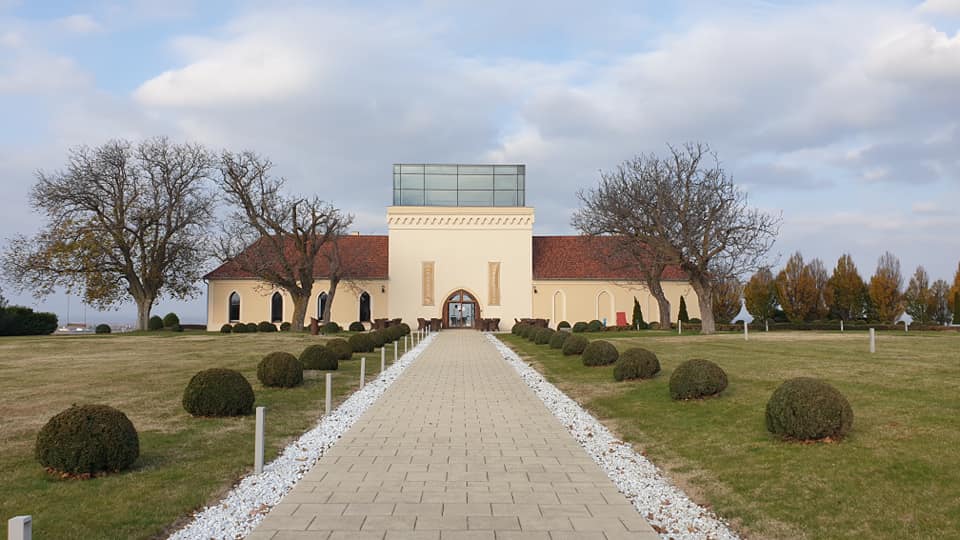
The place to stay is the magnificent Principovac Estate, which is perched on a hill and overlooking the endless vineyards.
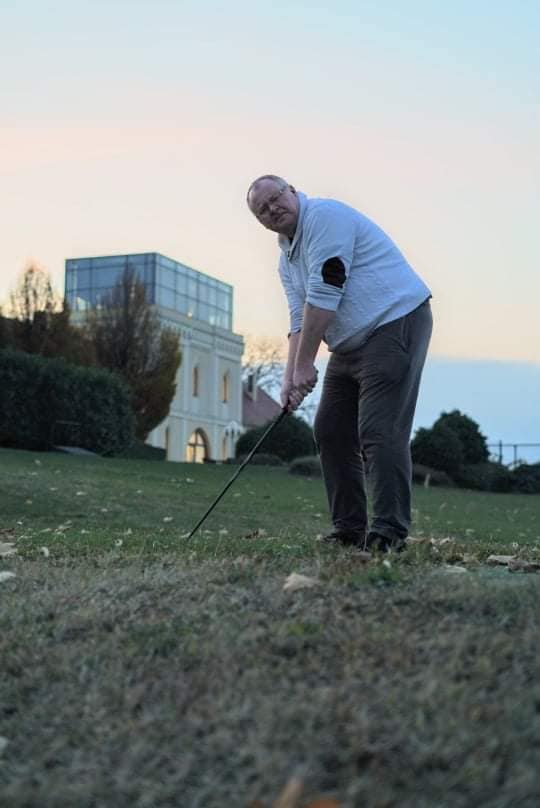
And there was just enough time after an excellent wine sampling to brush up on my golfing skills before dark.
Day 2 - Vucedol, Ovcara, Vukovar, Otocki Virovi and Vinkovci
Did you know that the cradle of Indo-European civilisation was in eastern Croatia, and that there is an award-winning museum built into the location? Learn more about incredible Vucedol on this TCN 2019 visit.
Very close by and a much more recent memorial at Ovcara, to the victims of the 1991 massacre of around 260 patients of the Vukovar Hospital, who were transported to Ovcara once Vukovar was conquered, tortured and murdered. The bullets in the floor are but one poignant reminder.
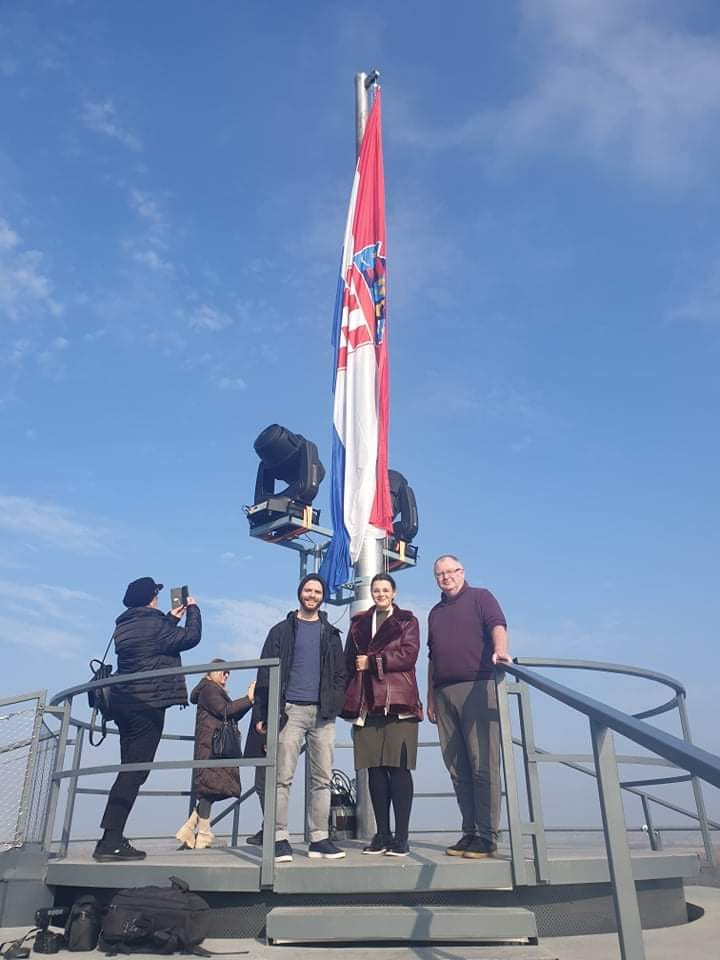
The Vukovar Water Tower is a national symbol of resistance and pride. While the exterior remains untouched, the interior has been renovated, and the viewing point at the top is a popular attraction, as well as giving outstanding views of the city, the Danube and across to Vojvodina in Serbia.
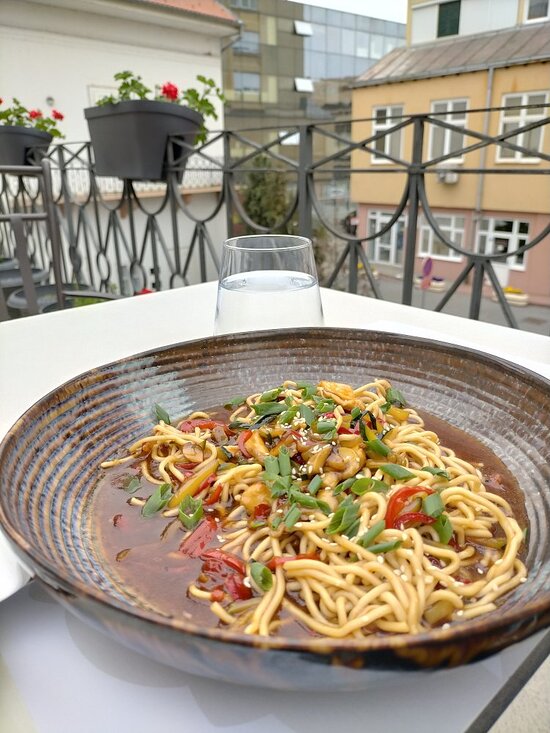
A vegetarian when the Slavonian diet would allow it, Asian vegetable wok noodles were a pleasant surprise for Steve at the outstanding Lola in the centre of Vukovar.
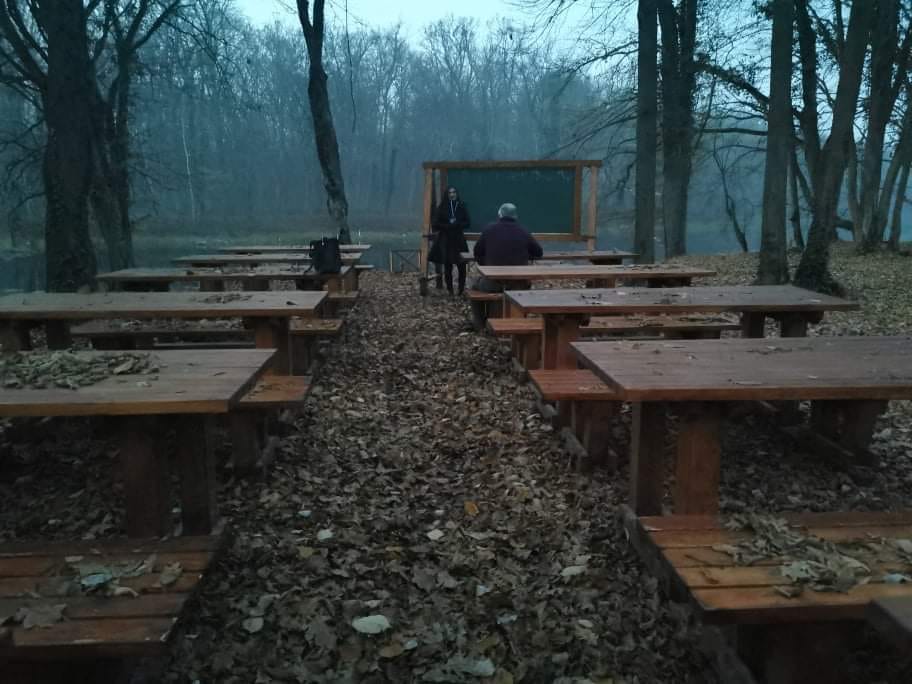
And then for something completely different - a journey into the classroom back in nature, as we headed into the forest to the recently opened Otocki Virovi Bio-ecological education centre. Amazing carbon-neutral hotel, wellness and conference facility in the middle of the forest. I will be returning with the TCN crew for a teambuilding weekend in Spring.
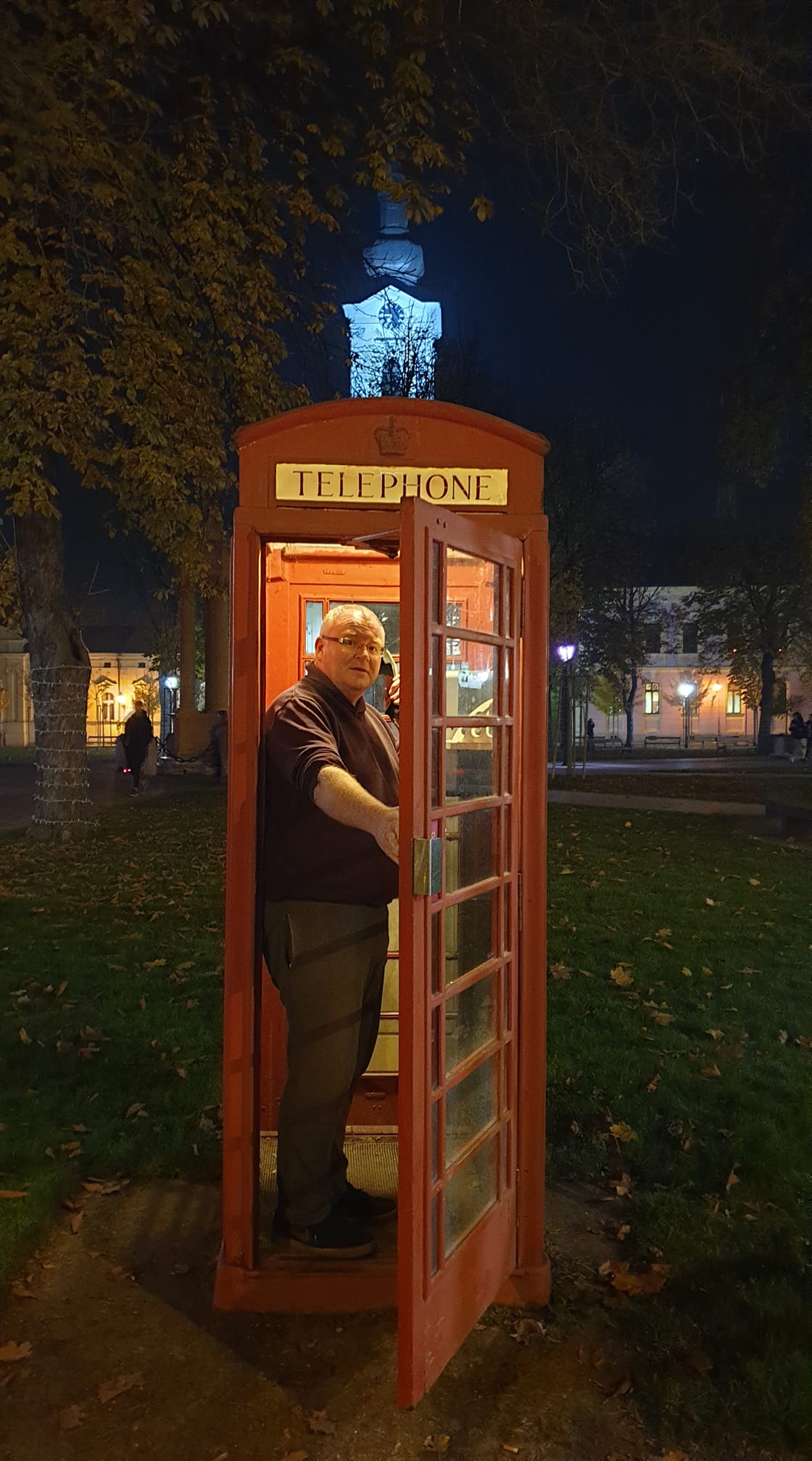
You don't see many public telephones in Croatia these days, but here is one in Vinkovci, the oldest continuously inhabited town in Europe, dating back some 8,300 years. Learn more in Vinkovci: 10 Things to Know about Europe's Oldest Town.
Home to the oldest calendar in Europe, whose symbols adorn the main pedestrian street. Nice shot, Stevie T!
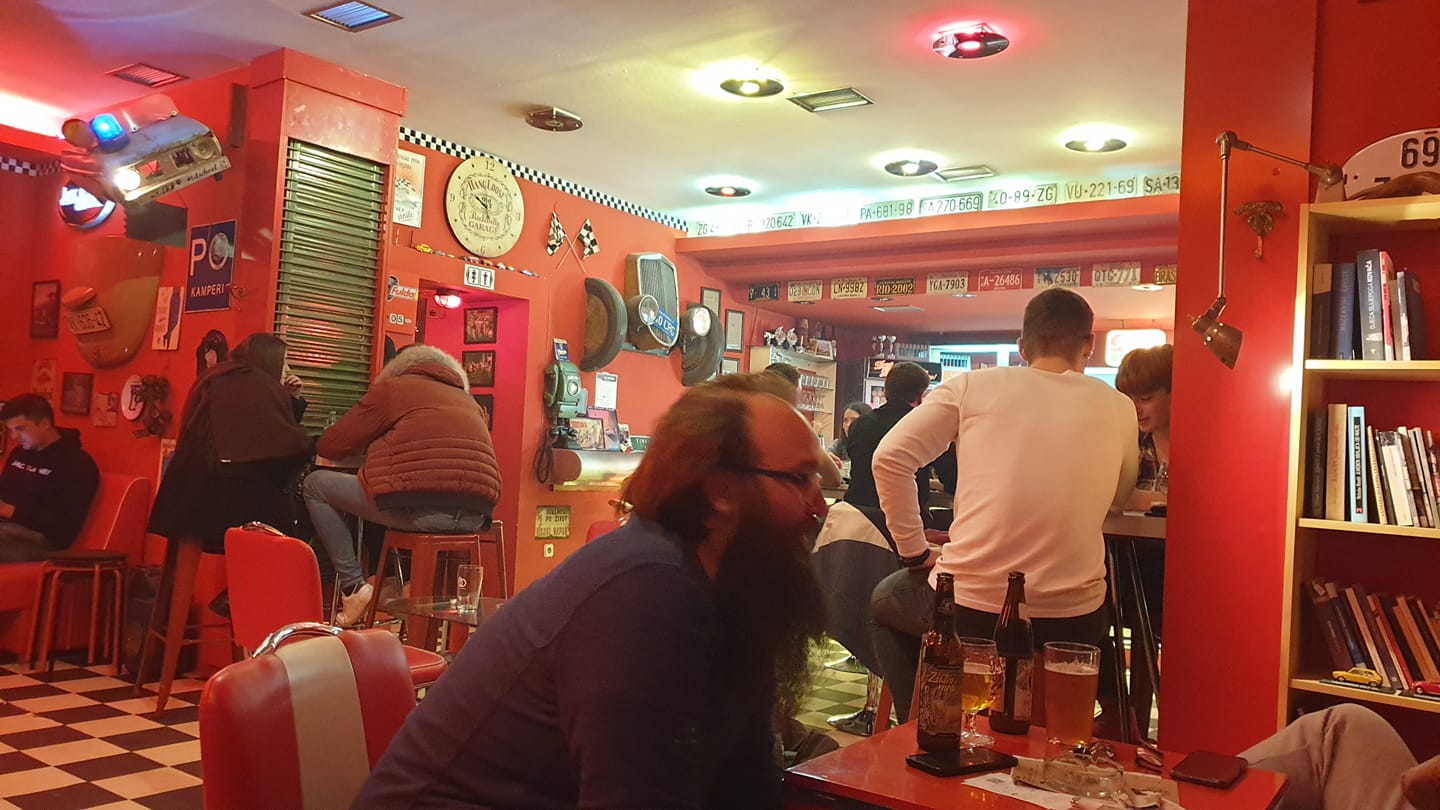
And far from being dead, Vinkovci was full of life at the rockabilly bar Hang Loose that night.
Day 3 - Vukovar Remembrance Day and Foreign Veterans BBQ at The White Boar
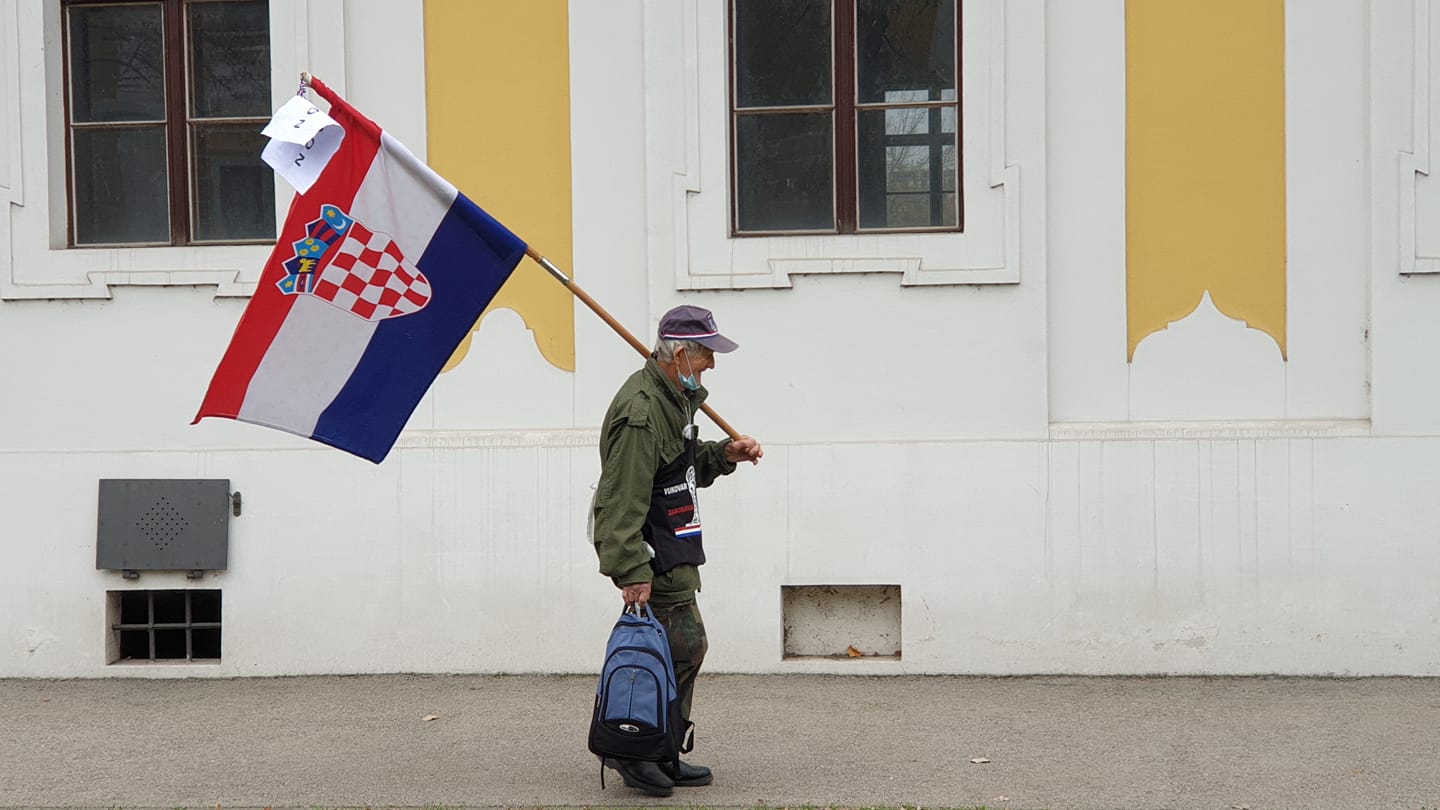
November 18 is Vukovar Remembrance Day, now a national holiday. Some 50,000 people turned up for the 30th anniversary of the fall of Vukovar.
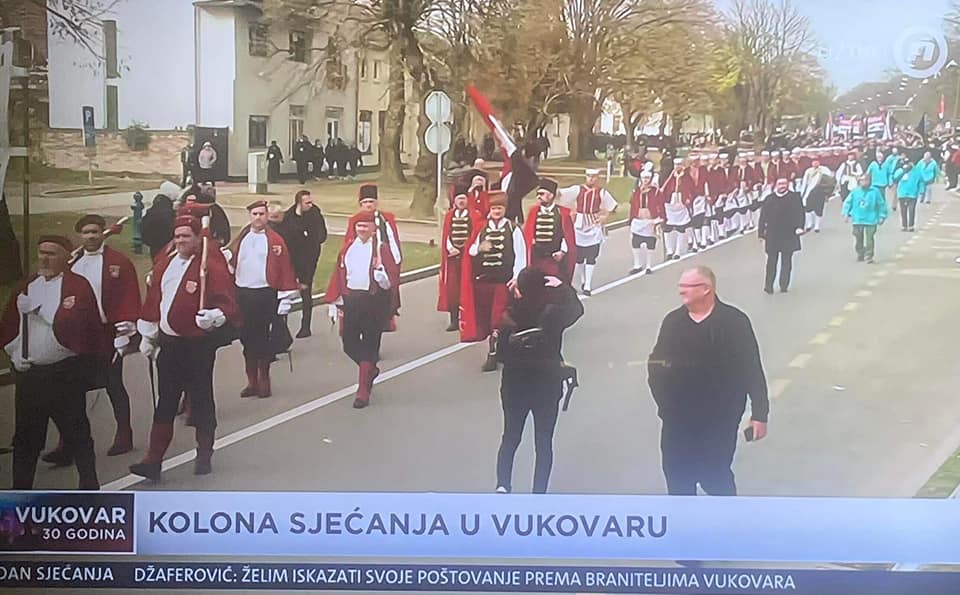
We inadvertently found ourselves on national television as we filmed. You can learn more about this very emotional and intense day in Vukovar Remembrance Day Through the Eyes of a Foreign Resident.
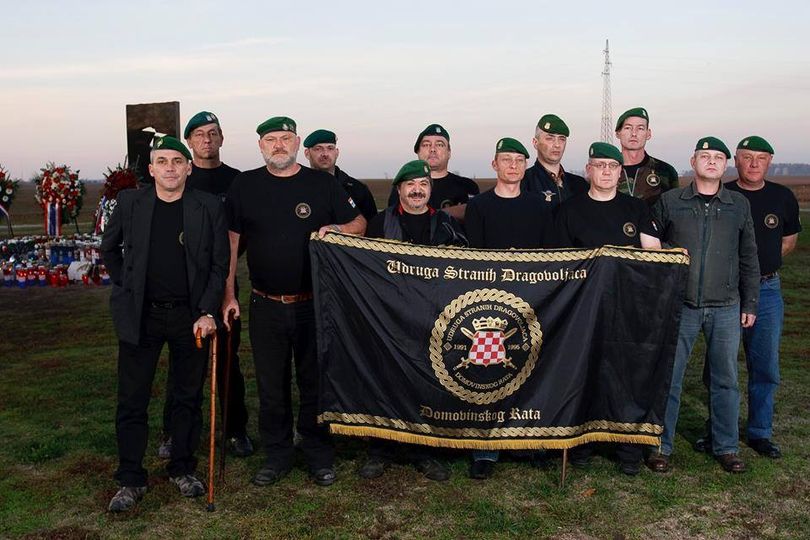
There is a very special event each year on November 18, as all the foreign veterans who fought for Croatia gather to remember and to catch up.
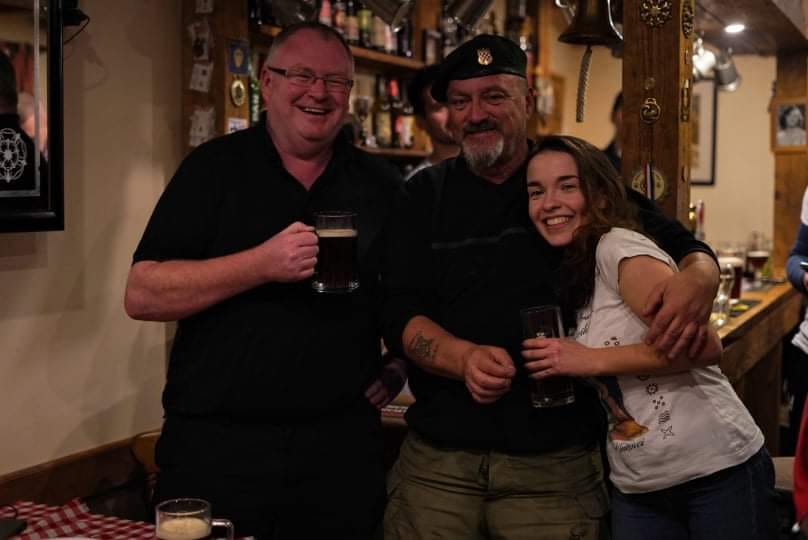
The barbecue is hosted each year by Vinkovci Yorkshireman Steve Gaunt, from his English pub, The White Boar, which is literally in a field in the middle of nowhere.
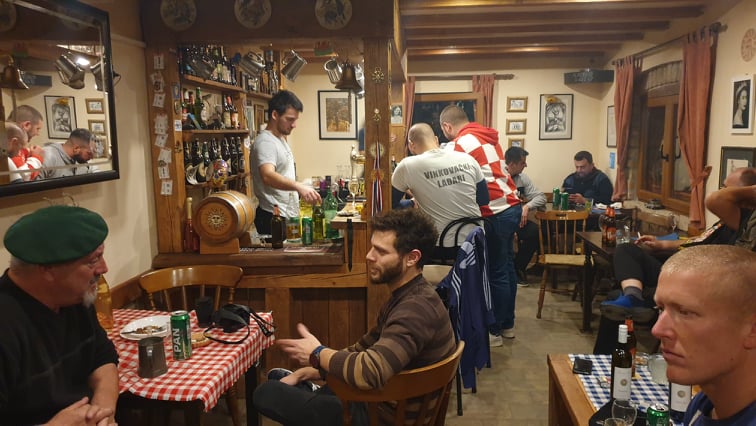
From a portrait of Queen Elizabeth on the wall to veterans in uniform, Steve's face was priceless. He later described it as 'the most far-out bar experience of my life.'
Fortunately, we had the good sense to leave early, as things got a little lively later on as the veterans retured for the night and the kids took over, as Steve's public information film showed (1 minute and worth watching to the end).
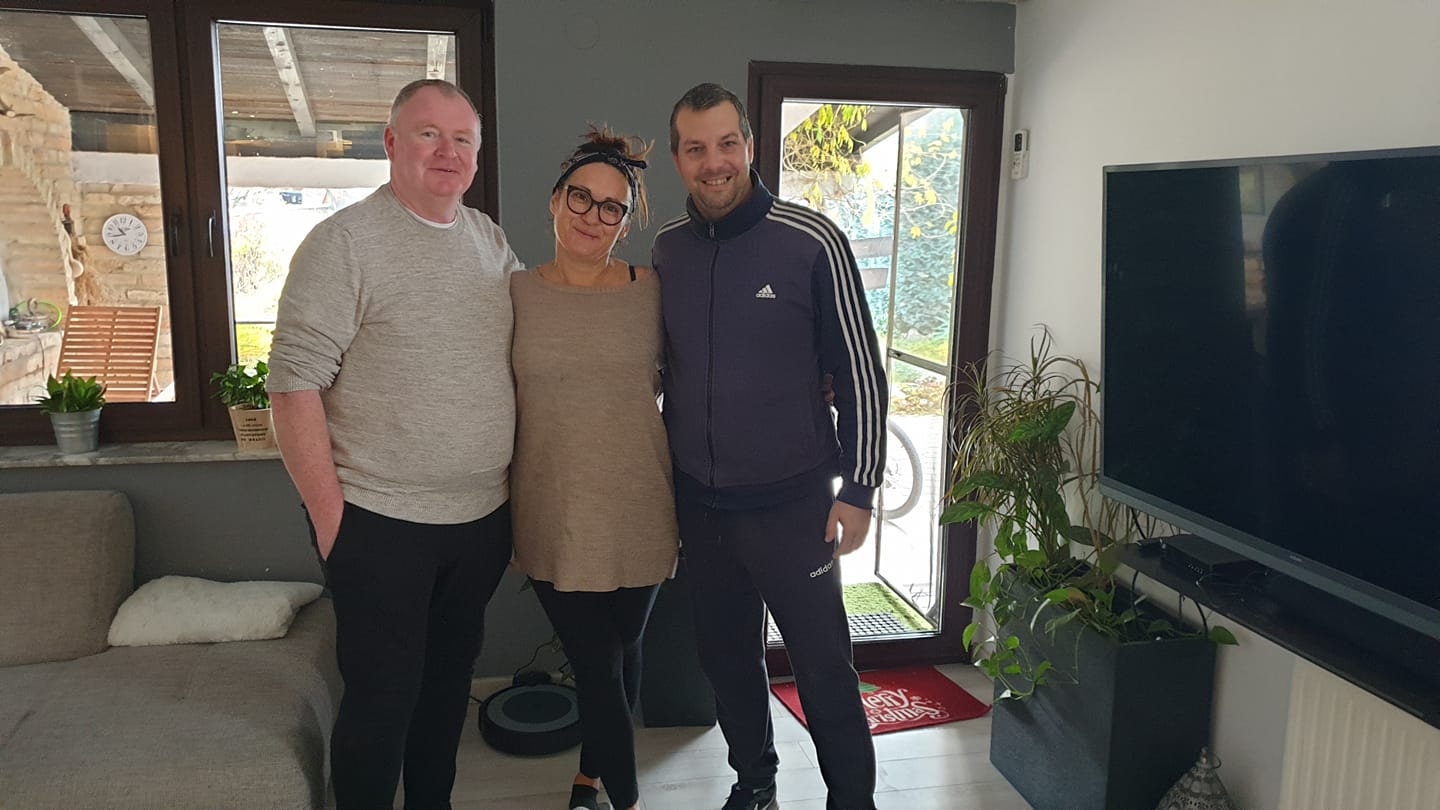
No tour of Slavonia would be complete without a visit to the man who has done more for tourism in Slavonia than the rest of us combined, and it was great to spend the night at the home of Goran Rihelj and his lovely wife, Mirjam. Great kulen!
Day 4 - Dalj, Erdut and Osijek
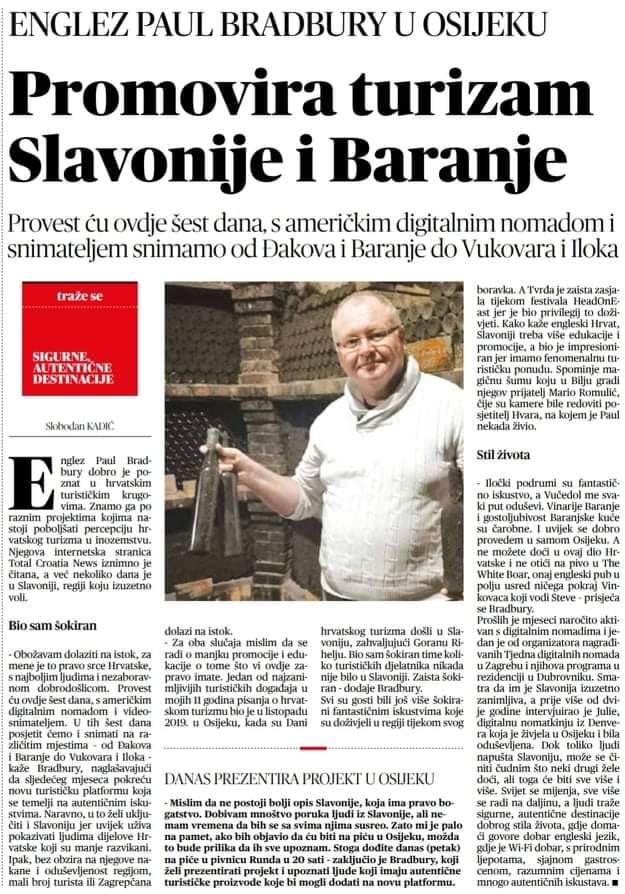
By now, the regional press had picked up the story of our visit, and the fact that I had invited anyone who wanted to meet and discuss tourism and our new CROMADS project to come to Pivnica Runda in Osijek.
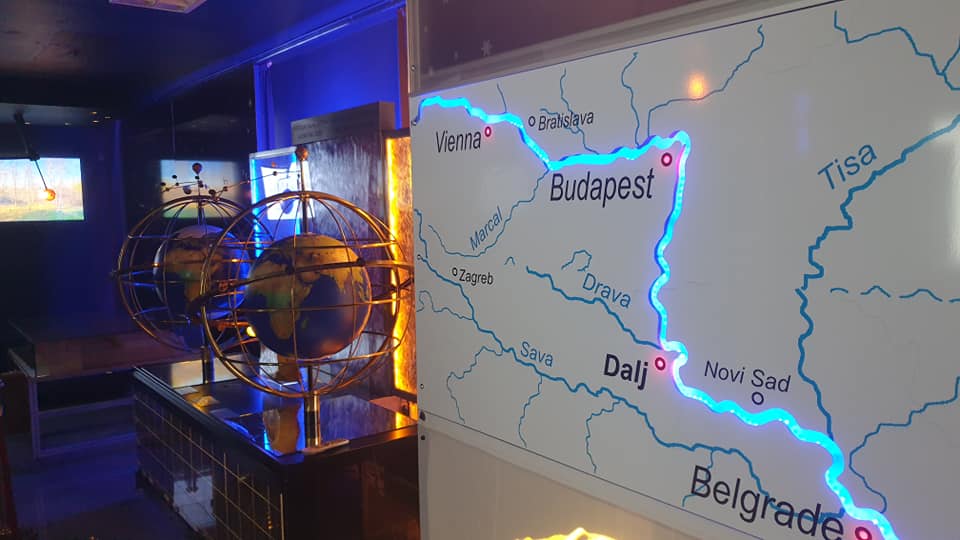
But first we had to survive Day 4, which began in Dalj at the incredible Milutin Malinkovic Birthplace Museum.
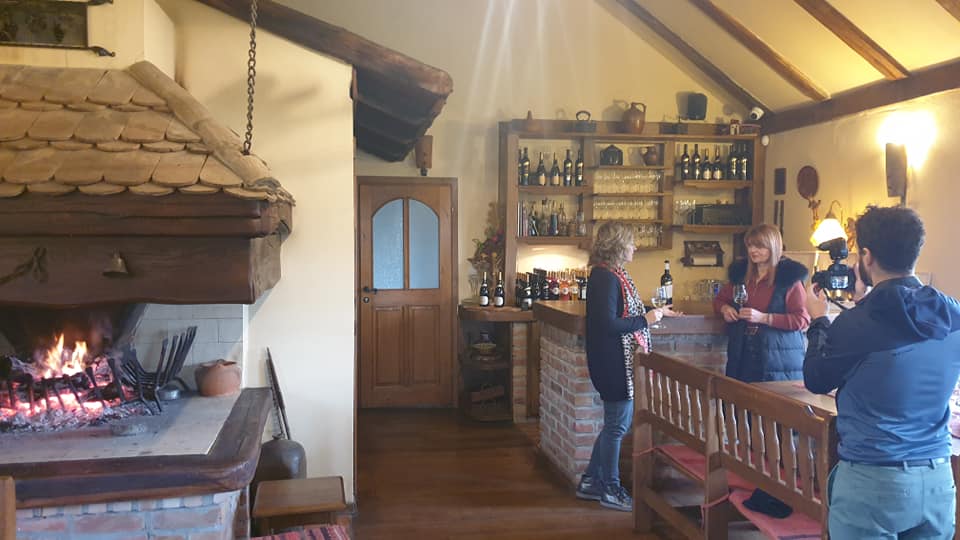
Dalj seemed to be full of secrets, with the Jasna Antunovic Winery next up. Jasna was not only apparently the first female-owned winery in Croatia, but also the 2017 Decanter winner of the best white wine in continental Croatia.
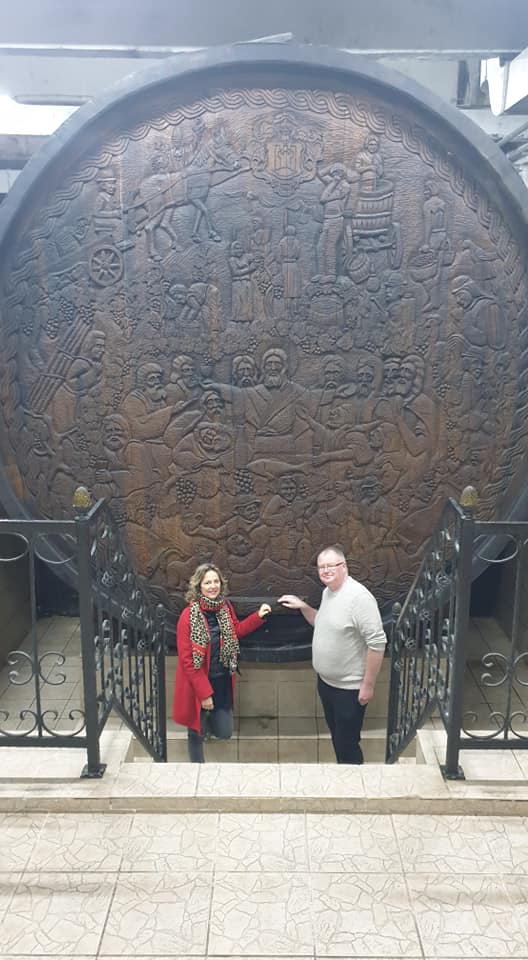
Some claim it is the largest wine barrel in the world in continuous use, over in Erdut. While I cannot confirm that, it would take me a day or two to work my way through the 75,000 litres of Grasevina contained therein.
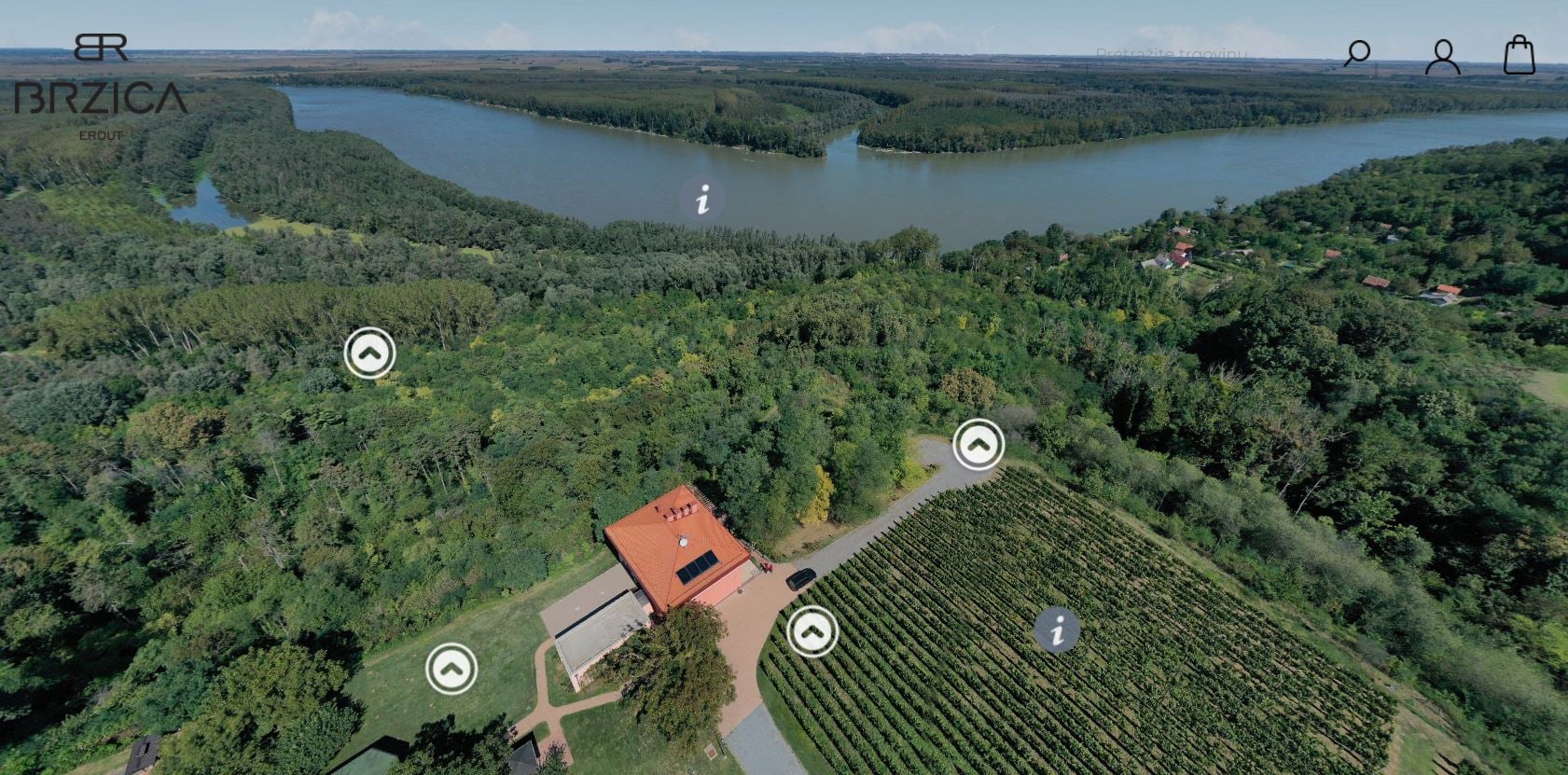
And for a winery with a water view, you could do worse than Ivo Brzica on the banks of the Danube. Among his several excellent wines, what I believe to be the only Vranac produced in Croatia.
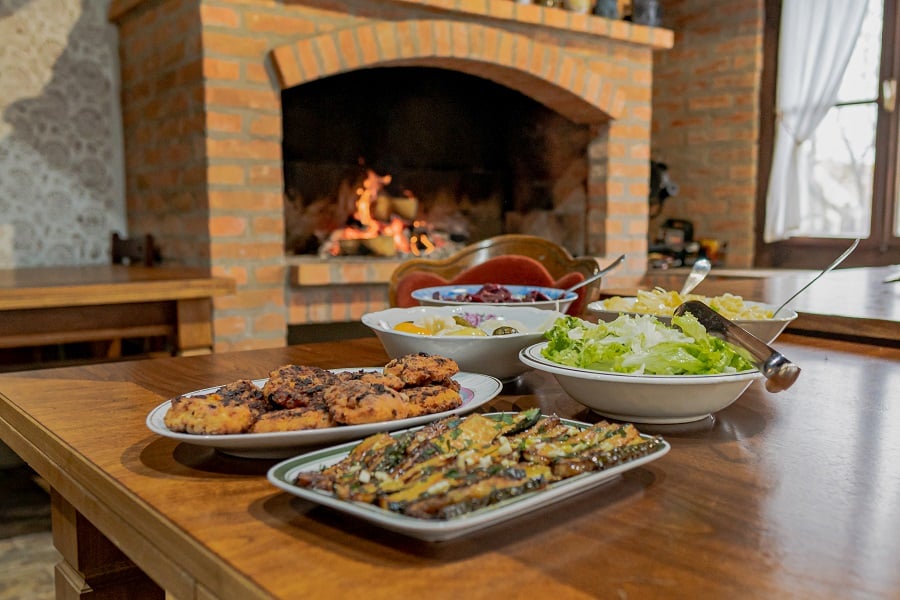
Where else to go for a spot of lunch than the epic OPG Ethno Kuca Stari Dud?
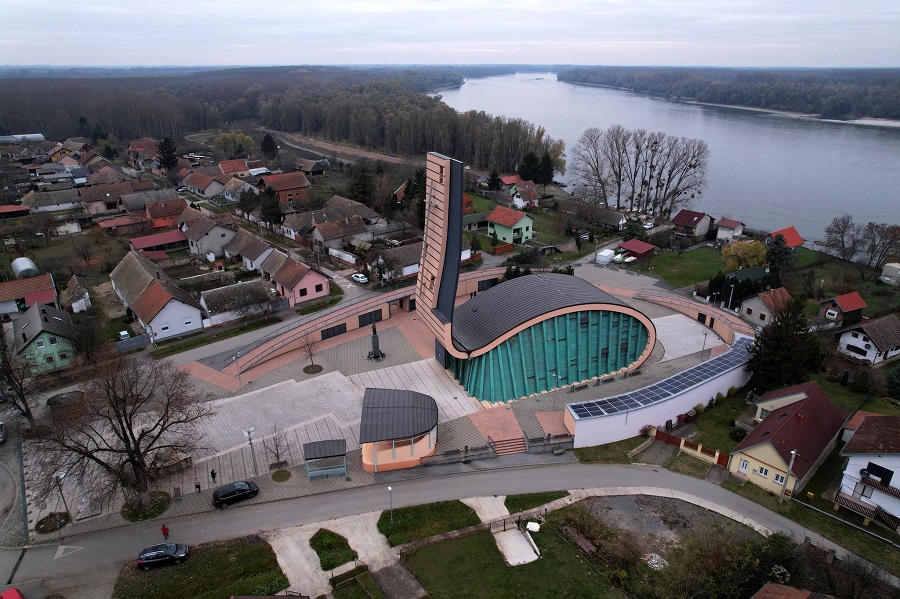
Unusual church fan? Head to Aljmas.
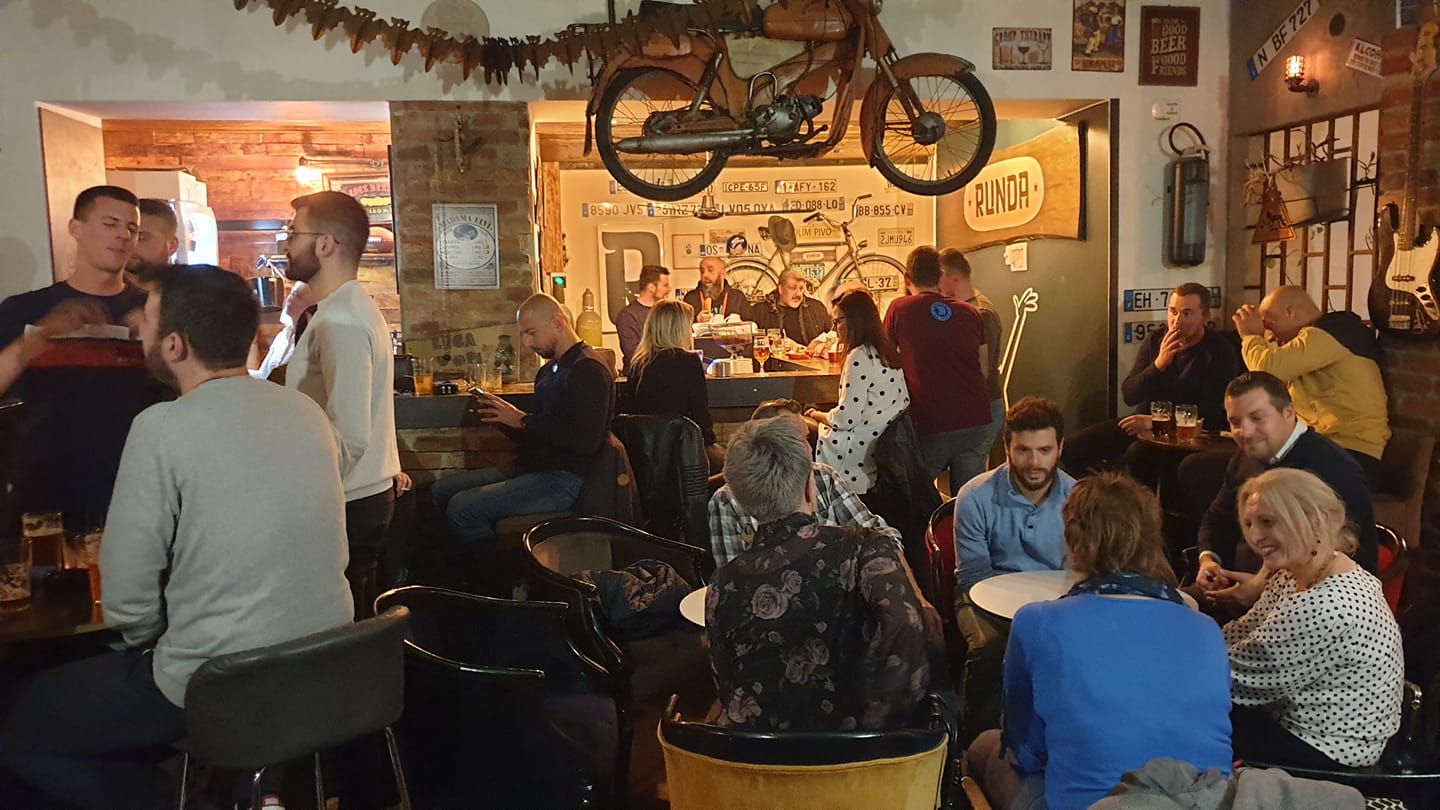
But Osijek was calling and after a fantastic walking tour of the town, I had to get to Pivnica Runda for 19:00. Would anyone show up, or would I be Billy No Mates?
They came.
They were magnificent.
Such passion, such ideas, such creativity. So Slavonia Full of Life.
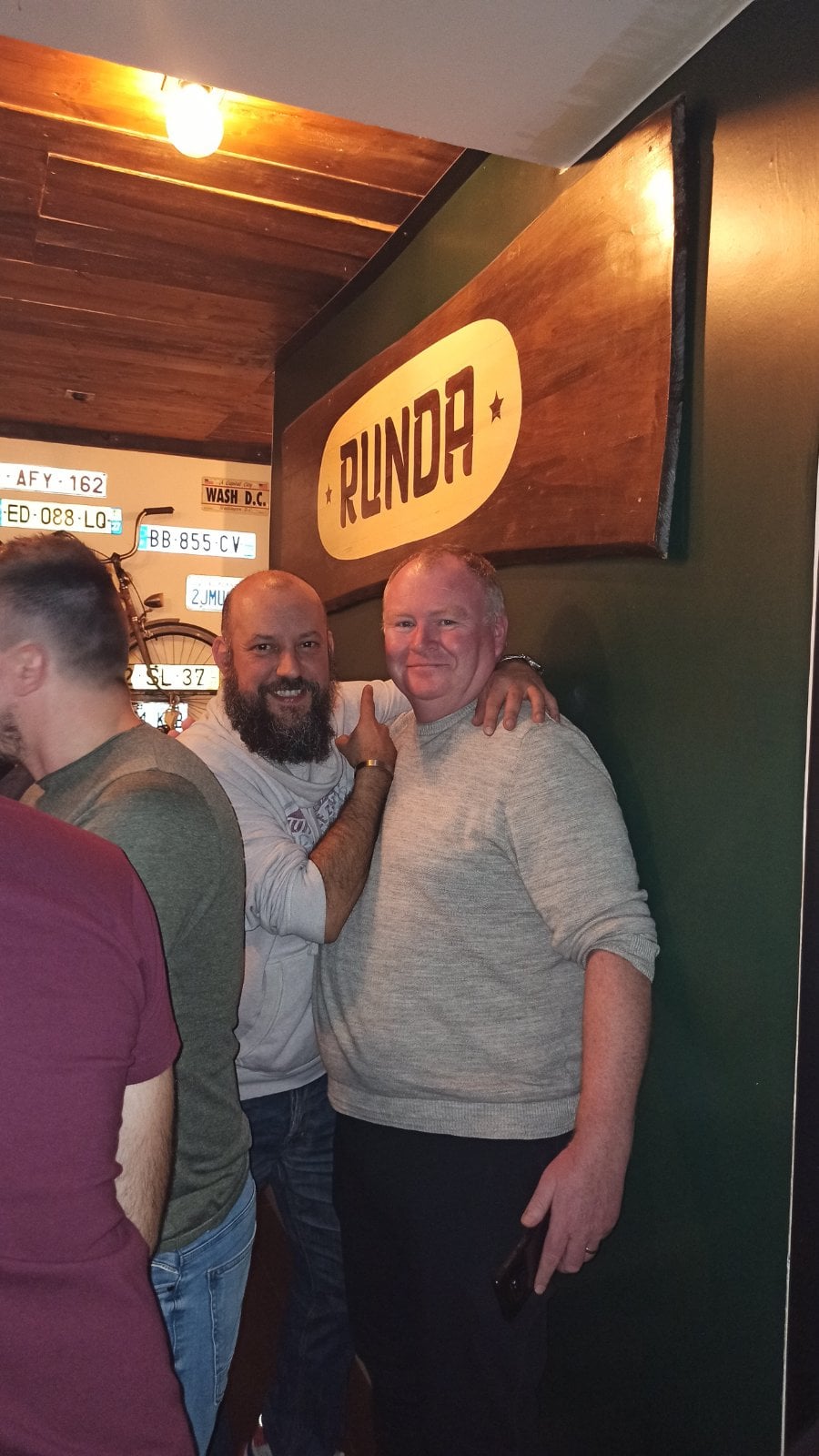
All hosted by the King of Fun.
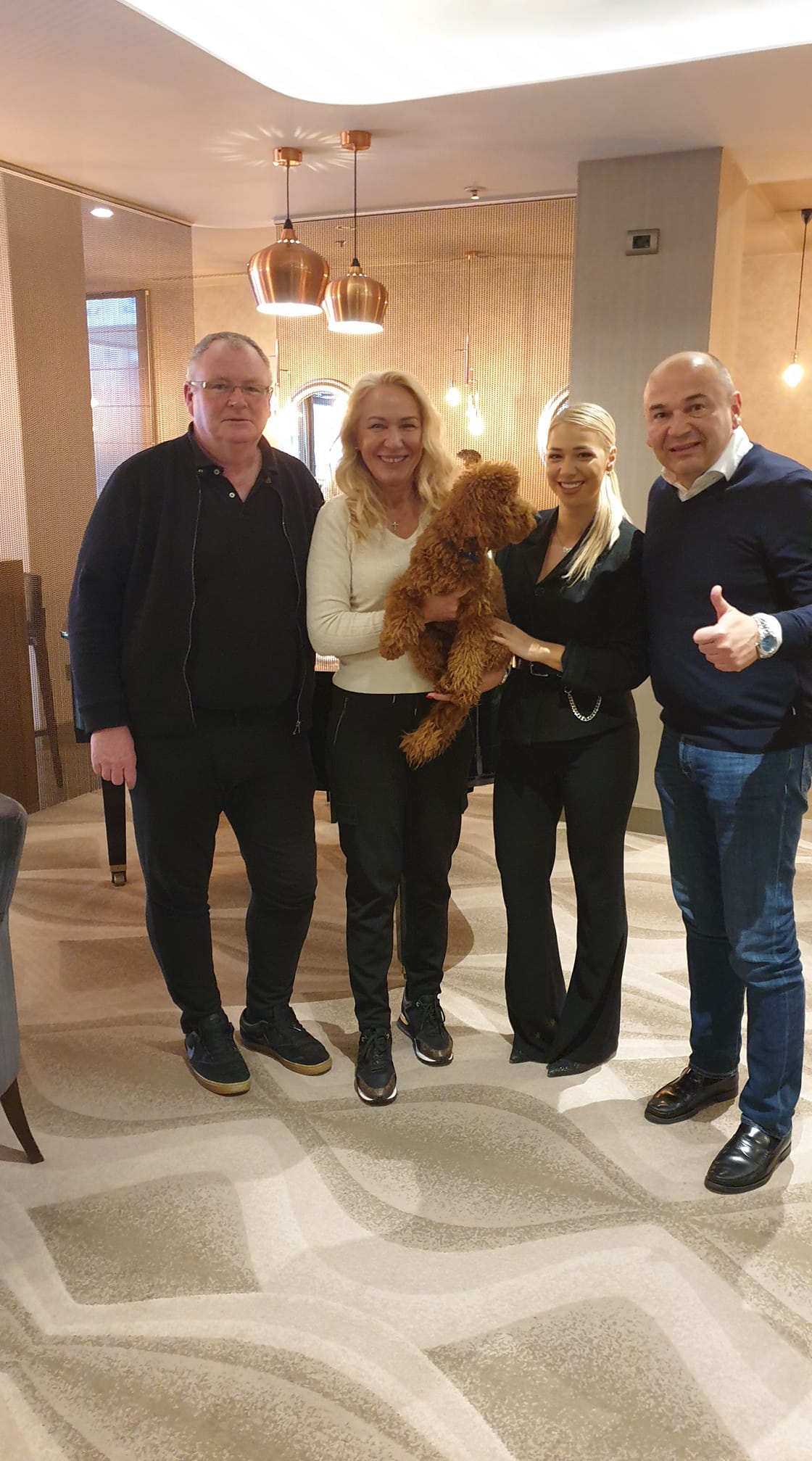
One immediate consequence of one conversation that evening was a very pleasant coffee with the parents (and dog Mali) or Osijek-born tennis star, Donna Vekic, at The Westin in Zagreb a few days later. A rather fabulous exchange of ideas, and it was very encouraging to learn the Vekic vision and investment plans for Osijek
The walk home to the fortress was a little hazy, but Facebook confirms that the streets of Osijek were very much full of life way past midnight.
In November.
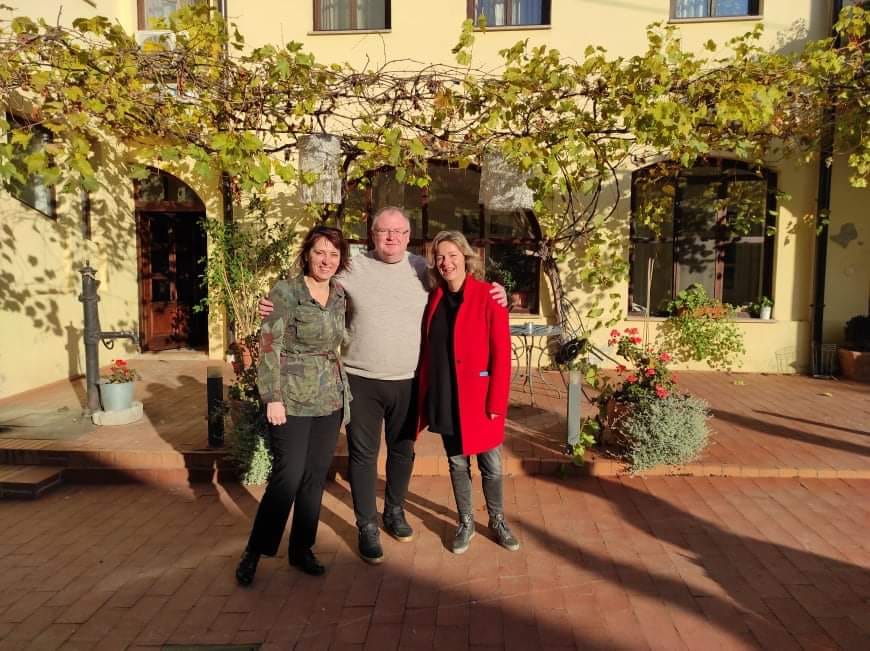
And when you have old town accommodation of the quality of Maksimilian, you know your stay in Osijek will be perfect.
Day 5 - Baranja
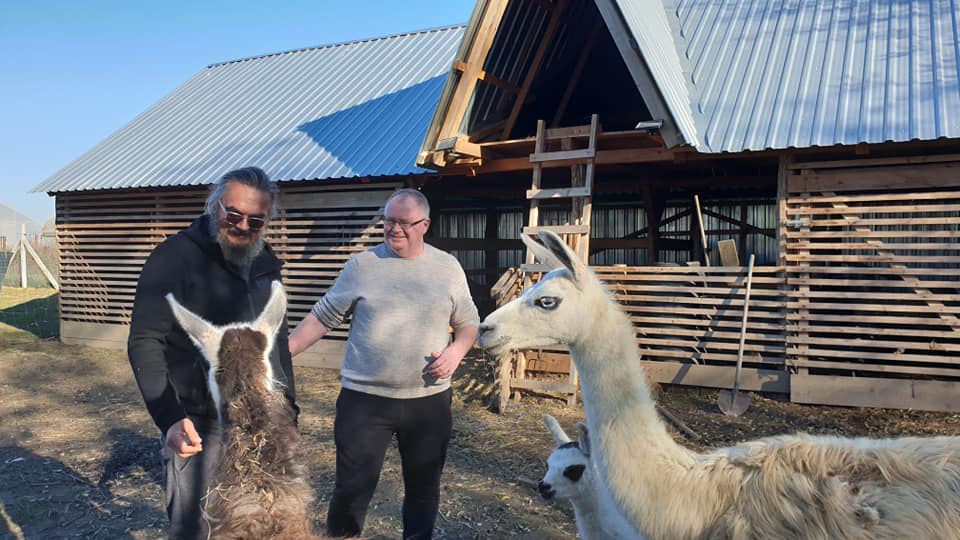
Day 5 - Baranja, and the perfect start with one of my all-time heroes, the legend that is Mario Romulic and his quite incredible Magical Forest project.
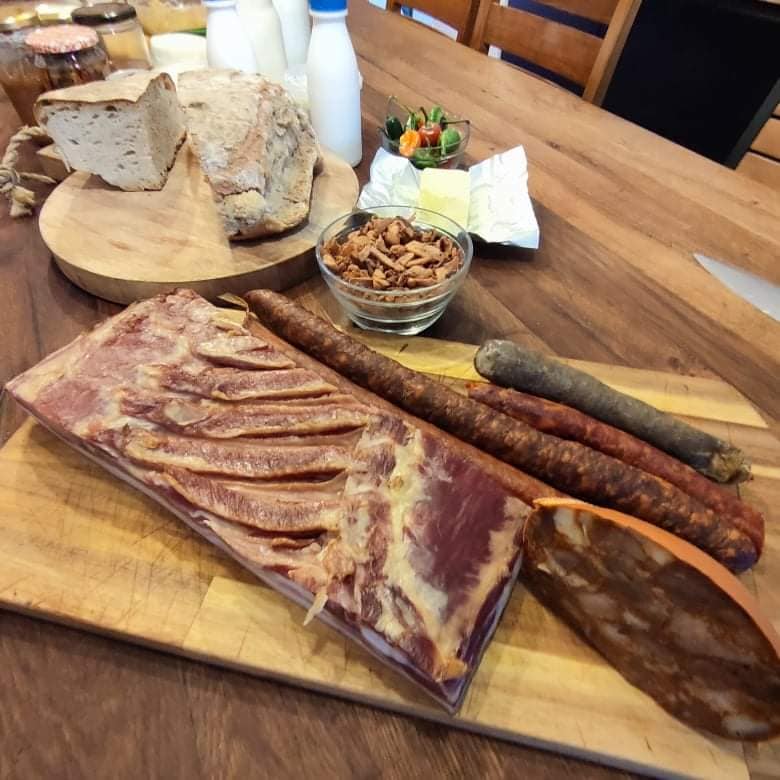
Always a strong vegetarian offer at the Romulic kitchen table.
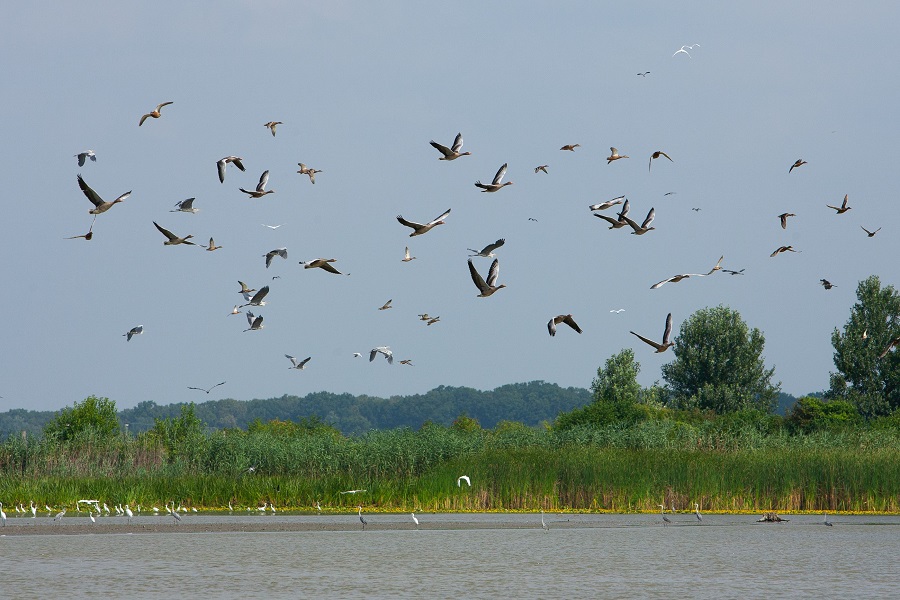
Kopacki Rit Nature Park, one of the most important wetlands in Europe. Learn more in the TC Kopacki Rit in a Page guide.
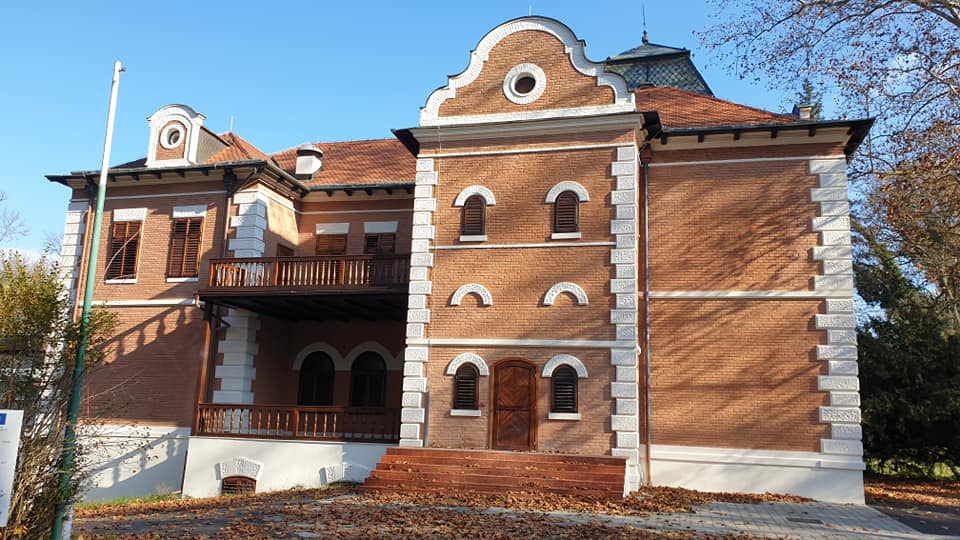
Every dirt track in Baranja seems to lead to its own story. 30 years ago, Tito's former villa in Tikves hosted the final meeting between Milosevic and Tudjman in April 1991. Next year, the villa reopens as a presentation and education centre.
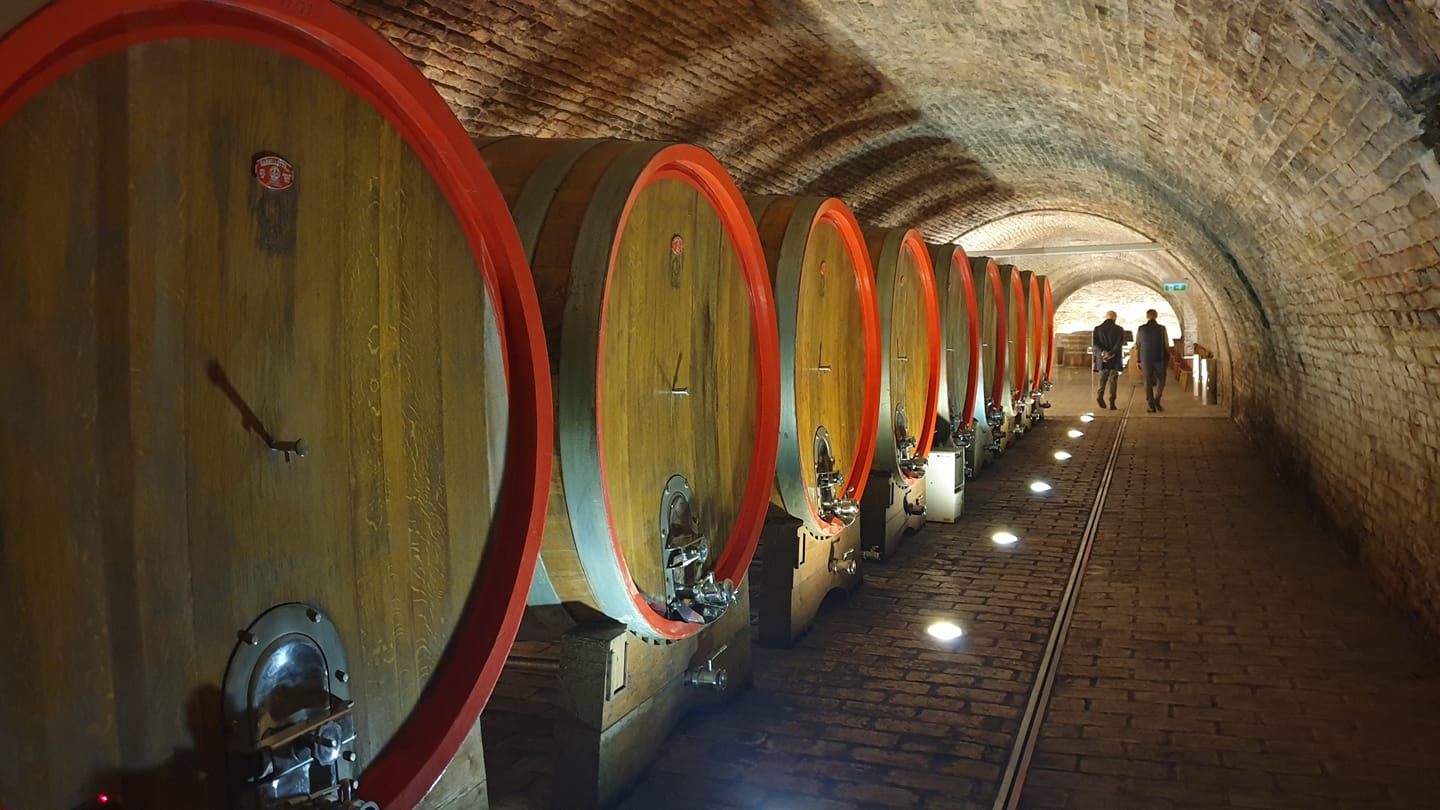
Day 5 was significant as it was the first day of the tour where we somehow managed to avoid alcohol until after midday.
And then... Belje.
The Belje vineyards went on for days, with grapes left on the vines by the viewing point, so that visitors could sample them.
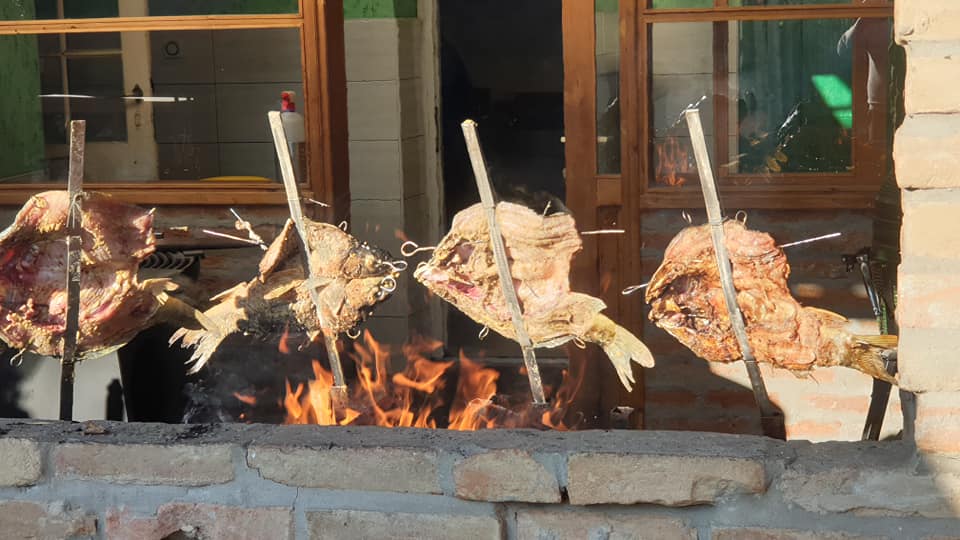
All this wine was making us hungry. Next stop, one of the finest institutions in all Croatia - Baranjska Kuca in Karanac.
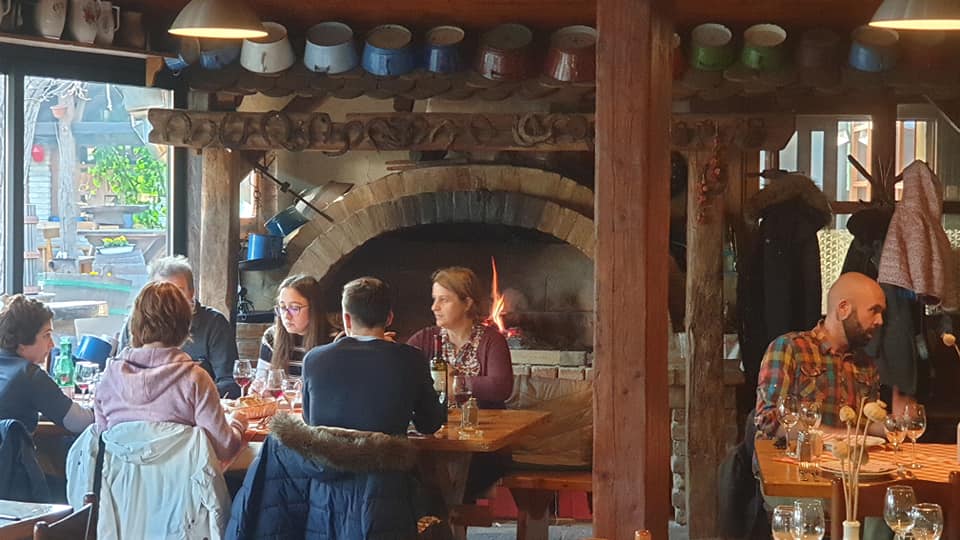
A little slice of Slavonia Full of Life, Baranja style.
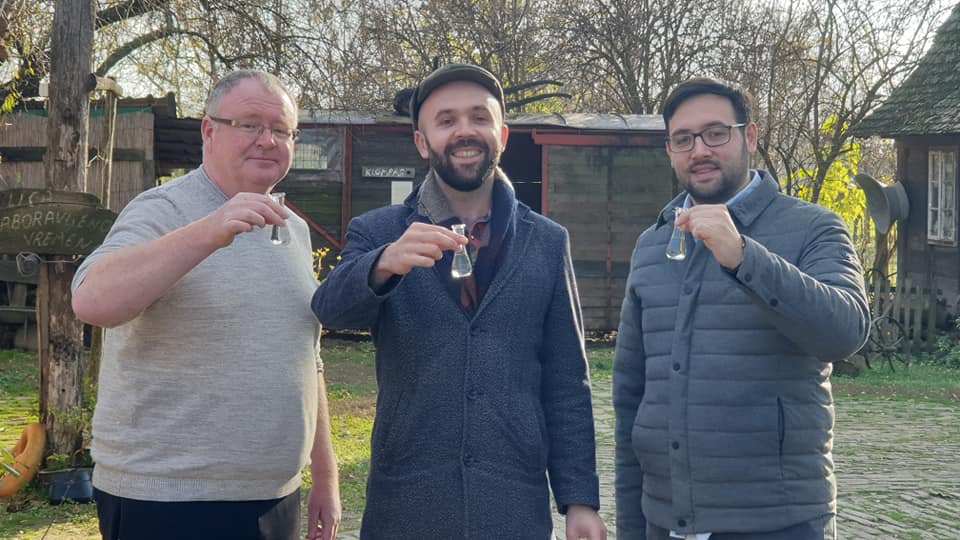
Two of the most dangerous men on the planet, with one of the best tour agencies, Kulen Travel.
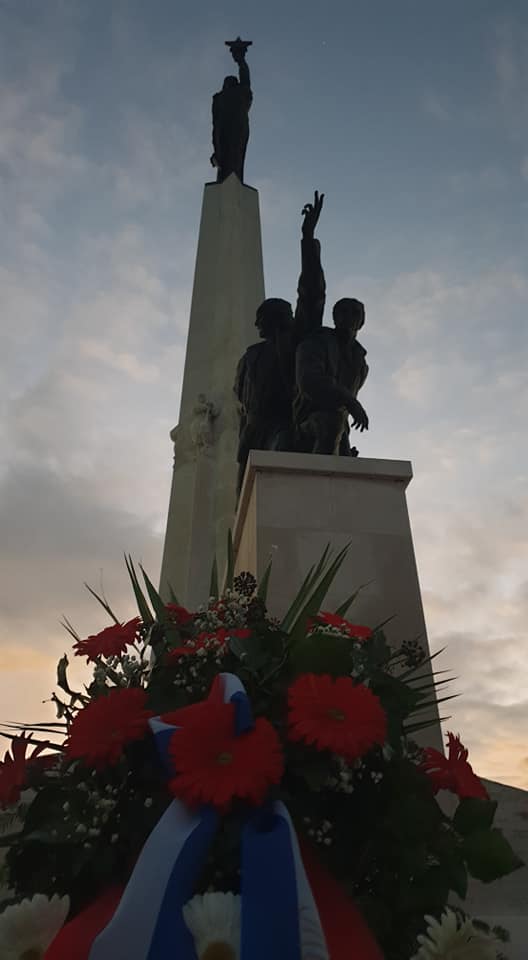
As far as war memorials go, Batina is right up there with the very best, overlooking the Danube, Hungary and Serbia.
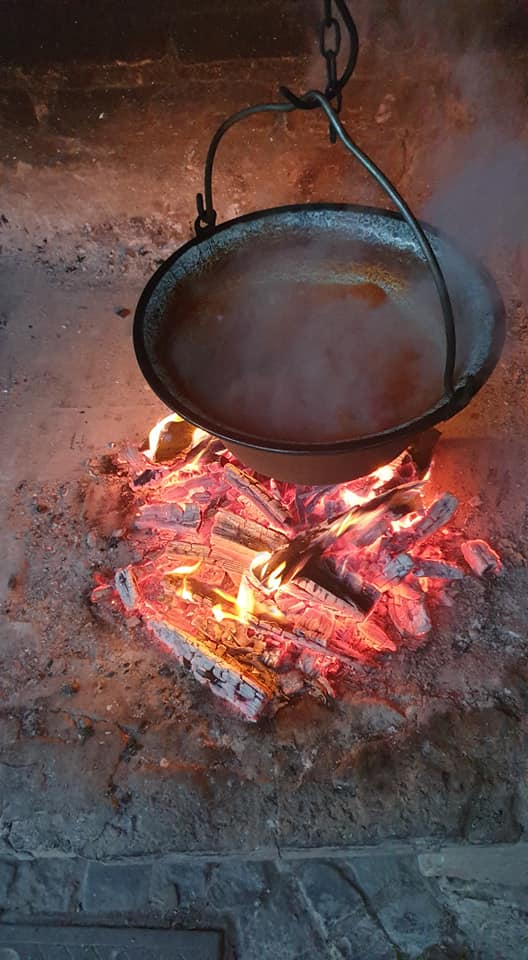
But Baranja was not finished with us yet.
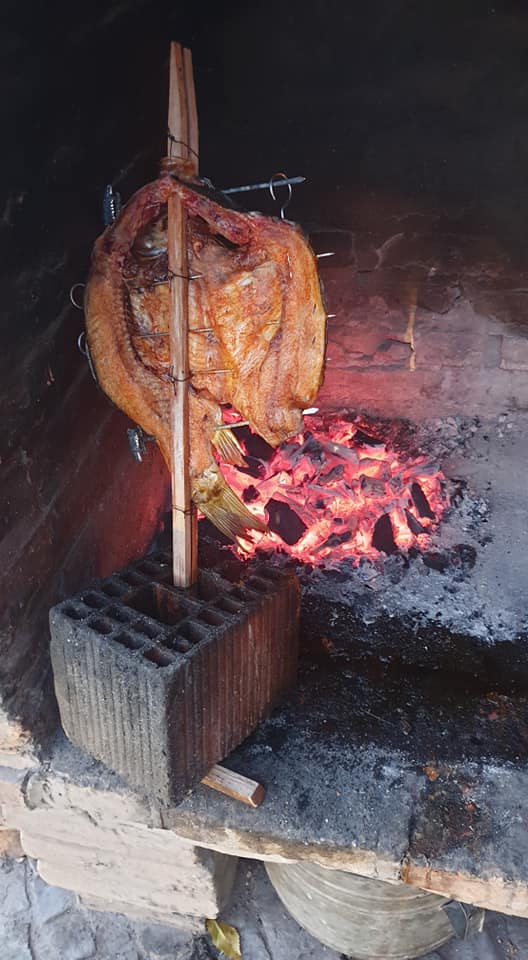
There was one more stop before we could return to Osijek.
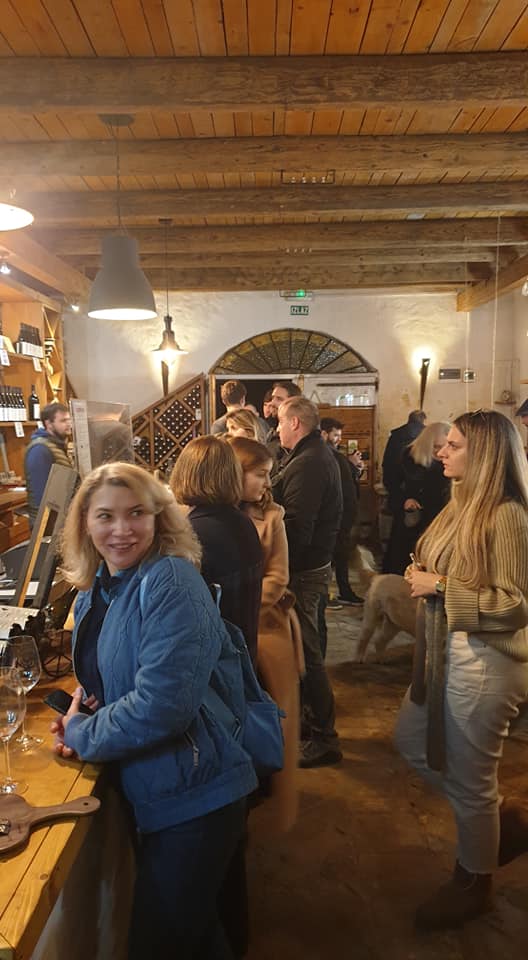
And yes, another example of Slavonia Full of Life, the wonderful Josic wine tasting experience in Zmajevac.
And then the Osijek fun began...
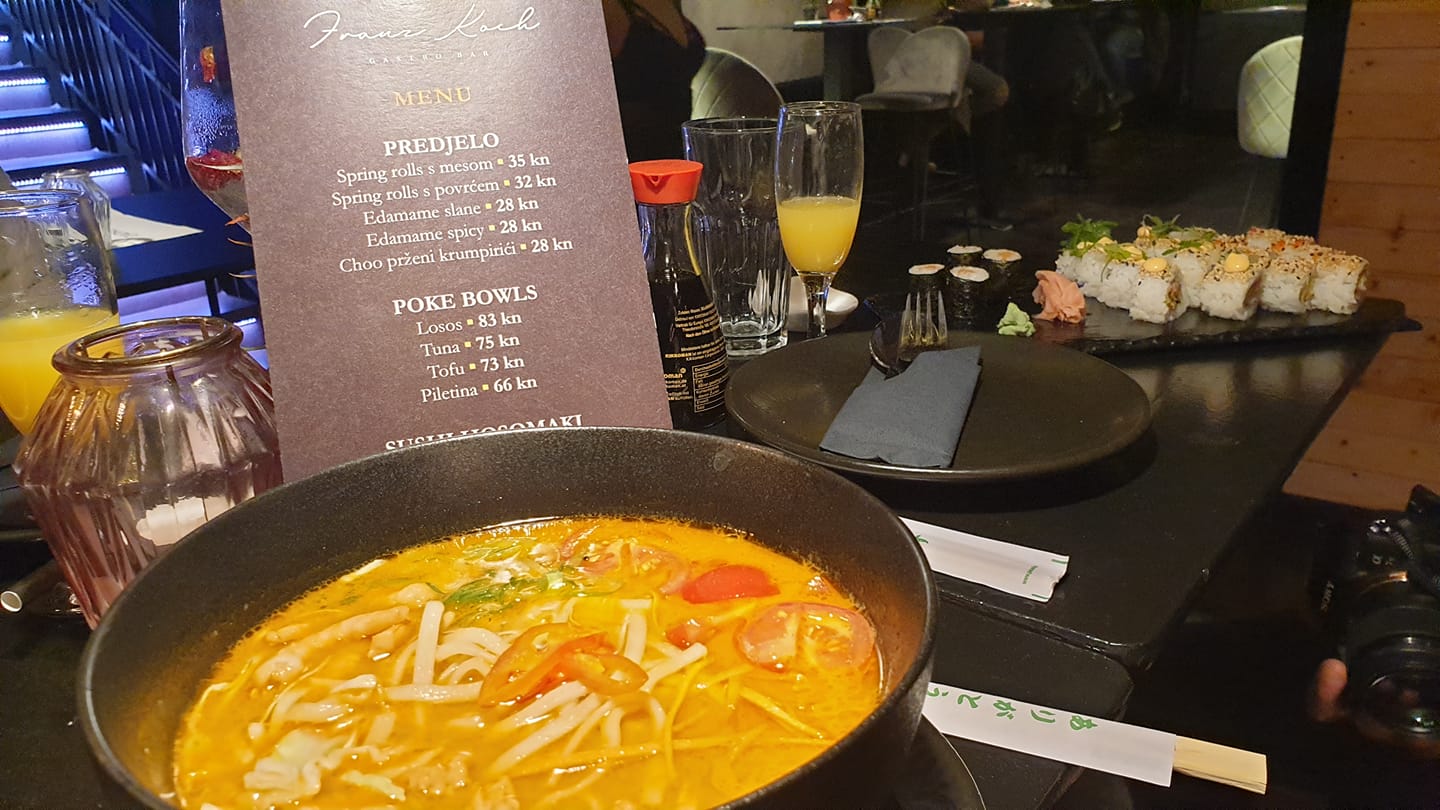
Over breakfast that morning, a British businessman told us about a great new Asian and sushi place that had opened in the old town. We agreed to meet for dinner at Franz Koch, especially as he promised to bring his business partner, the legend that is Srdjan Kovacevic of Orqa.
Together with Steve, they all droned on about drones until I asked how we could put their drone technology and contacts with the best drone pilots in the world to good use to promote tourism in Slavonia.
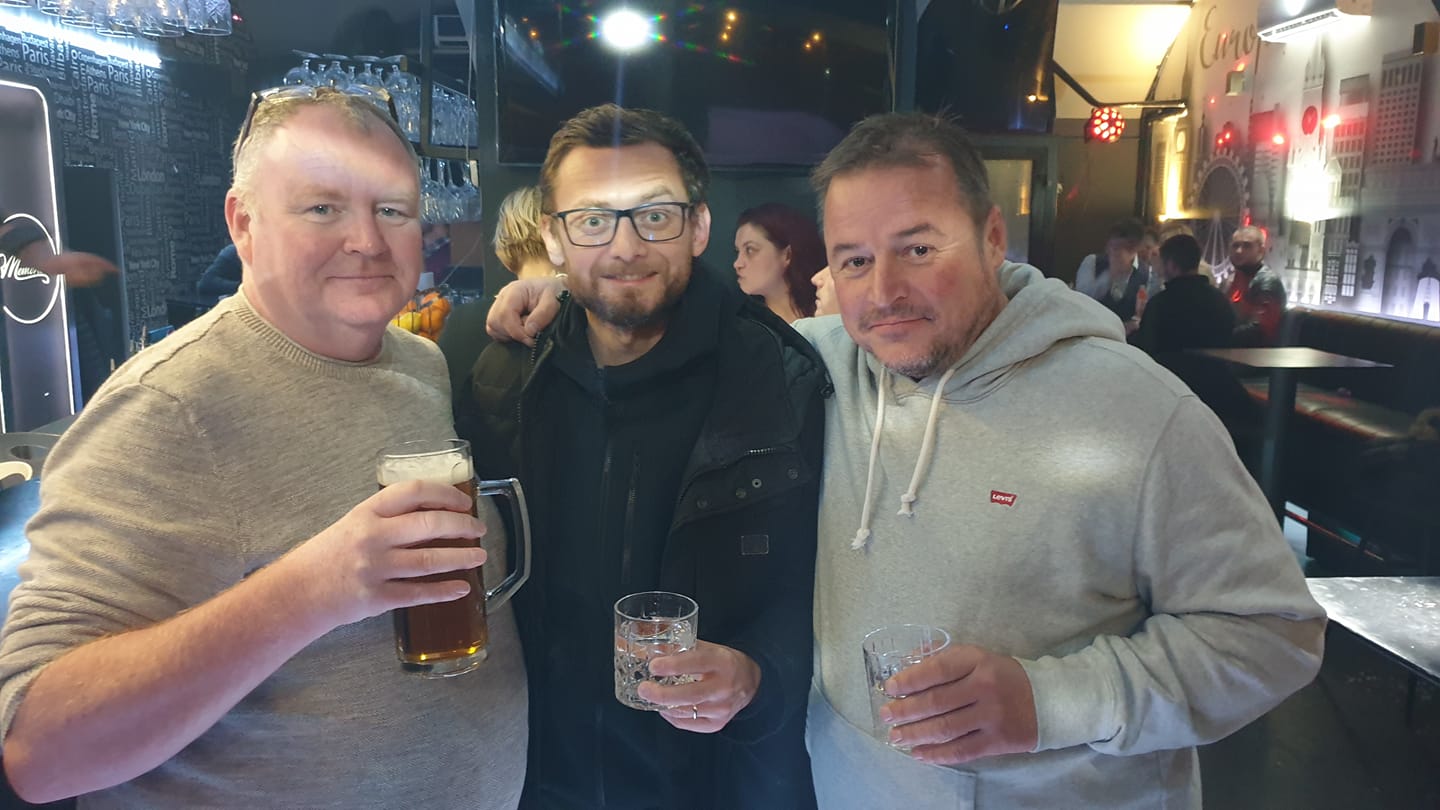
Two gin and tonics later, and the concept of Danube Drone Days, with the world's leading drone pilots coming to Osijek, was born.
Stay tuned.
Slavonia Full of Life, the nighttime edition.
Day 6 - Vukovar and Djakovo
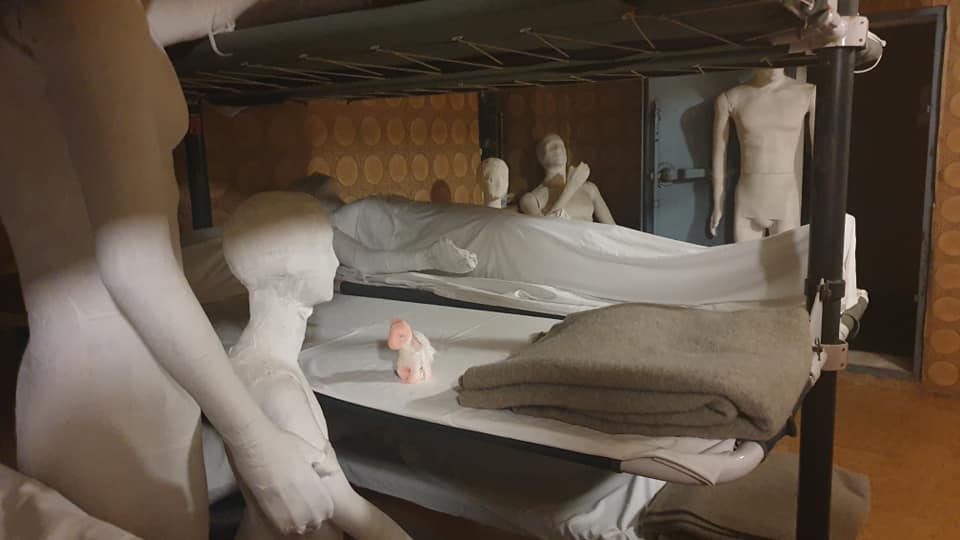
Our final day, and another rollercoaster. We changed the schedule to go back to Vukovar, as we needed to video the hospital museum for our CROMADS project, something that was clearly impossible on November 18, due to all the dignitaries from Zagreb.
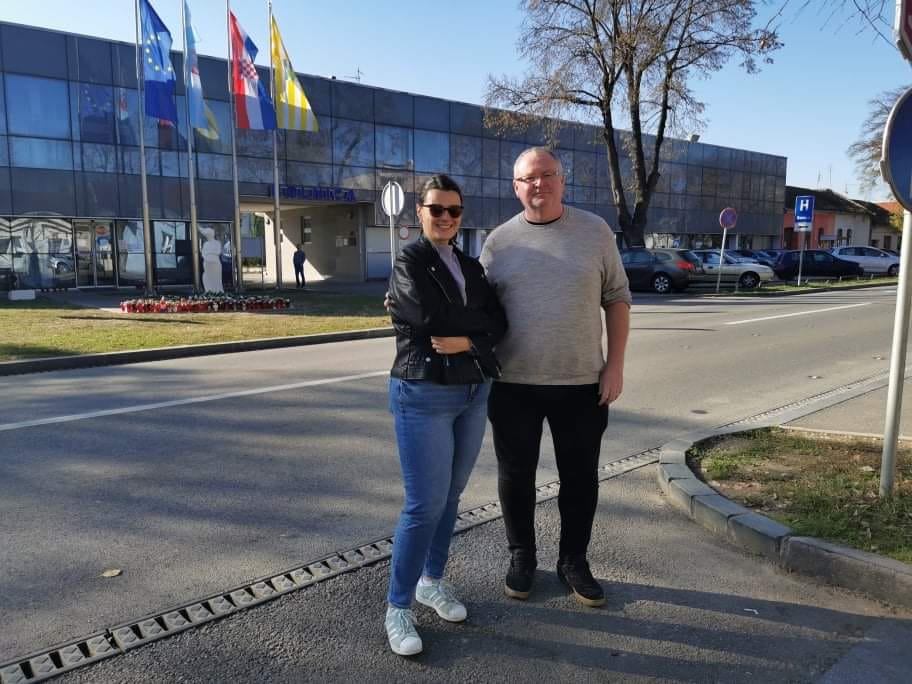
The other reason to return to Vukovar was to offer this young lady a part-time job with CROMADS. Katarina was our excellent guide, and she will be helping us build the eco-system of excellence in eastern Croatia. Her first task as TCN was an interview - The Realities of Life as a Vukovar Tour Guide.
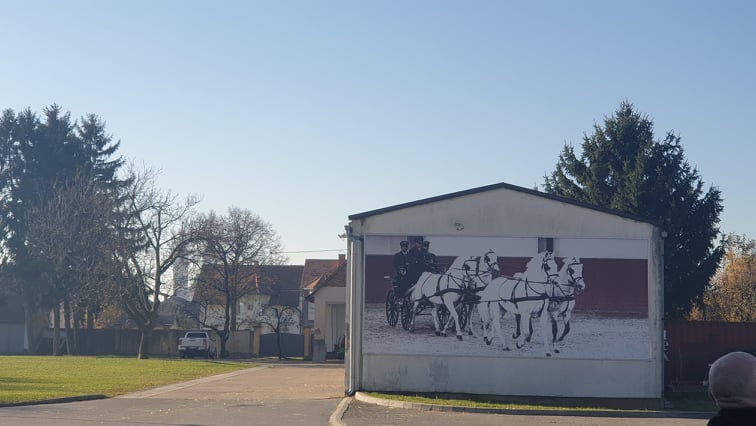
There was just one stop between us and Zagreb, and it was another mind-blower - Djakovo. When Queen Elizabeth II visited the Lipizzaner Stud Farm back in 1972, Tito apparently built an asphalt road, so the locals were very happy. No such luck with my visit, but we had a ton of fun.
Djakovo Cathedral by Steve Tsntserensky, with a little help from a drone.
One of the dangerous chaps from Kulen Travel stood between us and freedom.
"We just have one more surprise for you," said Domagoj over lunch.
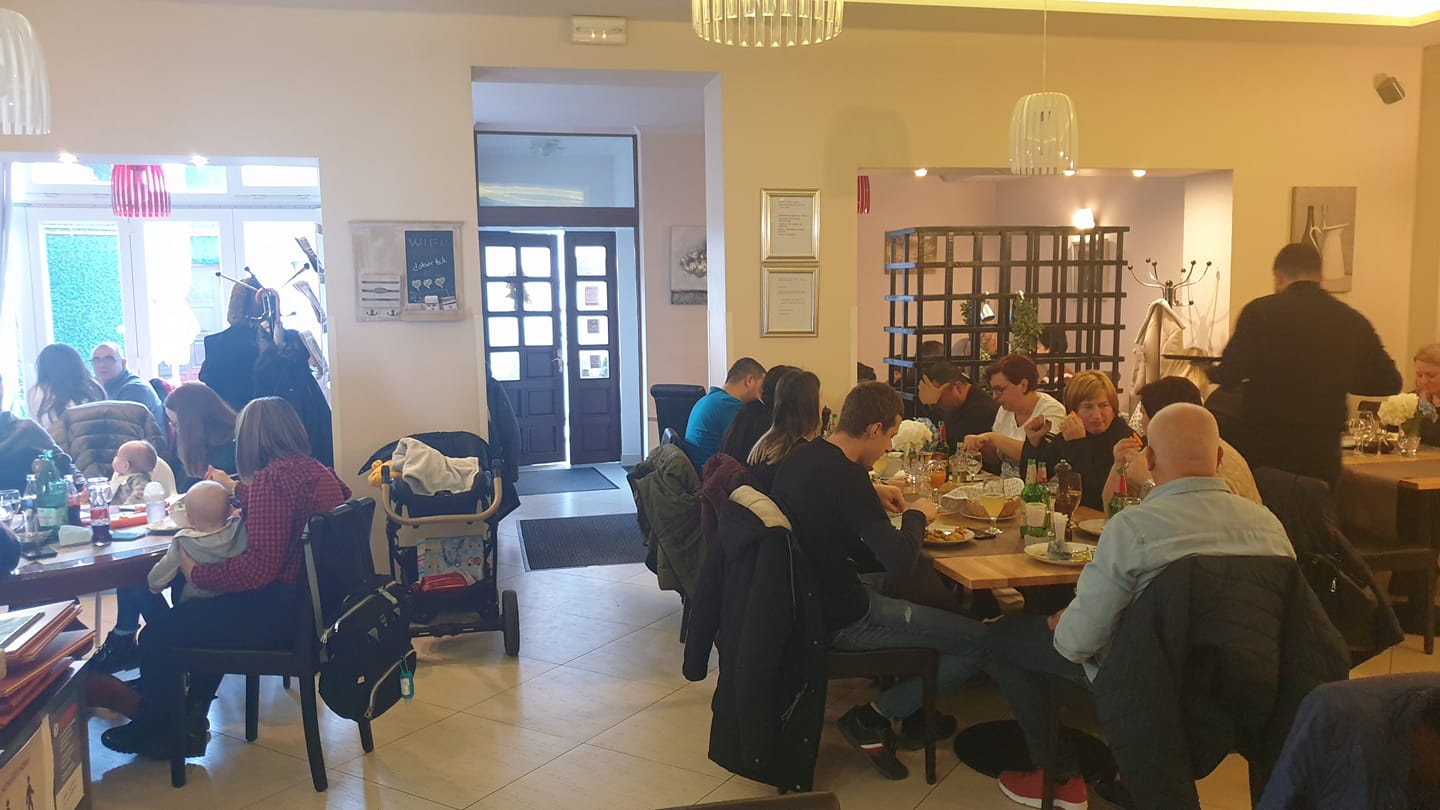
Ah, yes, an excellent lunch at Bistro Loora, which was packed, with not a seat available.
And the surprise?
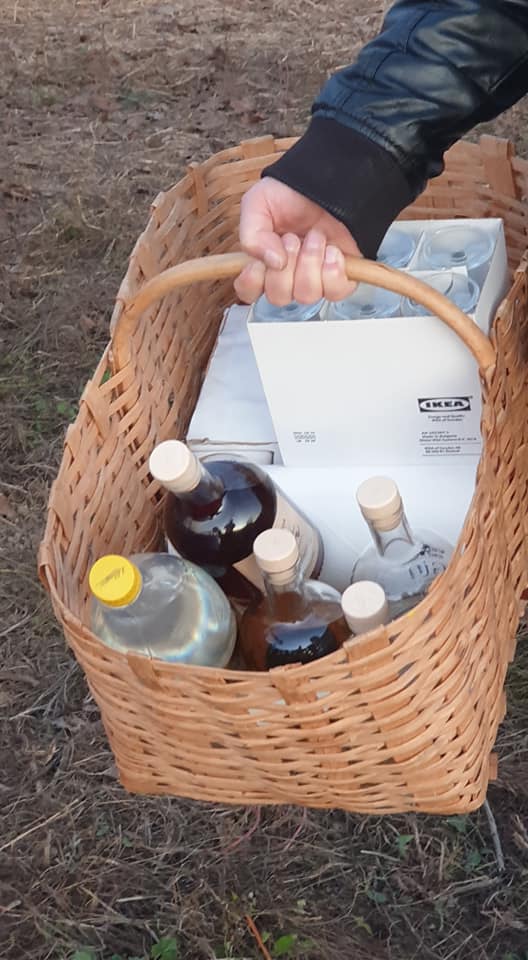
What else but a Slavonian picnic?
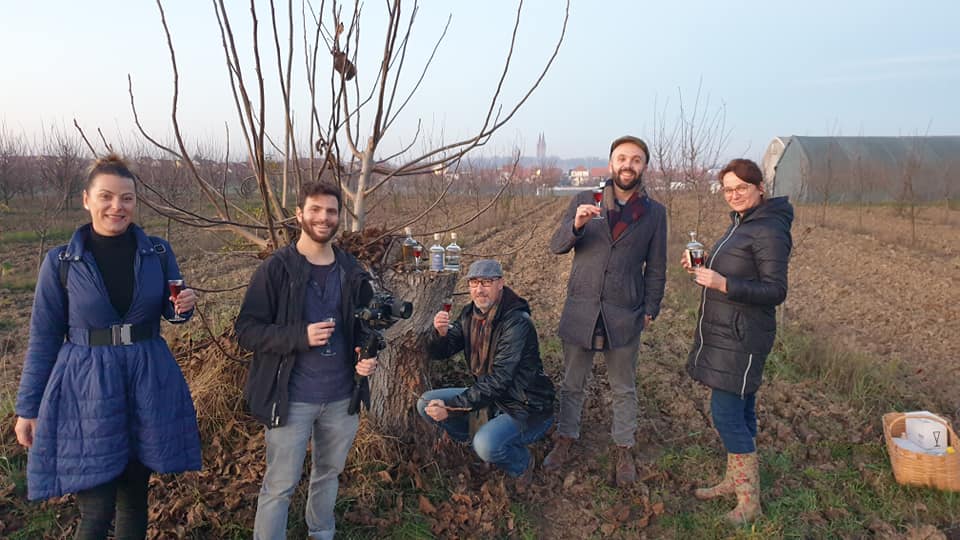
And some quite extraordinary craft gin in an orchard with a magnificent cathedral view.
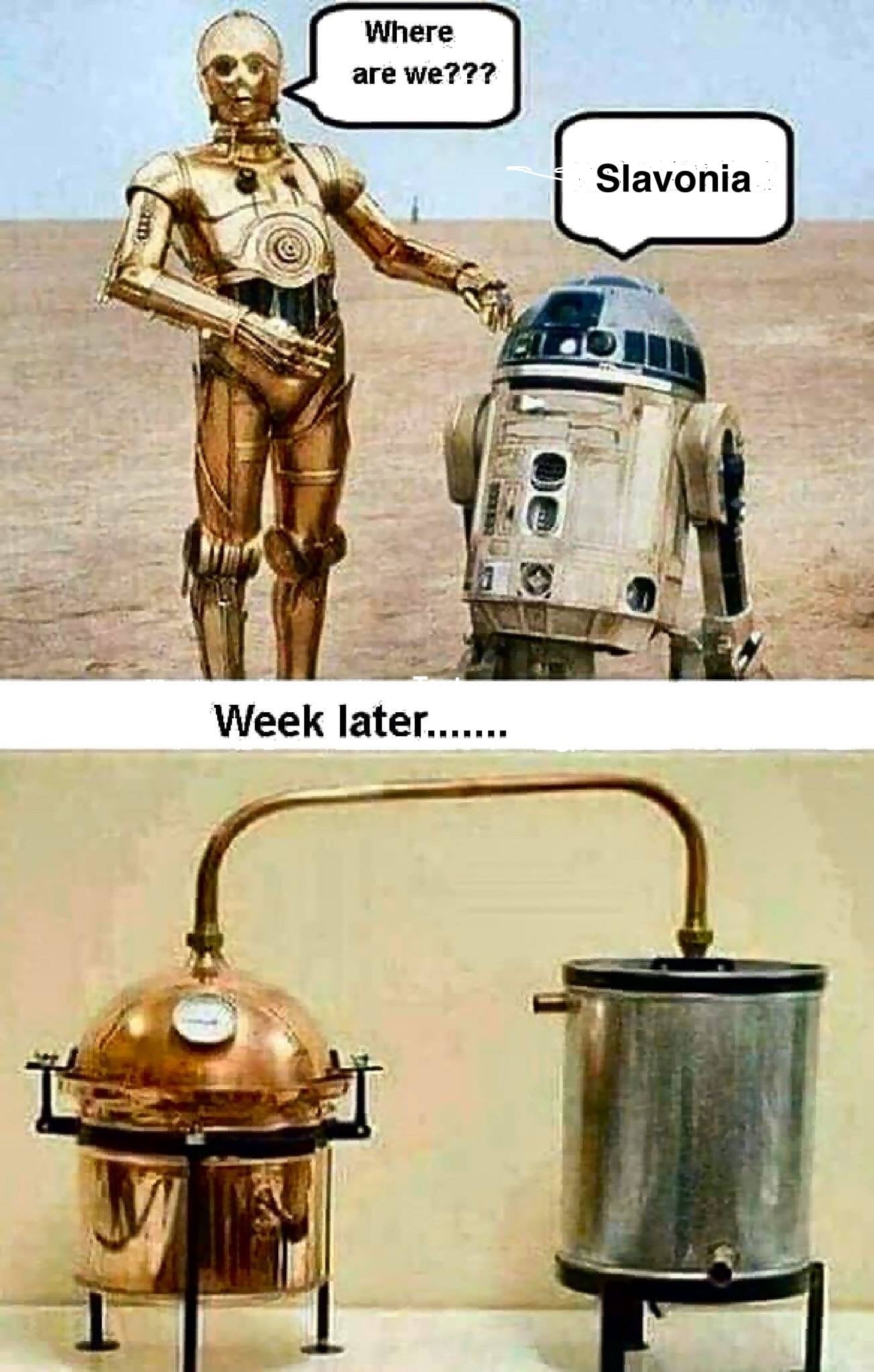
Steve and I compared before and after photographs.
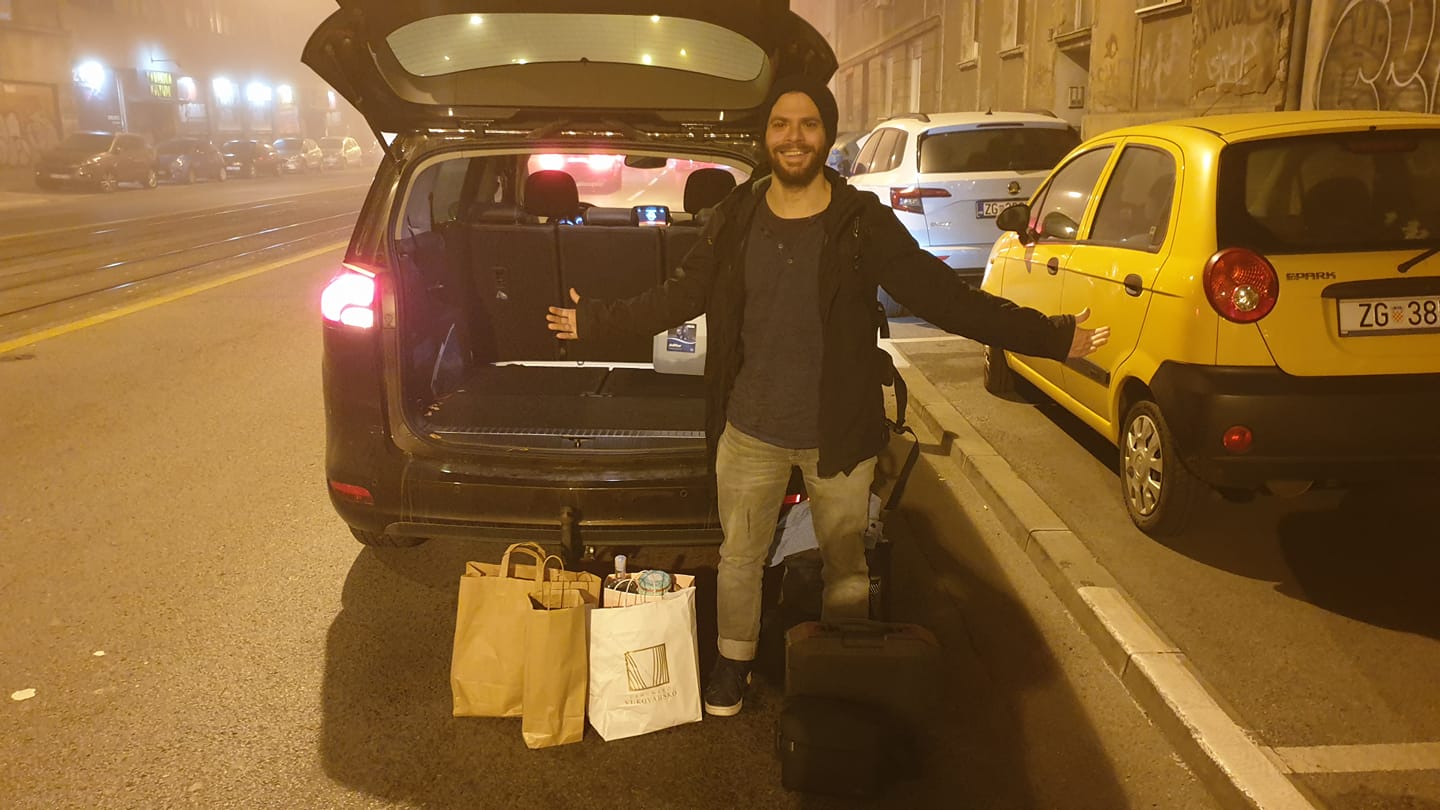
And as I dropped Steve back to where it all began in central Zagreb, I could not help wonder why we don't hear about any of this.
Slavonia was beyond magnificent. Osijek was MUCH more alive than Split or any other city on the Adriatic coast in November.
This region is FABULOUS and much closer to Zagreb than Dalmatia, and yet very few people I know have actually visited.

It is time to change that and to Make Osijek Great Again.
I genuinely think we will not have to try too hard.
So happy birthday Osijek, and may you celebrate your day in style.
My birthday wish for you is that Zagreb lets you breathe, celebrates your magnificence, and starts to put meaningful investment your way to accelerate the process of growth.
My heartfelt thanks to the many of you who contributed what was arguably one of the best weeks of my 18 years in Croatia.
In Slavonia.
In November.
I tried to put my finger on what it was that that made the Slavonian experience so exceptional, apart from the people, and I think it is this:
Nobody who makes the effort to visit Slavonia ever comes home disappointed.
Is It Really True That All Foreigners Living in Croatia are Really Rich?
December 1, 2021 - An article I have wanted to write for a very long time and the perceptions about - and realities of - the wealth of foreigners living in Croatia.
Shortly after I returned from our epic trip to eastern Croatia last month, I posted this on Facebook:
I am genuinely and honestly shocked at how many of my Croatian friends tell me that they have never been to Slavonia. Guys, you are missing out big time. Osijek is the most fun place to be at this time of year.
It didn't take long for the predictable reaction to take over.
It's hard to travel as a local when avg salaries are 4-6000 kunas a month ( $600-1000)
I agree. It is also hard to travel as a foreigner when salaries are 4-6000 kuna a month.
But of course, all foreigners who live in Croatia are millionaires, and all locals earn almost nothing, isn't that the truth?
I decided to rephrase my Facebook post:
Ok, then let's reframe my sentence to suit this narrative. I am genuinely and honestly shocked at how many of my Croatian friends among the 200,000 Croats who go skiing abroad each year tell me that they have never been to Slavonia. Guys, you are missing out big time. Osijek is the most fun place to be at this time of year. How does that sound?
The conversation ended.
And just as there are plenty of rich Croats living in Croatia, so too there are a good number of foreigners living here who struggle to make ends meet each month.
In fact, I would go as far as to say that I probably know more foreigners here who live on or around a Croatian wage than rich expats.
I used to show my bank manager some of the things published on social media by people who had never met me but clearly had an opinion about me. As we finalised the details of a temporary overdraft one time, we laughed at the online claim on some expat forum that I was a millionaire who had retired early and was doing TCN as a hobby.
Life in Croatia is fantastic if you have money, and it is fantastic as a tourist.
Life in Croatia on a Croatian salary is tough.
But for foreigners too.
When I started the Total Project back in October 2011, I had 100 euro in my bank account, as well as two young kids to feed. I have never worked harder or longer hours (or had so much fun with work) as the last ten years. And while life is certainly a little more comfortable now than it was a decade ago, that comfort was generated by a start of 100 euro plus 10 years of hard work.
Unlike the 200,000 Croats who go skiing each year, I could not afford to do that every year, and neither could most of the foreigners living here that I know.
Despite this, my answer to the question Is It Really True That All Foreigners Living in Croatia are Really Rich? would be an emphatic Yes.
For they have discovered paradise and appreciate what they have.
There is a lot more to being rich than having money in the bank.
All the money in the world cannot buy you the safety and lifestyle and incredible experiences available in Croatia if you do not live in Croatia.
And if you have a mindset shift, as many of the foreigners who live here have, the daily struggle to make ends meet is more than compensated by the safety and lifestyle.
I was a lot richer before I came to Croatia, and I also earned a lot more money as a 25-year-old than I do now as a 52-year-old. Do I yearn for that salary and way of life of 27 years ago? Never.
A few years ago, a school friend I had not seen for 25 years came to visit me on Hvar on a family sailing holiday. It was great to catch up, and we traded stories about life and where we had got to in life. He was a hugely successful chartered accountant, a partner in one of the biggest firms. He lived in a large house an hour from London by train, earned a very nice sum. Far, far more than me.
But he also left the house at 6am Monday to Friday, returning home at 9pm, when the kids were already in bed. The babysitter at the weekend cost over £100, and the restaurants and bars with his wife were not cheap. But it was a good life, he reflected.
"And of course, I can take the family on a holiday to Hvar each year," he added.
Yes, he could I reflected, after he sailed back to Split to catch the flight home, and I to my beloved bench in Jelsa to watch the changing colours on the beautiful Biokovo mountain through the Jelsa palm trees across the Adriatic, an experience I could have for free, 365 days of the year.
It is true what they say - all foreigners living in Croatia are really rich.
It is all in the mindset.
City Breaks, Nomads, Medical Tourism: a New Era for Zagreb Tourism
July 30, 2021 - The announcement of 25 new routes from the Croatian capital by Ryanair is the latest step in the evolving nature of Zagreb tourism, which has a very bright future.
When I first moved to Croatia back in 2003, my budget travel options from the UK were extremely limited. There was the unenviable choice of London to Trieste, bus transfer to Rijeka, then 11 hours on a bus to Split and the ferry to Hvar. Much preferred was Ryanair to Graz, then 4 hour train to Zagreb and onward bus to Split.
I got to know Graz a little during that time, as I would sometimes stop for a night or two to explore that very pretty Austrian city, but Zagreb always left me a little cold. There never seemed to be much going on, and I remember that the only international cuisine available back then was an average Indian and an ever more average Chinese. For me, Zagreb was always just a transit point, and not somewhere to spend time.
My opinions of Zagreb have changed 100% over the years, but then so too has Zagreb, which was named by Lonely Planet at the best destination in 2017, something unthinkable 15 years previously. Indeed, one German newspaper even labelled it the most boring captial in the EU back in 2014.
I have spent a lot of time in the Croatian capital, having moved from Jelsa to Varazdin 5 years ago, and it has been a pleasure watching the transformation of the city into one of Croatia's tourism jewels with outstanding potential to develop further.
Zagreb was not really known for tourism until relatively recently, but it has made enormous progress in recent years to become one of the leading destinations in terms of visitors and overnight stays. As the Croatian tourism gurus were trying to figure out how to extend the season, the rise of Advent in Zagreb was meteoric. From a standing start of just a few stands on the main square, within a few years Advent in Zagreb has been voted the Best Christmas Market in Europe, with hundreds of thousands of visitors at a time of year when things were pretty dead in Croatia. The success of Advent in Zagreb inspired other cities to follow suit all over the country, and Advent is now an established part of the tourist calendar in Croatia.
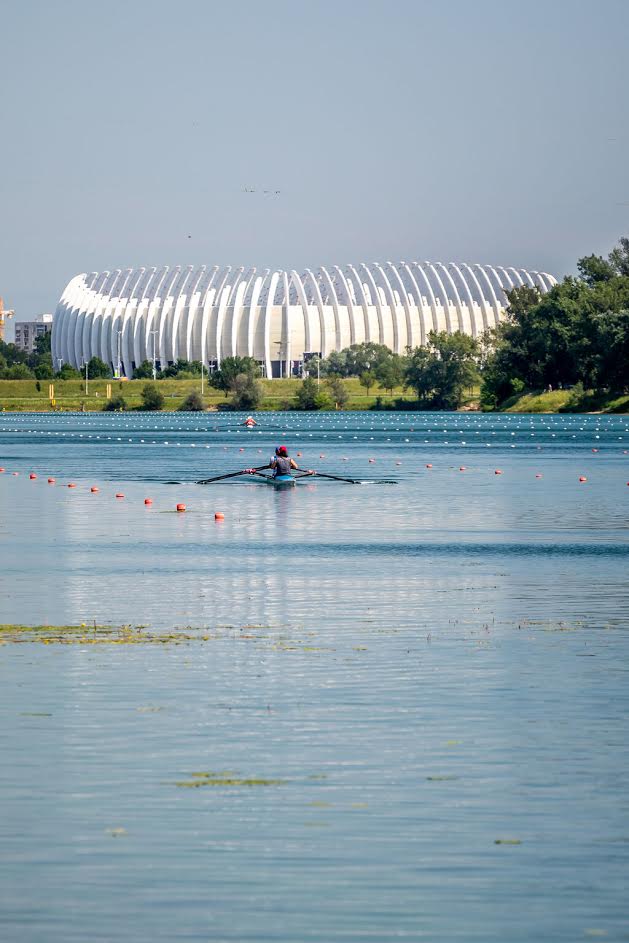
(Photo credit J.Duval)
But the arrival of Ryanair to Zagreb, the first low-cost carrier to offer a signifcant presence in the capital, brings with it untold possibilities to develop Zagreb tourism, and in ways that meet the needs of the modern traveller, not just those heading for the typical beach holiday on the coast. And with Ryanair CEO Eddie Wilson claiming that the Irish airline will bring no less than 700,000 passengers by the end of the financial year, the tourism boast both for Zagreb and Croatia should be significant.
Unlike most visitors to Croatia from European cities, I have long forgotten the luxury of choice with low-cost airlines, especially out of season. Looking at the new schedule, with December flights at bargain fares to destinations such as Cyprus, Thessaloniki, Malaga, Rome, Malta, Milan, Scandinavia, and even my native Manchester, it brought home to me just how significant the arrival of Ryanair will prove for Zagreb. Not only will other destinations be a lot more accessible for those living in Croatia, but now Zagreb will be open to so many more passengers at affordable prices from a number of destinations previously inaccessible. And with Ryanair planning to increase the number of routes to more than 40 by next summer, as well as potentially entering the domestic market, there will be choice as never before.
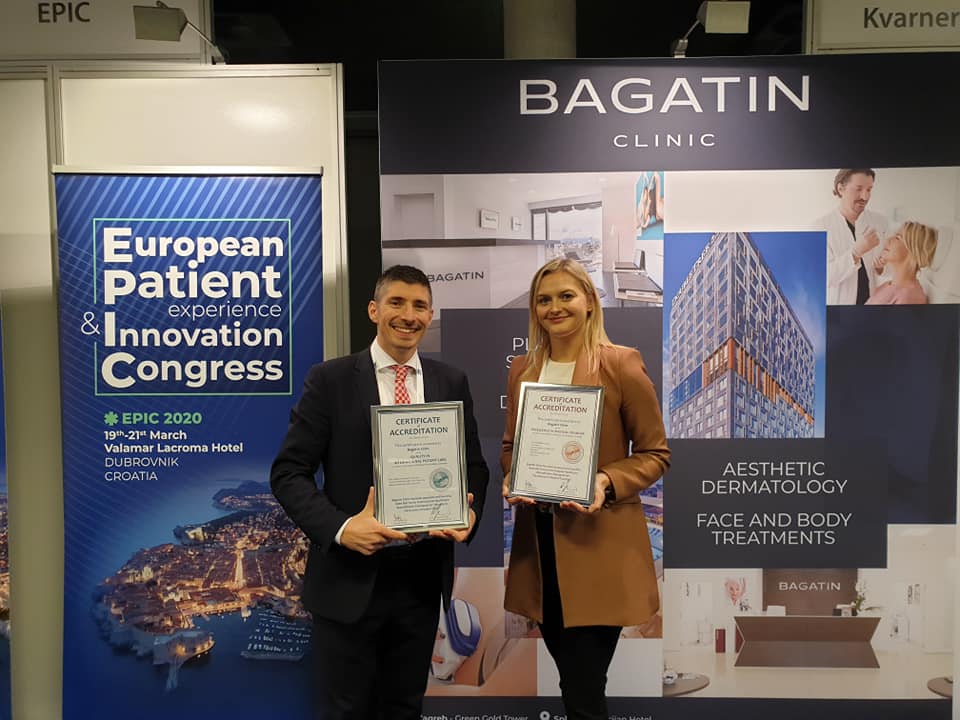
(Bagatin Clinic was voted the best international cosmetic surgery clinic of the year at the International Medical Travel Journal Awards in Berlin in December 2019)
This new accessibility offers great opportunities for Zagreb in various tourism sectors. Croatia has always had an outstanding medical tourism offer, for example, as good as - if not better - than elsewhere in the region, but the inaccessibility of affordable flights to Zagreb has been arguably the major hindrance to developing the sector. In stark contrast, medical tourism in neighbouring Budapest has exploded, with its dental industry bringing in an impressive US$600 million annually. Choice of low-cost flights form the UK is a major factor in that success, but industry experts predict that Croatia could take 25% of that market if it could become competitive with flights.
Budapest is also worth examining for future Zagreb tourism trends with the budget airline factor. A couple of years ago, I had a very interesting interview with Jost Lammers, CEO of Budapest Airport, on the rise of Budapest Airport after the collapse of state airline, Malev. You can read it here.
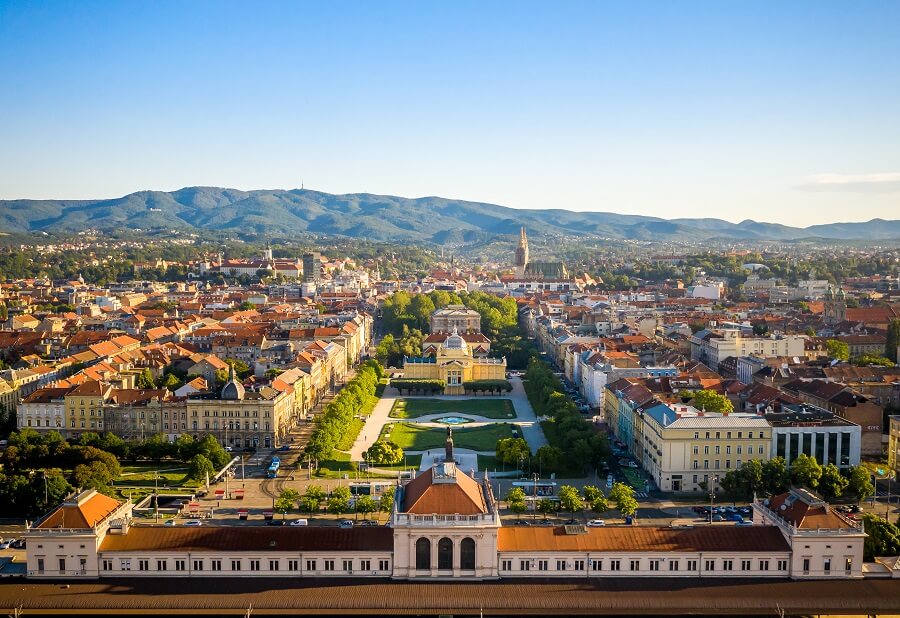
(Photo credit J. Duval)
Zagreb is an ideal city break destination, with an enviable offer of parks, culture, musuems, gourmet, events and one of the most chilled lifestyles in Europe. The Around Zagreb concept, connecting the city with the nature, traditions, wine roads and adventure tourism of the surrounding region, offer plenty of choice all year. The missing link - affordable accessibility from multiple destinations - is now in place. Where once Zagreb was a stepping stone to the coast, now it looks increasingly set to become a 2-3 city break destination in its own right.
And let's not forget this new breed of tourist which has the ability to significantly impact both the tourism numbers and the mindset - digital nomads. Events such as the recent Zagreb Digital Nomad Week have shown the level of interest in Zagreb, but also how much the city has been a pleasant surprise. Great Internet, English-widely spoken, laid-back lifestyle, great gourmet, cultural and adventure tourism scenes, and spectacular nature, even with the city limits. As Dean Kuchel of Digital Nomad World, put it when asked what Zagreb was missing for digital nomads, his reply was 'More digital nomads.'
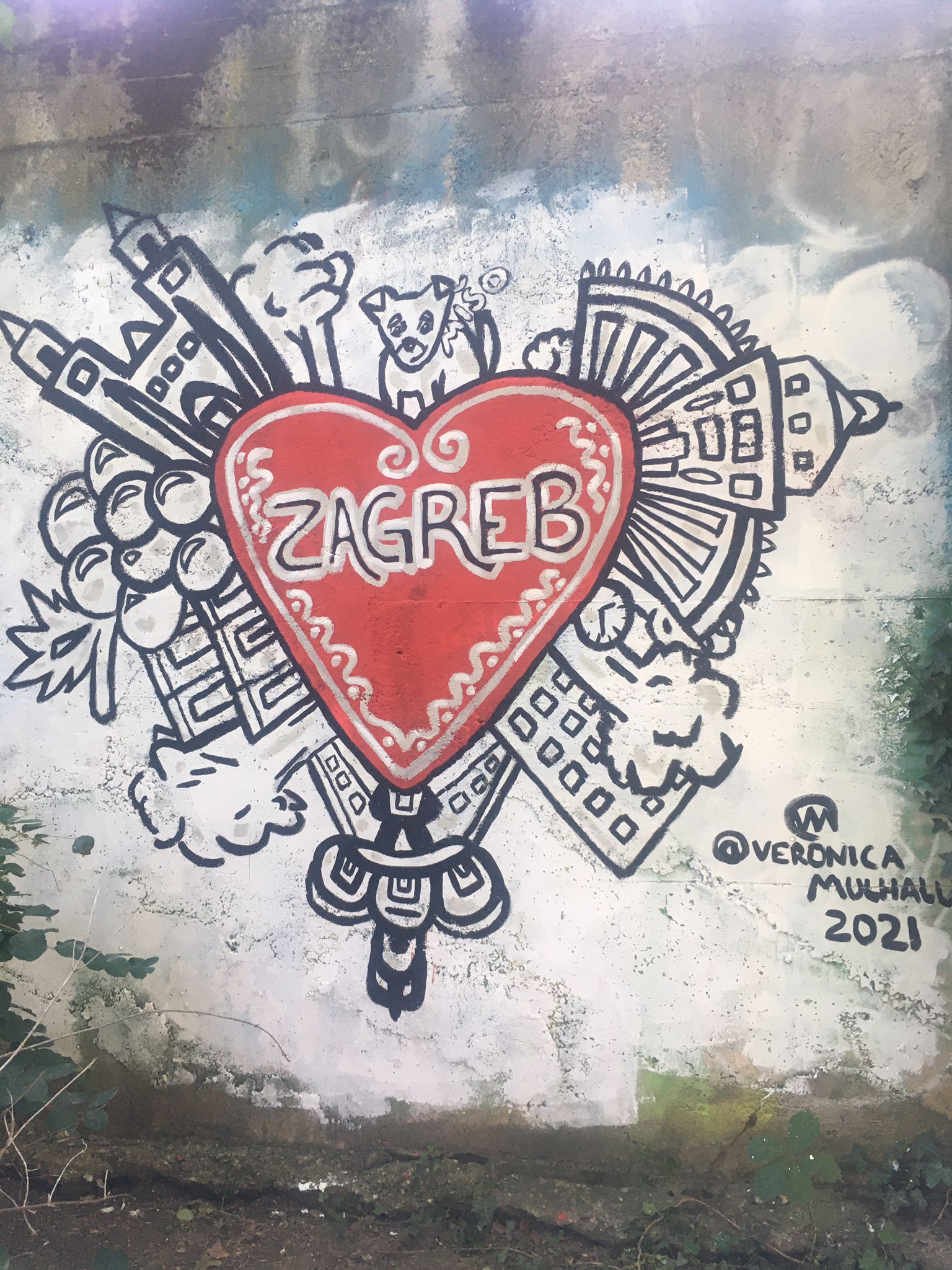
(Zagreb's first digital nomad ambassador, Veronica Mulhall, leaves her impressions of Zagreb on a mural in Art Park Ribnjak)
As the word continues to spread about the cool vibe coming out of Zagreb in 2021, coupled with more budget flight announcements, it is only a matter of time before they come.
Good times are in store for Zagreb tourism. Have you paid a visit recently? Learn more about the city in the Total Croatia Zagreb in a Page guide.
Would Nikola Tesla Have Preferred to be on a Croatian or Serbian Coin?
July 26, 2021 - A global citizen equally proud of his Serb origin and Croat homeland, what would Nikola Tesla have made of the latest Balkan political row over his identity?
It is almost 80 years since the genius that was Nikola Tesla died alone in a New York hotel room, the end of an extraordinary life of invention and creativity that changed the world for the better.
He certainly deserves to be remembered and celebrated for all he contributed, but the latest proposed recognition of his genius has once more ignited a Balkan political row and fired up the Internet's army of Balkan keyboard warriors.
It wasn't long after starting Total Croatia News 6 years ago that I learned that the two most clickbait evergreen topics which would attract tons of aggressive comments were the origins of Nikola Tesla and anything that mentioned the word Tito. As such, I have learned to avoid referring to either for the most part, but the latest row regarding Tesla's origins has included statements from the Croatian President, as well as both Croatian and Serbian Prime Ministers.
Someone once told me that the quickest way to start a lively negative debate on Facebook in this region is to invite thoughts on whether Tesla was a Serb or a Croat. It is a question that the Serb authorities take very seriously, as appears to be the case once again after Nikola Tesla was voted to appear as a symbol of Croatia on three coins when Croatia eventually joins the EU.
Before we dive into the quagmire, it is worth recalling Tesla's own words on the subject, back in 1936:
"I am equally proud of my Serb origin and my Croat homeland. Long live all Yugoslavs."
A nice, balanced statement paying tribute to the two nationalities with which he clearly associated, even though he went on to be an American citizen. Nobody disputes that he was ethnically Serb, or that he was born and grew up in Smiljan, a small village in what is today modern Croatia.
But then things get interesting. Serbia claims Tesla as their own - and ONLY theirs - there is no question that Tesla is anything but a Serb, despite the great man professing equal pride at his Croat homeland. Serbia has certainly done a great job at getting the message out there, even naming its main international airport after him. But the proud Serbs who claim him as their own fail to mention a couple of relevant facts. Tesla never had Serbian citizenship, and he only actually spent 31 hours in Serbia in his entire life, a solitary visit in 1892. If you travel to Serbia to search for places that Tesla spent time or created things, then you are going to be disappointed, as there is nothing to see, apart from his ashes which were transferred to Belgrade in 1952. Hardly surprising, given that he only spent 31 hours of his life in Serbia.
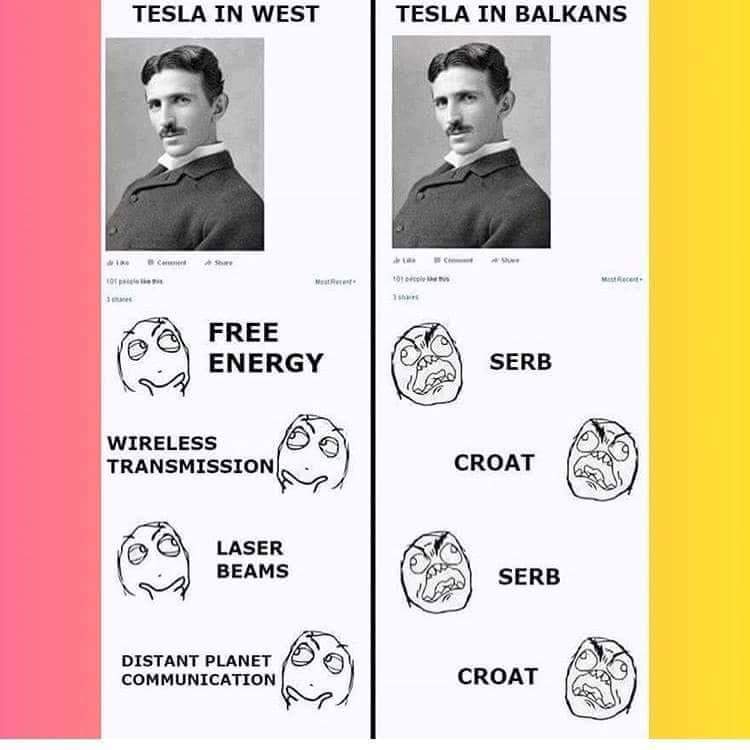
The claim that he was born in Croatia should also be clarified, as Croatia was not an independent country at the time of his birth, rather part of the Austro-Hungarian Empire. Smiljan was in the zone of the Military Frontier at the time, and his citizenship was Austrian, before he bcame an American later in life. Having said that, the quote above shows that Tesla identified with both his Serb ethnicity and Croatian homeland.
There is, of course, a certain irony - given the nationalist passions in some quarters of this region - of Serbia objecting to the celebration of a Serb on a Croatian coin, but that is perhaps another discussion.
What can also not be disputed is that Smiljan today is firmly within the boundaries of modern Croatia. And for those looking for evidence of Tesla's formative years, there is plenty to explore, from the visitor centre at Smiljan, his school in Karlovac, the surrounding nature which inspired him, and the city of Sibenik, which was the first city in the world to have street lights powered by alternating current. It is probably worth mentioning that had Tesla's education and life experience continued in this region, he would probably not have fulfilled his potential, as it was only once he got to the States and was exposed to bigger things that he flourished.
As I wrote a couple of years ago in It is Time for Croatia to Claim its Nikola Tesla Heritage, Croatia has thus far done a terrible job marketing its Tesla heritage, and it is one of the several gifts that it possesses which are totally underutilised. The birthplace of Tesla should be a global attraction, and one which is there to inspire the minds of the next generation. It could - and should - be developed for that purpose, rather than the very poor effort that we have at the moment at Smiljan - there was not even a cafe the last time I visited. Combining the Tesla story with the huge success of Croatia's 21st-century innovator, Mate Rimac, is a compelling story which will bring more interest not just to Croatia, but to the wider region.
Would Tesla have preferred to be represented on a Croatian or Serbian coin 80 years after his death? He would probably not have had to choose, as Serbia will also get to choose its motifs for the coins if and when it adopts the euro. And wouldn't it be nice for him to be commemorated by both, given that he was equally proud of his association to both?
Just as Nikola Tesla was equally proud of his Serb origins and his Croat homeland, wouldn't it be nice if his Serb origins and Croat homeland could agree to celebrate the genius of a man who gave the world so much, rather than try and score cheap political points?
Paul Bradbury in Lider: Egypt, USA Already Requesting Total Croatia Replica Sites
May 25, 2021 - TCN CEO Paul Bradbury was interviewed by Lider Media last week. The full interview went online yesterday - an English verstion of the original interview.
In the highest peak of pandemic you launched a new project - Total Croatia portal, which represents tips&tricks welcome door to Croatia. Although it mainly refers to tourism offer, there are some information for people who want to live, work, study here. And it is not only ‘milk and honey’ (you mention corruption index and system flaws). Have you faced some disagreement with your objectiveness?
The new Total Croatia national tourism portal (www.total-croatia.com) is the culmination of 10 years of my experience writing about tourism in your country. I have tried many things in my time here, but what I feel is really lacking is a quality website written objectively based on personal experience of someone who has lived and travelled extensively in Croatia for 18 years.
The article about my experiences of living in Croatia (Croatian version here) is absolutely an extension of promoting tourism in this country. The future of work is changing, and there are MANY people who are considering Croatia as a new remote home, due to its safety, authentic experiences and lifestyle. What is missing – at least in my opinion – is detailed information and experiences about what living here is really like for a foreigner. Saying everything is perfect would be irresponsible. Pointing out the good, the bad, and the ugly, with a conclusion that it is a great place to be, despite its flaws, is an honest and positive message. Especially when you serve them the information in their own language.
It has certainly resonated. After our Croatian travel update, it is the most popular article on the Total Croatia website. The Polish version has already been viewed more than 10,000 times, for example. I think there is huge demand for this kind of information. If you give people great info, they will make a decision and come. If you give them nothing, then of course they will not come.
Is this the right time for tourism projects? How did you monetize your online publishing projects, how do you live from it and feed your employees?
It is absolutely the best time for such a tourism project. People are desperate to travel, and the hunger to travel is heightened. Feed them quality information and that interest may not manifest itself in travel next week, but the feeling and interest will remain.
Just look at the US market and Croatia. When we brought ABC News to Dubrovnik last year, which resulted in 6 feature stories including one on Good Morning America watched by 12.5 million people, people were skeptical about promoting international travel to the American market. My eye was always on 2021 and beyond. And look at the flight news recently. After almost no direct flights to Croatia from the USA, now suddenly we have United and Delta from New York to Dubrovnik, as well as Pragusa announcing direct flights from New York and LA.
Promoting tourism does not need to be solely aimed at results tomorrow. Sometimes a longer-term plan can also provide dividends.
And I have to say that I am hugely encouraged by the massive interest from some of the bigger names in the Croatian tourism private sector. We have confirmed destination partners already for many key destinations, such as Hilton for Zagreb, Sun Gardens for Dubrovnik, Falkensteiner Punta Skala for Zadar, and Suncani Hvar for Hvar Town. We will also announce several other big names in the coming days.
This portal is also about promoting authentic tourism and the little guy. If any Croatian tourism business run by your viewers wants to work with us, we will offer a discount off our rates for any interested registered by May 15. If interested, please contact us at This email address is being protected from spambots. You need JavaScript enabled to view it. Subject Lider/Destination/Sector, eg Lider/Trogir/Restaurant
How much did you invest in your business in Croatia and have you brought some start capital from UK?
I started Total Hvar back in 2011 with 100 euro in my bank account. I invested no capital from the UK. My total investment in the new Total Croatia portal has been 5,000 euro.
How big is your global audience on both of your projects? Can you compare it with Croatia Tourist Board reach?
You can check these things online.
Google Analytics tells me that we have up to 620,000 unique visitors a month for TCN, with 78% international traffic. The main sources are USA, UK, Germany, Canada, Australia, Poland, France, Italy, Austria and Norway. The new TC site is obviously must smaller, but in time it will be much more popular than TCN, as it is based on searches for the info that people are seeking. And we are already ranking very well on all keywords. Soon after we moved our Croatian Travel Update from TCN to TC, we were getting 1,200 Google searches a day for that page alone.
Croatians mainly recognize you through your battles with this institution. This battle recently brought your case in Croatian Parliament, where Marijana Puljak demanded that membership in CTB has to be voluntarily. Could you write more about some other par fiscal institutions such as HGK and HOK, so you could help speed up the same process?
I am very grateful to Marijana for raising my case, as well as Vanja Juric for helping with my legal defence against the SLAPP lawsuits from the Croatian National Tourist Board. Both are magnificent humans, and people like them give me hope for a better Croatia.
But, haha, no I don't plan to write that much about other institutions. It seems to be an expensive hobby... And I said all I needed to say about HGK a few years ago in Welcome to Uhljebistan: the Croatian Chamber of Economy, Beyond Useless.
The lawsuits which led to finalising the Total Croatia project actually set me free. My intention is to focus mostly on TC, before taking the concept in other countries. We have already had offers to replicate it in the USA and Egypt. And we only launched a few days ago.
In which phase are currently your court cases with HTZ? Did you have to pay some slander fees already?
There are two court cases. In the first, I am being sued for 50,000 kuna for defamation. My alleged crime was being quoted in an article written by someone else on a portal that is not mine. There was no request to remove the article. Neither the author, nor the portal has been sued. The article is still online.
The first hearing should have been on May 3 at 09:40, but 3 days before, the HTZ law firm asked for it to be delayed, as their lawyer asked for a delay as he had another case at the same time. Even though there are apparently 50 lawyers in the firm, nobody else must have been available. We replied that we wanted to proceed, but the court ruled that the case would be delayed until May 31.
The second case was actually heard first, in early April. Another 50,000 for my satirical use of the HTZ logo, Croatia, Full of Life. The hearing lasted 3 minutes and was adjourned until July because their lawyer filed a last-minute motion which not even my lawyer saw prior to the hearing. Apparently, he had been in hospital for a week, hence the late deposition. All of the other alleged 49 lawyers in the firm must have been busy.
You wrote many articles about tourism system gaps. Could you point out three key weak links and how to strengthen them as soon as possible?
No strategy, poor information, little understanding of modern tourism trends and needs.
All three are easy to fix. Make a strategy, provide quality information, and engage people who understand modern tourism trends and needs.
Do you share the opinion that Croatia needs more big foreign investments and position in luxury tourism?
Croatia has almost no position in the luxury tourism market. Last month, the Croatian media picked up on a story I did on Charlize Theron saying the happiest time of her life was on holiday in Hvar and Dubrovnik.
I know one of the people who worked on her trip. She was looking for a hotel of Aman quality, and ended up going to one apparently. Not in Croatia, as Aman is one of many quality brands that are in places like Montenegro (and check out the number of top hotel names in Rwanda, for example), but not Croatia.
Yes, we do need to massively improve the luxury tourism offer to match the destination. Everyone talks about exclusive Hvar, for example. But it was only two years ago that it got its first 5-star hotel. Now compare how many 5-star hotels there are on Croatian islands versus Greek islands.
Can we take Hvar for example? There is a disorder in the mix of three totally different products – luxury yachting, party life and family tourism. Can those three products live in peace or should it be just one product to promote globally?
Actually, I think things on Hvar are changing finally, and very much for the better. Things are slowly being repivoted in Hvar Town away from the party and towards higher-quality tourism. Suncani Hvar Hotels and the Hvar Tourist Board have never worked better together in the last 10 years, and the merging of the island tourist boards into one marketing entity can only be a good thing.
But also, watch out for Stari Grad, which is quietly emerging as a really top quality and authentic destination. It has a huge future, and it will open up higher-class tourism to central Hvar. I am actually very optimistic about the future of tourism on my adopted island.
You know many foreign entrepreneurs living and investing in Croatia. Do they share your opinion that entrepreneurship is a ‘dirty’ word in Croatia, as you often say?
One of the best things I saw at a presentation was from an Australian-Croatian returnee, who showed the definition of an entrepreneur in Australia and Croatia. There were like chalk and cheese.
To be honest, I love hanging out with entrepreneurs. They tend to be very positive people who are more interested in doing things than complaining. Croatia needs more entrepreneurial mindset to move forward.
You obviously don’t have very nice experience in cooperation with Croatian institutions. How about private sector? How would you compare Croatian with western entrepreneurial mindset? (example)
Actually, I would like to correct you there a little if I may. I have a very poor experience with SOME Croatian institutions, but outstanding experiences with others. The cooperation with MUP last summer with our Total Croatia Travel INFO Viber community (which won the International Grand Prix award for crisis communication from HUOJ) was outstanding. What they did to help the tourism season was unreal. Full respect to MUP and many thanks to Marina Mandic for an outstanding cooperation.
Just because I am critical of HTZ does not mean the same is true of every tourism board, some of whom I work with, some not. I have never worked with TZ Rogoznica, for example, but I think they do an excellent job. Our cooperation with Dubrovnik on the digital nomads projects has been the best I have experienced with any city or tourist board here. And I am very excited by the partnership with Zagreb Tourist Board for Zagreb Digital Nomad Week from June 21-27.
But there are also great tourist boards in smaller destinations. I am really enjoying working with Ludbreg on some innovative projects you will hear about soon, and TZ Stari Grad on Hvar is doing wonders on a small budget.
After so many people offered you donations for court defence, you came up with an idea of crowdfunding campaign for tourism promotion which would be much more effective than present. Do you thing this idea could be feasible in Croatia?
Perhaps, but you don't need money always to promote tourism. You need passion.
ABC News and Good Morning America watched by 12.5 million people, delivered for zero kuna by Kresimir Macan, Nikolina Vicelic and our Viber commmunity.
Jan de Jong and the digital nomad permit. Zero kuna.
Mate Rimac and his fantastic living and working in Croatia video.
Nenad Bakic and his viral Twitter videos. Zero kuna.
And many thousands of others who promote Croatia. What do they all have in common? Passion, and an understanding of the methods required to communicate and share in the 21st century. The Croatian Ministry of Tourism was still advertising its fax machine number as the primary means of communication this time last year until I politely pointed out that we had moved on a generation.
You worked as a humanitarian aid worker in Somalia, Georgia, Rwanda, Siberia. How that experience changed you and how do you look at it from Hvar’s deep shade today?
It gave me a different perspective for sure. Although they are very different cases, it is hard for me sometimes not to compare Croatia with Rwanda, where I worked in 1994 in emergency relief 2 weeks after the genocide finished.
800,000, or 12% of the population, murdered in just 100 days, two tribes against each other, one of the poorest countries in the world. Today, plastic bags are illegal in the country, emergency blood gets delivered by drone anywhere in the country, and where luxury hotels such as One & Only opened (also in Montenegro, but not in Croatia).
A poor country which no history of football success, or any Rwandese national in the English Premier League, and yet they are the first tourism country to partner with a Premier League football club. You can read about their partnership with Arsenal here in Lessons from Rwanda: Promoting Tourism Through Football, African-Style.
And Croatia, the land of Modric? Ah, Hrvatska...
More and more foreigners buy real estate in Croatia and find it as a cozy place to live. Do you believe there can be a coexistence of Croatian and foreign mindset ten years from now?
Yes, I believe that very strongly. The Mighty State of Uhljebistan is starting to wobble, and the twin viruses of transparency and technology will be too strong, I think. I am always optimistic, but about this, I am very optimistic.
You can visit the new Total Croatia portal here.
Total Croatia Tourism Portal Officially Launched in 15 Languages!
May 4, 2021 - The Total Croatia tourism portal has officially launched in 15 languages!
The Total Croatia tourism portal (which you can visit HERE) was presented on Monday in Dubrovnik, with more than 130 subpages that bring together key information about Croatian destinations in 15 languages, including English, German, French, Spanish, Italian, Polish, Japanese, Chinese but also Croatian. Eminent tourist companies in the country have already recognized its value.
The portal was presented as a new web platform with various information about Croatia at a hybrid press conference (live and online) by its founder Paul Bradbury, a Briton who has lived in Croatia and has promoted Croatia for years, and communication experts Krešimir Macan and Nikolina Vicelić, who also called the portal a "national tourist portal."
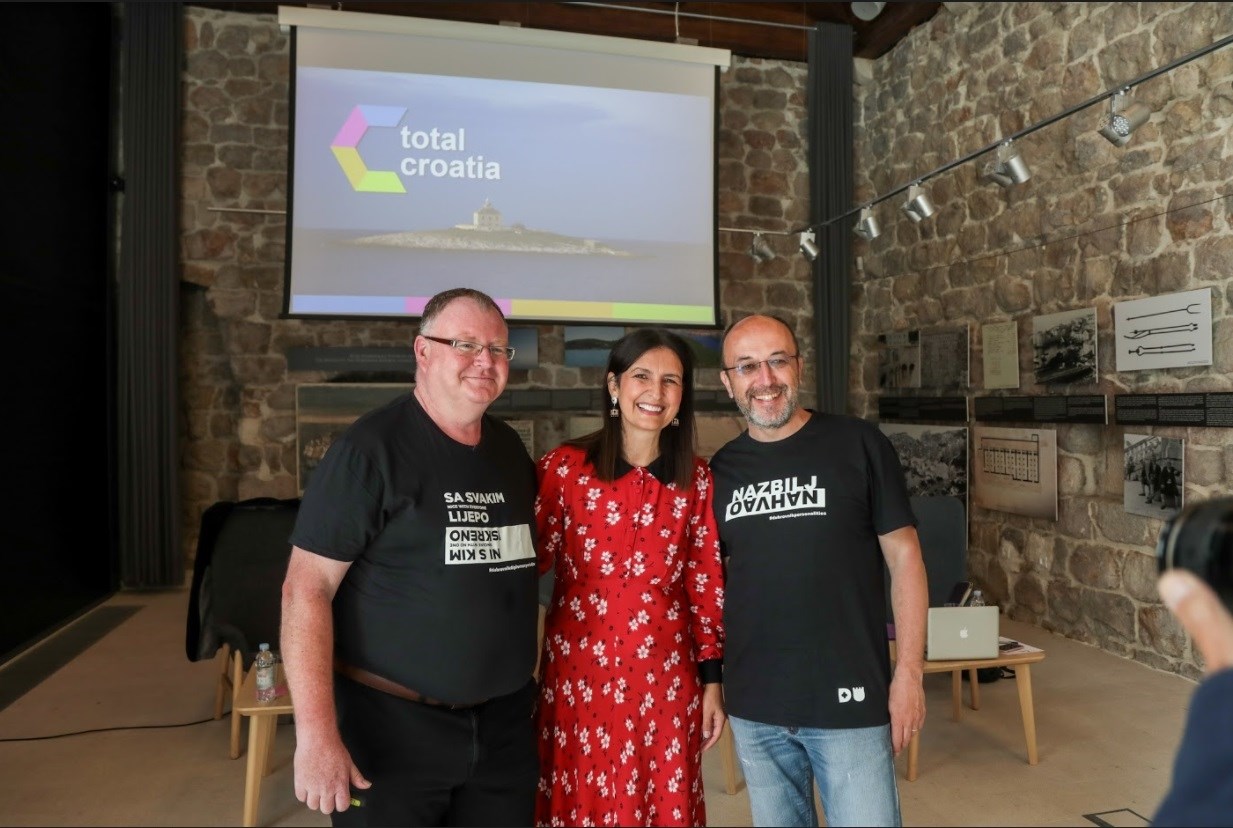
According to Bradbury, the portal is part of the Total Croatia News (TCN) family, within which it has been publishing articles, news, and all things about Croatia for about 18 years. He pointed out that many want to visit Croatia, for which they need accurate and quality information.
Thanks to Total Croatia, everyone planning a holiday in Croatia will be able to easily and in one place find all the necessary and useful information - in their own language - on this new Croatian tourist portal which, together with the award-winning Viber community Total Croatia Travel Info, represents a kind of virtual reception of Croatia, said Paul Bradbury.
According to Bradbury, journalists and writers such as Marc Rowlands, a former journalist of the English Guardian and Time Out Croatia, Morana Zibar, stars of the HTV quiz Potjera and gastro blogger, Nikola Pezić, anthropologist, translator, and founder of Eat Istria and many others write for the portal. This unique project has already been recognized by eminent companies such as Sunčani Hvar, Hilton Hotels in Zagreb, Falkensteiner Hotels and Residences, Punta Skala, Savills Real Estate from Dubrovnik, Adriatic Weddings Croatia, Algebra, and talks are currently underway with other interested tourism companies and small businesses in some destinations.
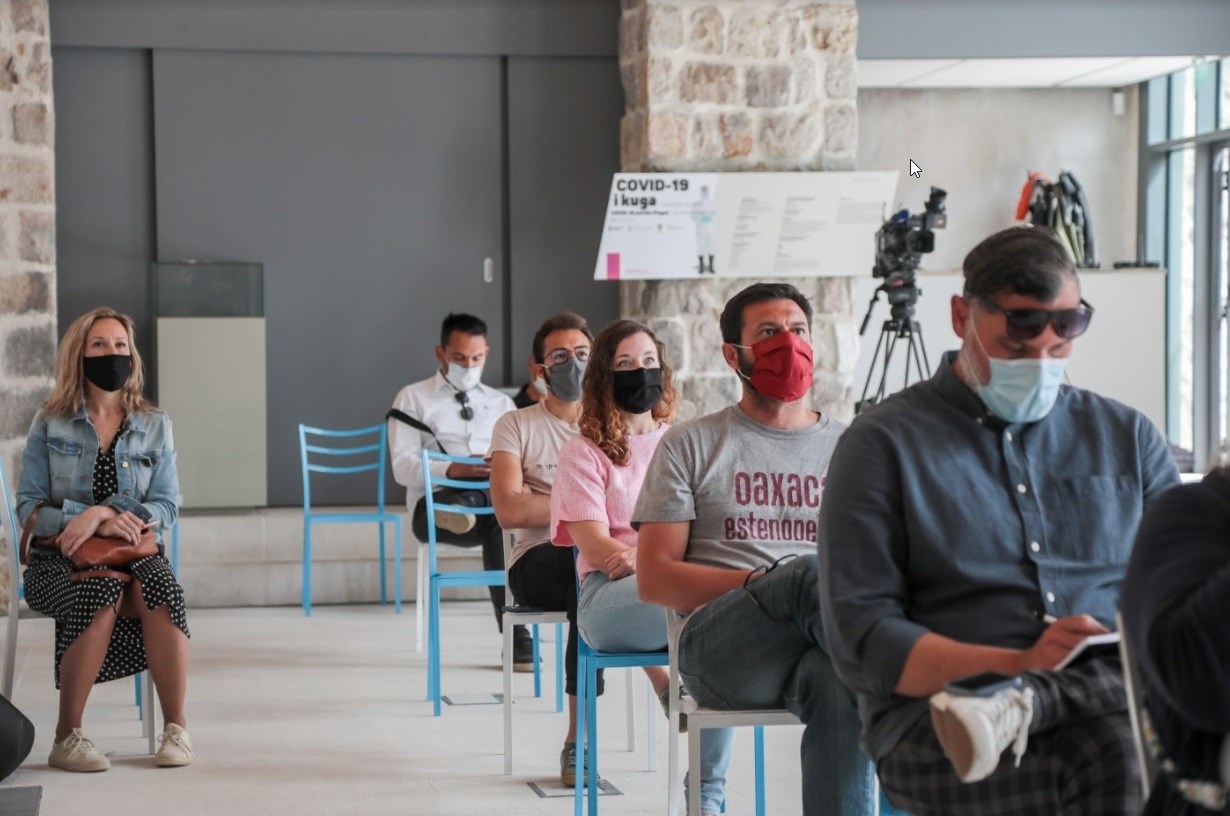
The goal of the new portal is that by properly planning keywords and using other Google tools, information published on Total Croatia becomes the first choice for visitors planning a vacation in Croatia, as it is the best-ranked website about Croatian tourism on Google in foreign languages.
At Monday's press conference, Bradbury pointed out that the portal offers the best and timely tourist information about Croatia and answers questions that visitors coming to Croatia want to know more about in their own language.
"We create exciting content about Croatia that we observe through the eyes of visitors, using local knowledge and advice," Bradbury said.
"Many have wanted to come to Croatia for a long time as digital nomads and as tourists, and during a pandemic, but they lack real information in their languages. Now it is offered on a new portal in which we were guided by innovation and communication. The most important thing is to give tourists what they want. Among other things, it is certainly destination information in their languages, which we prepare in collaboration with the local population," Bradbury said.
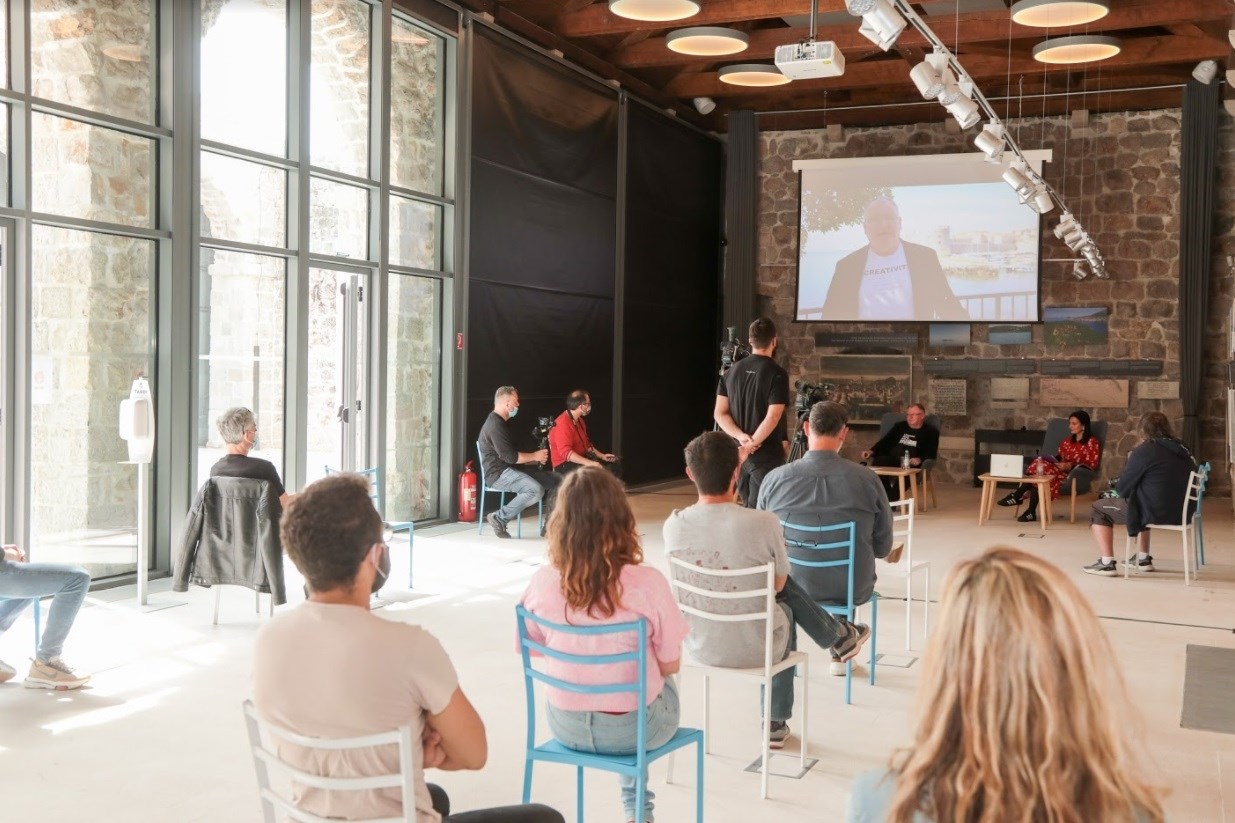
Bradbury mentioned Romanian tourists, adding that he "does not know if the Croatian National Tourist Board has ever had information for them in Romanian." He also referred to the weak public-private cooperation in tourism in Croatia and mentioned some exceptions of good practice, such as those in Dubrovnik and Zagreb, where he encountered cooperation with tourist boards and city administrations.
He added that they do not need anything from the Croatian Tourist Board and cooperate with many hoteliers and destinations, noting that a "new wave of tourism" is expected in Croatia.
Krešimir Macan, the communication expert of Manjgura and Mediacor and this year's HUOJ International Grand Prix Crisis Communication Award winner, stressed the importance of using new digital communication tools in the tourism industry, especially during the current coronavirus crisis.
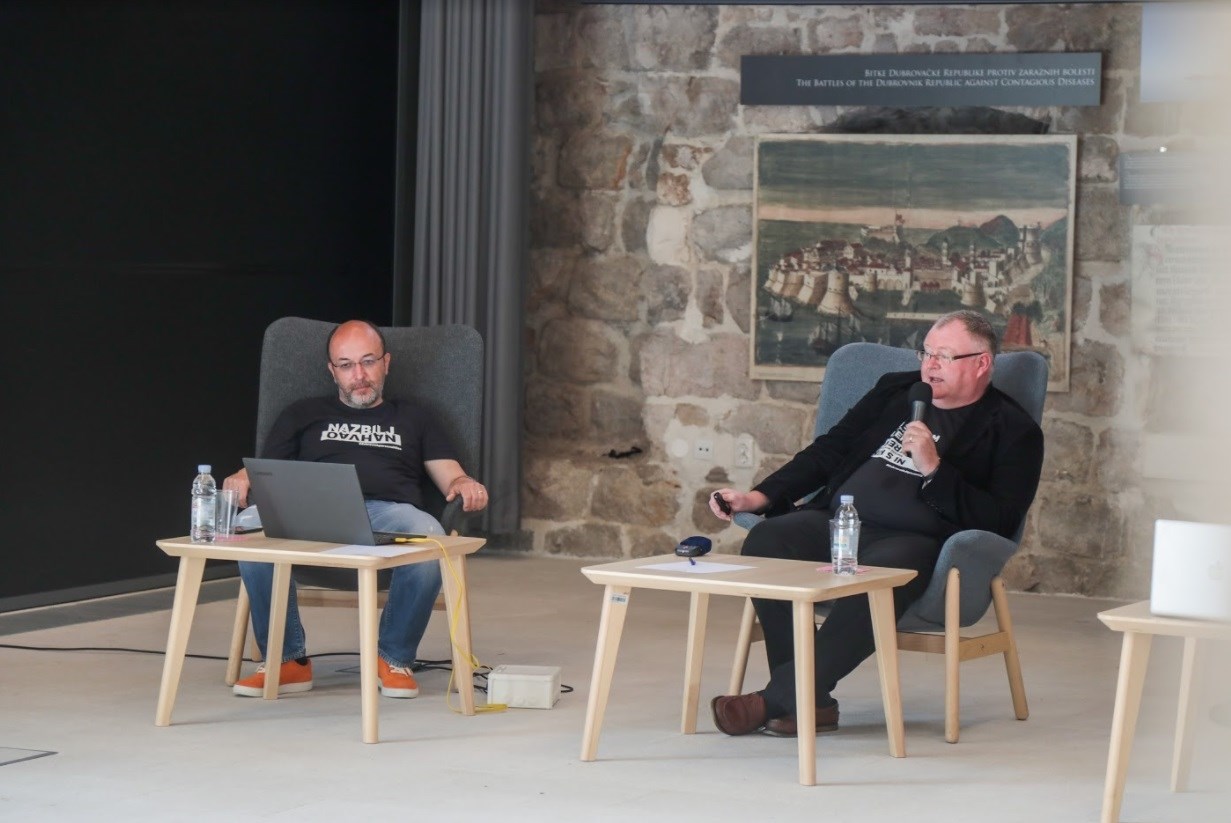
"Last year, the whole world faced the challenges of COVID-19 for the first time, but, regardless of the pandemic, the world did not stop, and all tourists who wanted to visit Croatia found a way to come. The Viber community Total Croatia Travel Info was an invaluable source of data for all guests who received all the necessary and accurate information and answers to questions in their own language and in real-time, regardless of whether they came from New York, Toronto, or Budapest. With exceptional experience working with the Viber community, Total Croatia is an additional step forward. We will meet everyone who is thinking of coming to Croatia using modern digital communication tools. Paul is creating the platform that 21st-century tourism needs!" Macan said.
Total Croatia offers a different view of Croatian beauties viewed from someone that loves Croatia, Paul Bradbury, who 18 years ago replaced cold Manchester with sunny Hvar. He has won numerous tourist awards such as the Marco Polo Fiet Award for International Promotion of Croatia for 2014, Marco Polo FIJET Award for the promotion of Advent in Zagreb in 2017, Medical Travel Media Awards for the best online article in Kuala Lumpur in 2019, and the International Medical Travel Journalist of the Year award from the Medical Travel Media Awards in Kuala Lumpur in 2020.
Bradbury also wrote two tourist guides, Hvar: An Insider’s Guide and Split: An Insider’s Guide. Paul often writes or is quoted in numerous English media and is an occasional columnist for the Index.hr portal. He founded the news portal www.total-croatia-news.com, which is often the starting point for many international media that have visited Croatia, such as The New York Times, Sunday Times, Travel & Leisure, and many others. Last year, the invaluable promotion of Croatia and Dubrovnik was brought by the American television channel ABC, whose reports on Croatia, as the only EU country to receive American tourists in the summer of 2020, were watched by millions of Americans. The first contact for the ABC team regarding their visit to Dubrovnik immediately after the first wave of the pandemic was the Viber community Total Croatia Travel Info.
Source: Index.hr
For more on travel in Croatia, follow TCN's dedicated page.


